




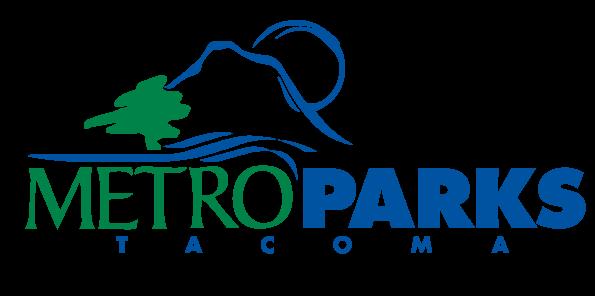
Established in 1907, by a vote of the people as a special purpose district responsible for parks and recreation programs. The District’s jurisdiction includes the City of Tacoma, the areas of Browns Point and Dash Point, and Northwest Trek Wildlife Park in Eatonville.
The District is governed by a five member Board of Park Commissioners who are elected by voters in Tacoma and parts of unincorporated Browns Point and Dash Point to serve six-year terms. The Executive Director is appointed by the Park Board as the agency’s chief executive officer who in turn appoints the organization’s Directors and Officers.
Submitted by
Shon Sylvia, Executive Director
Metropolitan Park District of Tacoma
4702 South 19th Street
Tacoma, Washington 98405-1175
Strong parks system enhances city’s livability and quality of life
For most of us, the pandemic opened our eyes in many ways. For nearly a year, parks became vital oasis, a crucial escape from the gravity of a global crisis.
The surge of park usage that began in 2020 continues today. Our community needs accessible, welcoming spaces where we can continue to find places of solitude, as well as gather once again to feel the joy of shared life experiences with friends, family and neighbors.
After the loss and hardships endured during the pandemic—and the lessons those experiences provided—it would have been both impractical and ill-fated to simply resume the status quo of our pre-pandemic operations. Transitioning back to “the way things were” was not an option after all we had witnessed and the needs that were daylighted during that time.
When Metro Parks was able to fully reopen in March of 2021, our Board and Executive set clear expectations for focusing our work. Those priorities, with minor modifications informed by public input, continue to serve as the guiding principles for our 2023-2024 work plans and budget allocations.
More than 3,000 community members took part in conversations, surveys and workshops that helped inform and guide our budget. That input strongly affirmed the Board and Executive’s Guiding Principles and Policy Direction, focusing on: Access & Inclusion; Conservation, Preservation and Sustainability; Health, Wellness & Safety; Engagement; Partnerships and Racial Equity. We will continue to engage in conversations with the community to understand how our initiatives are meeting identified needs.
November 14, 2022
Honorable Board of Park Commissioners,
Developing our 2023-24 budget has required even more attention than before to fulfill our community’s evolving needs. As we began to emerge and rebuild from the pandemic early in the past biennium, we made significant shifts in our operations to focus on these needs, in particular:
•Addressing inequities in levels of service across our parks
•Removing financial and transportation barriers so all children in Tacoma have better access to beforeand after-school care, including social/emotional learning and youth sports
• Providing affordable family memberships and single-ticket admissions for families with financial need
•Collaborating with community partners to provide more culturally relevant programming and events in our community centers and parks
We are proud of the many initiatives successfully implemented as we rebuilt programs and services and backfilled more than 70% of the workforce that had been displaced by the pandemic. These are just a few of the staff’s achievements during the past biennium:
Beyond the Bell – We collaborated with Tacoma Public Schools and a host of community partners to support families with after-school programming at every elementary and middle school in Tacoma.
Equitable Park Maintenance – We reallocated staffing, major maintenance and operating capital to create the Equity Emphasis Team which completed $310,687 of improvements during 2022 in 10 parks within the highest need areas identified by the City’s Equity Index mapping.
Affordable Access – We created free community center memberships for every youth 18 and under. Developed Wild Access for those with demonstrated financial need to access significantly reduced single ticket or annual family memberships to Point Defiance Zoo & Aquarium and Northwest Trek.
Capital Updates Designed for Climate Resiliency – We approached improvements at Owen Beach and Dickman Mill Park with designs accounting for projected sea level rise creating spaces to be enjoyed by generations to come.
Community Listening – Ensuring All Voices are Heard and Considered in Decision-making Processes – We revamped engagement and expanded outreach within historically underserved communities to better understand needs and cocreate more welcoming and culturally relevant experiences, and to identify and address gaps in service and barriers as we continually strive to provide better access and services for all members of our community.
This budget will enable us to continue this vital work of hearing, supporting and partnering with our community to build a sustainable quality of life for Tacoma.
Regards,

Executive Director
Metro Parks Tacoma
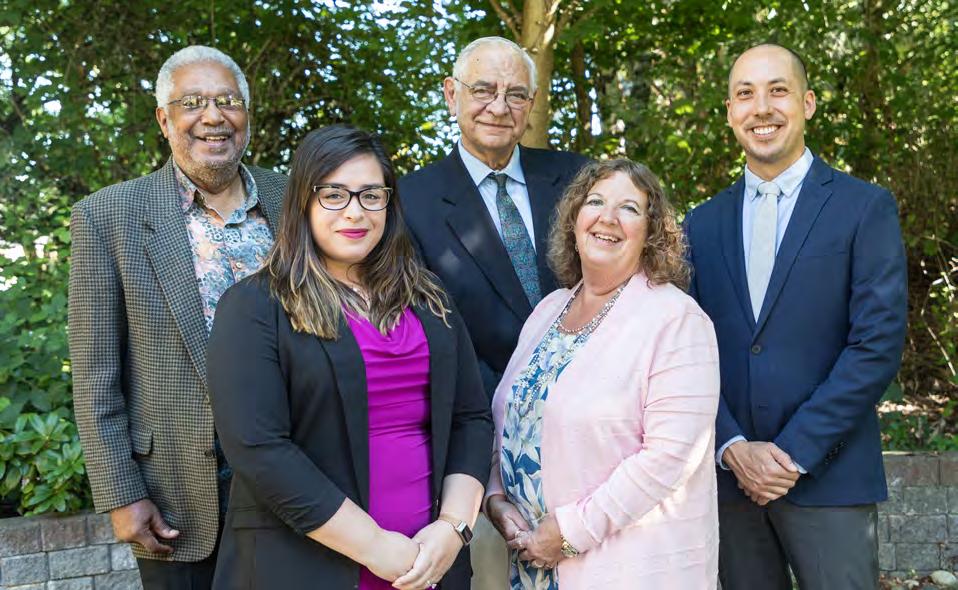
Andrea Smith President
Aaron Pointer Clerk
Rosie Ayala Commissioner
Michael Liang Commissioner
Tim Reid Commissioner
Shon Sylvia
Jennifer Bowman
Mark Knowlden
Hollie Rogge
Joe Brady
Alan Varsik
Rick Dietz
Sarah Oliver
Deborah Russell
Tania Wink
Marty Stump
Sandra Eliason
Norinda Rosario Yancey
Hunter George
Executive Director
December 31, 2023
December 31, 2025
December 31, 2028
December 31, 2023
December 31, 2025
Executive & Board Administrative Assistant
Interim Parks & Recreation Director
Deputy Director, Community Parks & Programs
Deputy Director, Regional Parks & Attractions
Director of Zoological & Environmental Education
Deputy Director, Northwest Trek Wildlife Park
Deputy Director, Point Defiance Zoo & Aquarium
Director of Business Administration & Planning
Chief Financial Officer
Chief Planning Officer
Chief Marketing & Communications Officer
Chief Equity Officer
Governmental Relations Officer
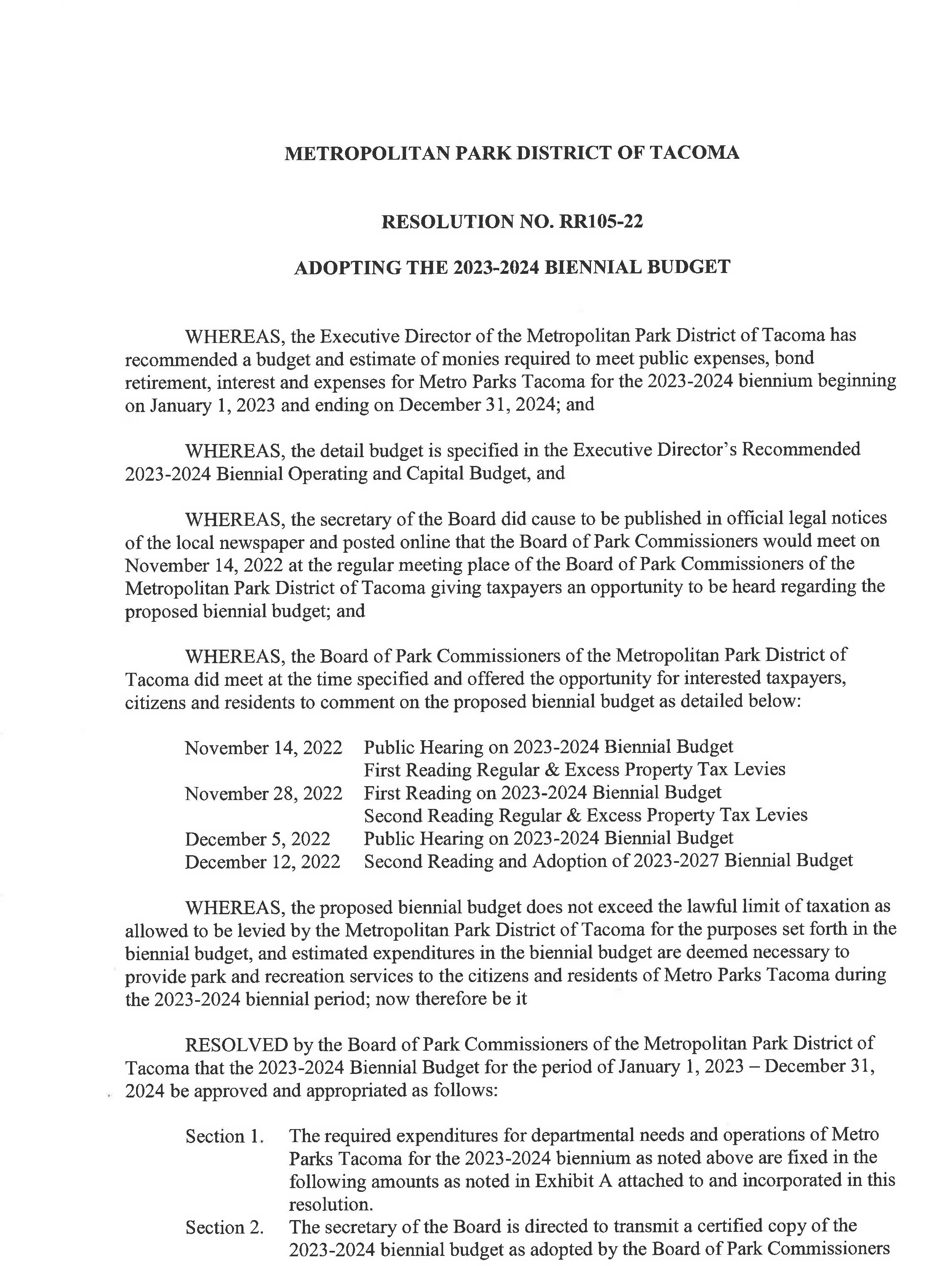
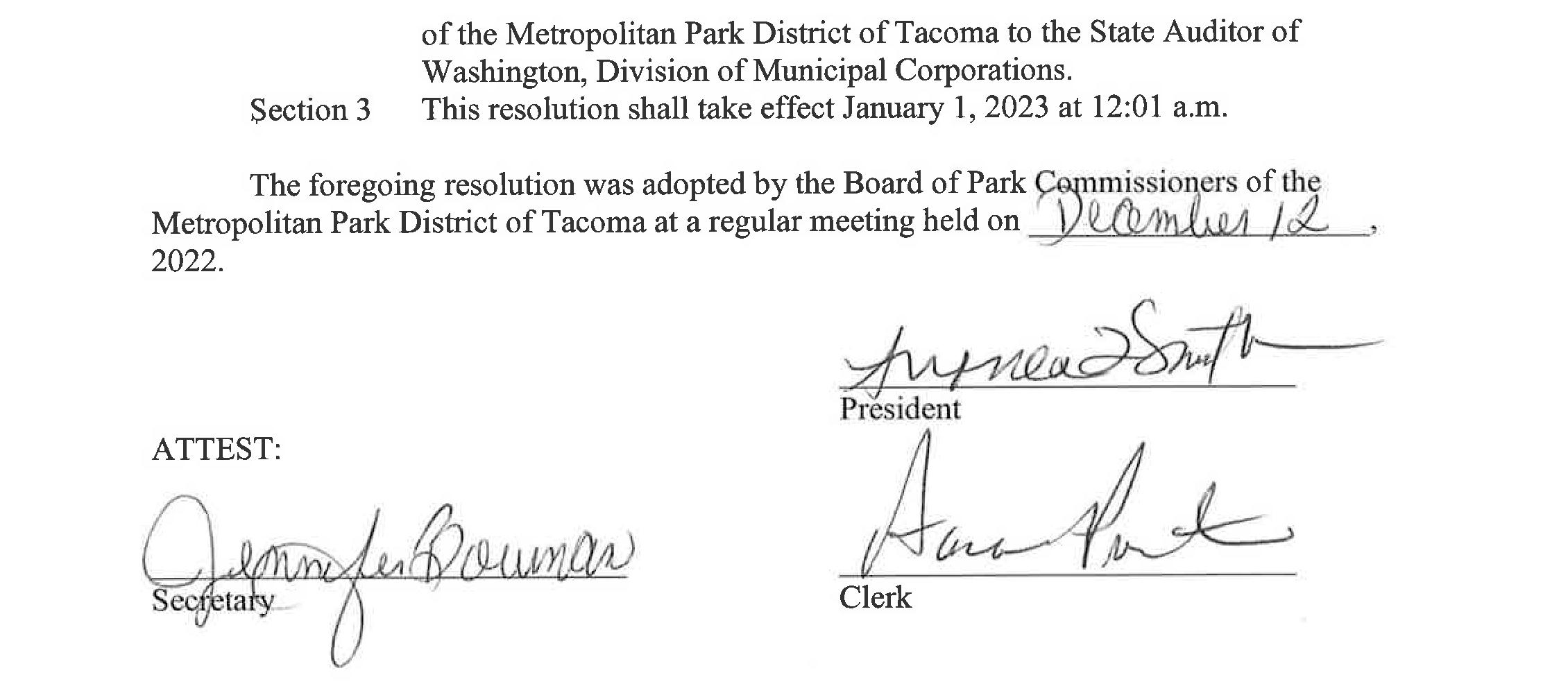
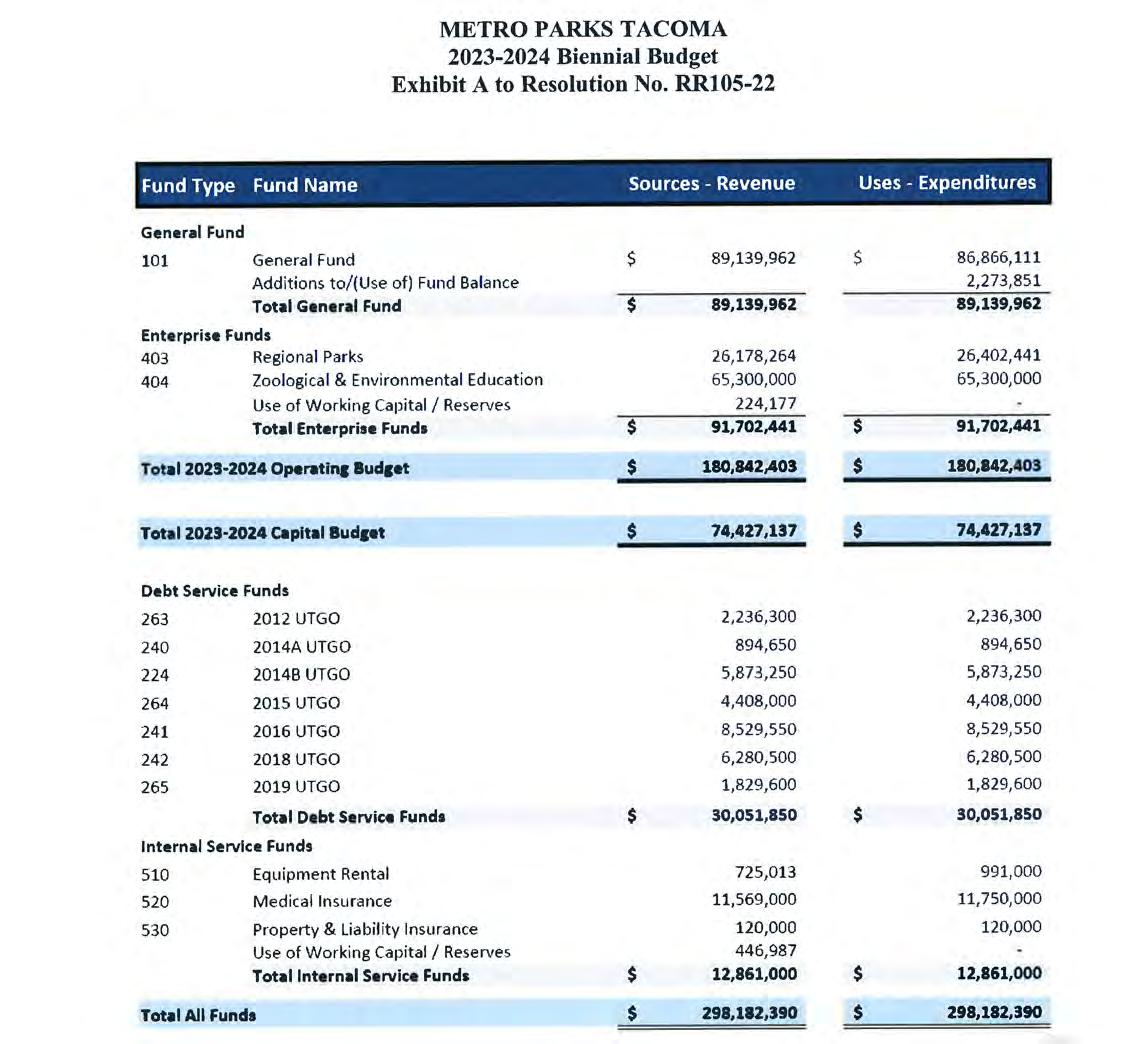

+
Strong parks system enhances city’s livability and quality of life
Shon Sylvia Executive Director | METRO PARKS TACOMA
Each of us has our own definition for “Quality of Life”.
It can be found in the tranquil sounds of silence interrupted only by wildlife along a path of an ancient forest, in squeals of joy resonating from a playground, or the wonder and awe on a child’s face when they touch a sea creature for the first time.
Metro Parks has been providing these life experiences for more than a century. As we plan for the next two years ahead, we have an opportunity to contribute even more to the livability of our community.
And now, after the Nov. 8 election, we have the clear support and confidence from voters in our community to do exactly that. Our community voted YES to restoring the property tax levy that is the backbone of our maintenance and operations—that allows us to care for the parks, playgrounds and programs that bring that quality of life to Tacoma. We are grateful for that vote of community confidence, and to all who use our parks, recreation and zoological systems. We could not operate one of America’s best park systems without the strong support of our community.
As stewards to nearly one-third of our community’s tree canopy that contributes to our air quality and filters impurities from our waters, Metro Parks will partner to protect our urban forests from the increasing threat of wildfires.
We will also expand our Park Ranger program providing another set of eyes on our parks, zoos, and recreation destinations. Since 2021, we have

drastically increased our investment in evening and overnight security patrols to help curb the escalation of vandalism and petty crimes making our public spaces feel less safe. We will complement after-hours patrols and prevention with Rangers providing a daytime presence much like those in the National Parks system who not only help deter crime, but also connect visitors with nature and park amenities.
The well-being of our children is among the highest guiding principles of our Board and Metro Parks’ leadership team. This requires a multi-prong approach.
Providing free community center membership for children 18 and under was an important first step. Our centers were created in large part as safe havens for children and providing free access has removed a significant barrier. Youth membership has surged from 1,925 annual memberships in 2019 to just under 9,000 within the first year in our new pricing model. We intend to continue to offer this access.
Next our collaboration with Tacoma Public Schools and a host of community partners helps us provide affordable, quality before and after-school care and youth development experiences through Beyond the Bell and Club Beyond throughout the school year. This will also continue, providing accessible and affordable care and development opportunites for all Tacoma students.

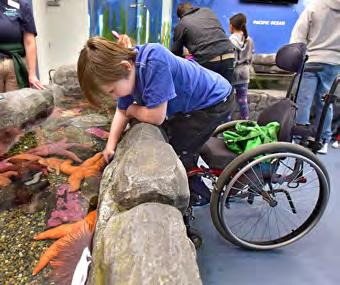
Source: Metro Parks Tacoma 2018 Strategic Master Plan
The following section introduces the Three Pillars of Sustainability and the associated strategic goals for Metro Parks Tacoma’s Strategic Master Plan given all the technical research conducted throughout the planning process.
VISION: “Metro Parks Tacoma will inspire our community and achieve equity in our parks, programs, service delivery, decision-making, and community engagement.”
P1. Ensure MPT’s workforce reflects the community it serves.
a.Mandate that every employee receives cultural competency & equity training as part of their annual development program.
b.Leverage all available tools and techniques to improve ethnic and gender diversity at MPT.
P2. Identify and eliminate barriers that perpetuate racial, economic and gender inequality and provide opportunity and advancement for all District residents.
a.Adopt a 10-minute walk level of service standard for MPT to ensure every resident of Tacoma has access to a park within a 10-minute walk of their home.
b.Develop a MPT Equity Action Plan that outlines specific actions and efforts. These efforts shall focus both internally as an organization, and externally in terms of how MPT serves the community.
c.Use the Park and Facilities Level of Service Plan (2018) to identify District areas with the greatest “unmet need” for facilities and park amenities.
d.As part of the Park and Facilities Level of Service Plan (2018), investigate the boundaries of MPT’s current planning quadrants to better align with neighborhood demographics.
e.As part of the Parks and Facilities Level of Service Plan (2018), investigate the need to nurture/develop partnerships with groups to provide cultural services and/or a community center in each planning area throughout the District.
f.Assist with interjurisdictional efforts to identify and pursue public investment strategies with partner agencies to identify parcels of land that have potential to fill service gap areas.
P3. Continue to offer comprehensive programs and facilities in a data-driven, equitable and needs-based manner to Tacoma’s citizens in all three adopted MPT Mission Led Areas. In accomplishing this work, priority shall be given to underserved populations, with a focus on children.
a.Implement actions identified in the 2016 update to the MPT Mission Led Comprehensive Program Plan (MLCPP).
b.Leverage the MPT investment in its GIS expertise to develop the 2018 MPT Parks and Facilities Level of Service Plan (LOS), which will analyze MPT’s physical asset distribution throughout the District. Ensure that this plan also includes a six-year prioritized action plan to inform MPT and partner agency CIPs, budgets and work plans.
c.Coordinate with the Tacoma Public School District (TPS) and align approach and outcomes in regard to the Whole Child Initiative and other strategic planning efforts as they relate to social and emotional learning for children.
d.Revise the MPT Strategic Planning Framework to create a MPT Comprehensive Master Plan that combines this master plan, MLCPP, LOS, and their associated action plans into one document.
e.Regularly consult the Statewide Comprehensive Outdoor Recreation Plan (SCORP) and related web-based tools to assess changing local and statewide needs and trends, shifting demographics and opportunities to pursue innovative projects with regional appeal.
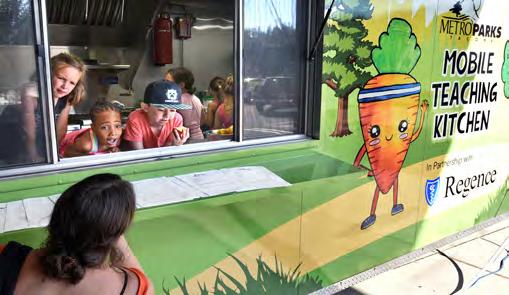
P4. Expand MPT’s presence in our community to address physical, cognitive and behavioral health needs and priorities; reduce health disparities and improve the Tacoma community’s health.
a.In order to participate in improving public health, develop and implement programs and services with partners that are consistent with the Pierce County Community Health Improvement Plan and the Regional Health Improvement Plan (RHIP).
b.Incorporate “Health in All Policies” approaches to address social determinants of health, the key drivers of health outcomes and inequities. Ensure decision makers are informed about the health, equity and sustainability consequences of various policy options.
c.Pursue advocacy opportunities for parks and recreation with the Pierce County Accountable Communities of Health, Optum Pierce Behavioral Health Organization and others to improve health outcomes, increase resiliency and provide greater social connections for improved wellness and happiness.
P5. Assume a key leadership role in the City of Tacoma’s multi-modal transportation efforts to provide citywide connections in order to increase access to MPT parks and facilities.
a.Adopt and move toward the Tacoma Mobility Plan goal to, “Promote healthy lifestyles by offering improved opportunities for active living for people of all abilities through the development of robust pedestrian, bicycle, and transit networks, including bikeways, sidewalks, and linear parks.”
b.Merge MPT programming and capital development efforts with regard to “safe routes to parks” with the City of Tacoma and Tacoma School District’s Safe Routes to Schools Program.
P6. Continue to ensure favorable public perception of MPT’s brand, business practices, processes and policies.
a.Create a brand campaign that reinforces the MPT brand. Outputs of this effort could include “Community Impact Reports” that include the new Districtwide Performance Measures identified in this plan.
b.All adopted Districtwide Performance Measures must be consistently tracked and measured in order to determine trends, trajectories and program effectiveness.
c.Organize and align all patron and user-intercept surveys in order to synchronize collection methodologies and centralize data availability.
d.Enhance audience appreciation (brand, paradigm) of applied animal welfare and conservation activities of all District zoological and sustainability management operations.
P7. Continue to invest in technology in the ever-changing digital connectivity space as a baseline effort to improve customer service.
a.Strategically install IT infrastructure to both improve park/facility experiences (e.g., wireless services, charging stations etc.) and allow MPT to measure usage of park/facility amenities.
b.Upgrade the external website and focus on the advancement of appropriate mobile technologies for both staff and customers.
c.Partner with NRPA to launch the Park Path mobile application.
d.Work internally and externally to build a database warehouse at MPT that has capacity to interface with an MPT Customer Loyalty Program that serves the entire District.
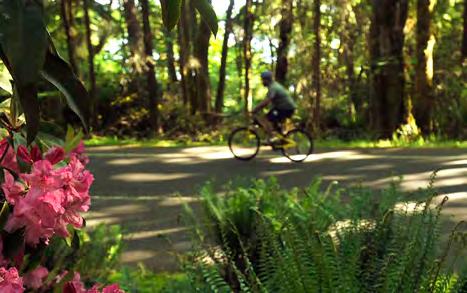
VISION: “Metro Parks Tacoma will advance sustainability, livability and overall community resiliency by building a community for both current and future needs.”
C1. MPT will become a recognized regional leader in sustainable practices including green infrastructure improvements, conservation, environmental education and biodiversity.
a.Continue to advance MPT’s “urban canopy” goal for the District while articulating and communicating the financial and environmental impact that healthy and accessible urban greenspaces have on the Tacoma community. Increase collaboration with City of Tacoma (COT) and other partners to enhance urban canopy throughout Tacoma.
b.Continue to advance the restoration of MPT-owned and managed natural areas. Improve public access to all natural areas where feasible; seek to enhance both efficiency of governance and public access to natural areas through new partnerships for management and maintenance of public lands.
c.Partner with the City’s Environmental Services Department and the Tacoma Public Utilities to identify opportunities for biosolid, wastewater and alternative energy programs.
d.Identify and allocate the appropriate labor resources to own, manage, track and communicate all goals and objectives identified in the MPT Environmental Sustainability Plan.
e.Continue to expand conservation focused programming and operational practices throughout all MPT operations and partner organizations where appropriate, such as TPS.
f.Re-frame and enhance the approach to storytelling by expanding the MPT narrative to reach behind-the-scenes and highlight the ‘why’ behind our conservation actions to further connect, inspire and ultimately facilitate action in our community.
g.Develop and implement a comprehensive Conservation Engagement Plan to better connect the community with animals through relevant, memorable and innovative experiences, inspire the community to love, celebrate and interact with nature and take action to sustain wild animals and wild places.
h.Increase membership with regional/national organizations that support sustainability (e.g., U.S. Green Building Council).
i.Evaluate/select appropriate park land/facility sustainability standards to use as benchmarks (e.g., sustainable sites/Salmon Safe, etc.).
C2. Build urban resilience. Increase the capacity of individuals, communities, institutions, businesses, and systems within Tacoma to survive, adapt, and grow no matter what kinds of chronic stresses and acute shocks they experience.
a.Implement, where feasible, recommendations from the City of Tacoma Climate Change Resiliency Study, including recommendations regarding the built environment, natural systems and social systems.
b.Develop and implement park, trail and facility master plans that address community resiliency goals and priorities; support and integrate the City’s Master Mobility Plan into MPT capital and program planning.
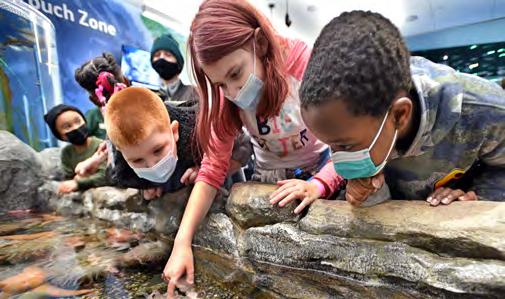
VISION: “Metro Parks Tacoma will prioritize fiscal responsibility and business development in an effort to prepare the agency for the future Tacoma.”
F1. Prioritize maximizing organizational efficiency by eliminating waste, duplication and redundancy.
a. Using the LEAN management framework, engage in a broad effort to conduct business process mapping for all administrative functions within the District.
b. Maintain CAPRA accreditation for the District.
c. Investigate District-wide realignment of staff in the areas of information technology, marketing, and other focus areas to reduce redundancy, leverage employee skill sets and increase overall efficiency.
d. Explore opportunities to share subject matter experts (SMEs) between MPT departments and with partner organizations and vice-versa, including embedding staff with one another’s agency on a short-term or long-term basis.
F2. Enhance existing revenue streams wherever possible and add new revenue wherever feasible.
a. Create symbiotic partnership policies for public/public, public/non-profit and public/private partnerships that include at a minimum: terms, expectations, partnership equity, measurable outcomes and accountability procedures.
b. Pursue opportunities to better align all of MPT’s supporting foundations—among other entities—and cultivate increased philanthropic support by continuing to target specific projects and opportunities for fundraising campaigns.
c. Identify key relationships and work closer with physical and behavioral health organizations, including Pierce County Accountable Communities of Health (ACH) and Optum Pierce Behavioral Health Organization (BHO) to identify funding opportunities.
d. Pursue alternative revenue streams such as a Food & Beverage Tax or a Park Facility Impact Fee. Enhance/leverage use of existing funding sources such as New Market Tax Credits and Community Development Block Grants.
F3. Prioritize and efficiently execute critical internal system upgrades/additions to MPT’s technology environment.
a. Point-of sale, facility booking, and program registration.
b. Asset management and life cycle management.
c. Content management and business process workflow.
F4. Ensure CIP processes are holistic and align with City, School District, and other partner agency philosophies.
a. The CIP should be an aligned effort (where applicable) with the City of Tacoma and Tacoma School District.
b. The CIP implications from other planning documents (e.g., MLCPP) should be contained in one place.
F5. Strengthen the quality of existing parks and facilities while preparing for the future parks and recreation system.
a. Adopt park classifications, definitions, and criteria (along with effective design principles/standards) to communicate how the existing and future system will be managed. Additionally, consider adding a “school park” classification.
b. Strengthen the quality, responsiveness, and accessibility of recreation programs through outreach that increases language access, registers more people from low-income neighborhoods, and increases inclusive and adaptive programming.

5
2,907
75
7
• 2018 Strategic Master Plan Update
• 2016 Mission Led Comprehensive Plan
• CAPRA Accreditation Standards
• AZA Accreditation Standards
• AZA Species Survival Plan
• AAM Accreditation Standards
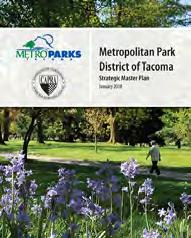
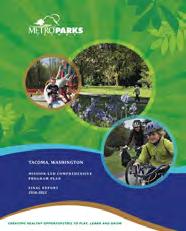
• Active Lifestyles & Community Wellness
• Business & Responsive Agency
• Arts & Heritage
• Nature & Environment
Metro Parks is one of only 3 park and recreation agencies in Washington and 197 nationwide to earn CAPRA accreditation.
CAPRA is the only national accreditation of park and recreation agencies and is a valuable measure of an agency’s overall quality of operation, management, and service to the community. Agencies undergo a rigorous accreditation process every five years.
Metro Parks Tacoma has been CAPRA accredited since 2014.
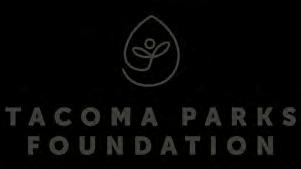
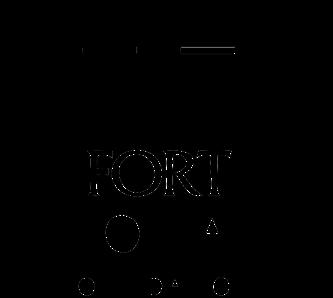

AZA-accredited zoos and aquariums are constantly evolving and standards are continuously being raised. Our zoos and aquariums must keep up with these changes to remain AZA-accredited and we go through a rigorous accreditation process every five years to affirm this commitment.
Our zoos and aquariums have been continuously accredited by AZA for well-over a quarter-century—Point Defiance Zoo & Aquarium since 1983 and Northwest Trek Wildlife Park since 1985.
Fort Nisqually Living History Museum is one of ten history museums in Washington State that is fully accredited by the national American Alliance of Museums (AAM). Since 1906, AAM has provided advocacy, developed standards and promoted best industry practices. The Alliance accredits museum institutions for ten-year periods.
AAM accreditation in 2019 brought recognition to Fort Nisqually for its commitment to excellence, accountability, high professional standards and continued institutional improvement.
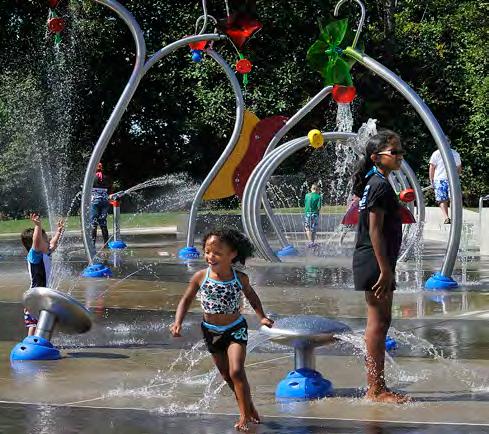
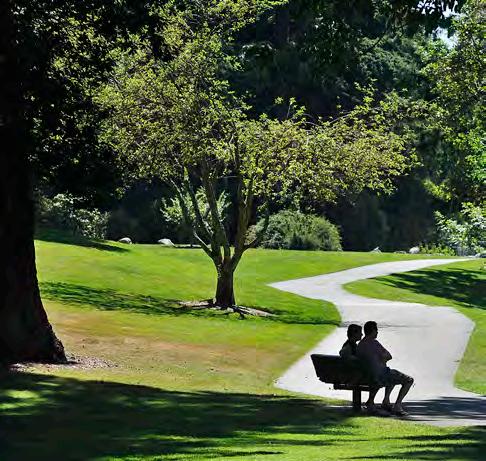
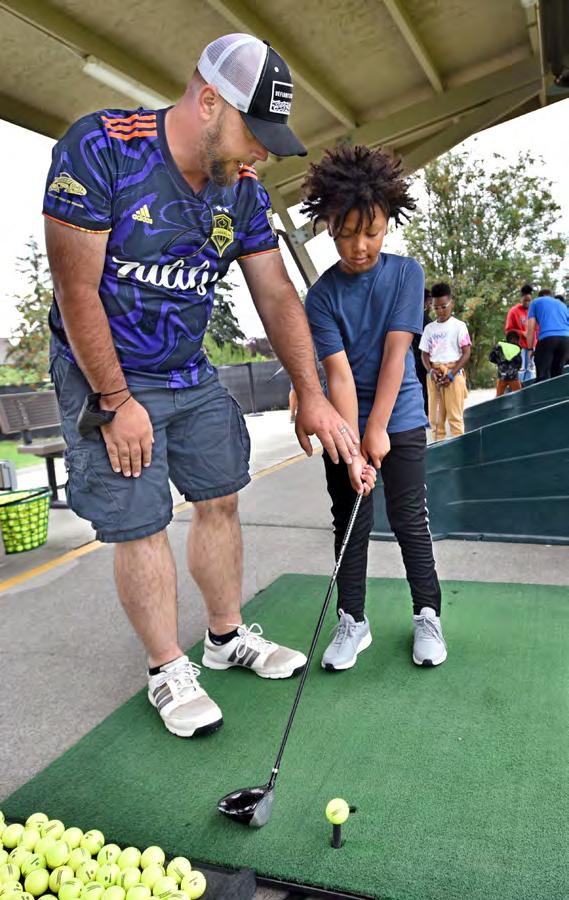

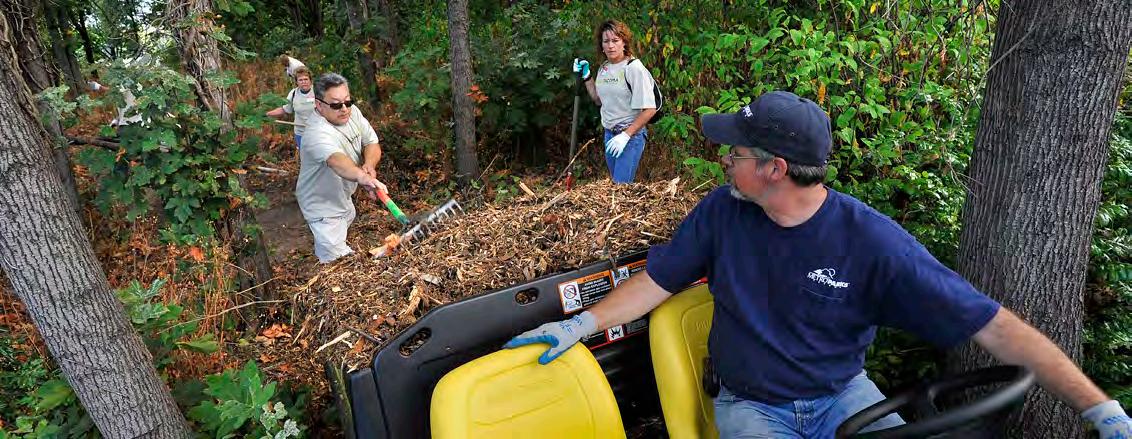
Access & Inclusion
Improve access and proximity to parks and programs for all who live in Tacoma, with attention to engaging diverse income levels and race/ethnicities through our parks, facilities, services, infrastructure and programs; attention shall be given to traditionally underserved populations with a focus on children.
Conservation, Preservation & Sustainability
Protect the District’s environment and built assets. Advance the District’s Three Pillars of Sustainability, climate change resilience and livability, while balancing both current and future community needs.
Engagement
Collaborate with community to achieve equity and inclusion in our parks, programs, facilities and develop faith, trust and relevance by aligning resources with community needs. Continuously engage community to effectively respond to feedback and build trust in our decision-making.
Health, Wellness & Safety
Improve health outcomes and reduce health inequities for all who live in Tacoma; create safe spaces and programs that build a healthy and productive community.
Partnerships
Concentrate on economic sustainability by working collaboratively with other public agencies to avoid waste, duplication and inefficiencies; in partnership with community, work together to responsibly leverage and stretch public funds.
Racial Equity
Intentionally work towards overcoming systemic racism and implicit bias within our institution, other public agencies, and the community.
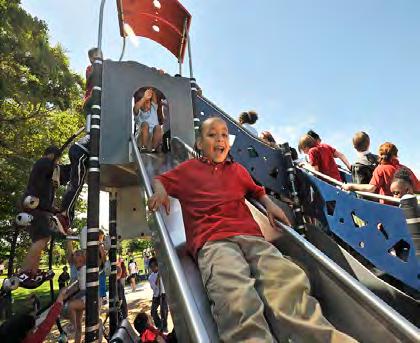

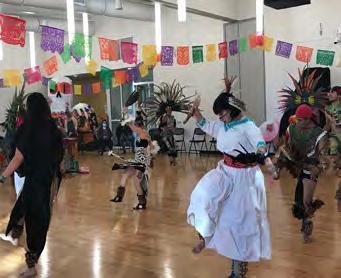

As the community worked to adapt and stabilize their lives amid a pandemic, Metro Parks Tacoma refocused resources to ensure that all in our community had continued access to safe and socially responsible parks and recreational experiences. The pandemic created new and urgent needs within our community, which provided us opportunities for collaborations with other public and non-profit partners.
Economically, the District continued to rebound in 2022 as the pandemic slowed. An expected decrease in revenue was a major concern, despite the gradual return to normalcy. Step-by-step, the district incrementally realigned budget lines to reflect closer to actual expenditures and revenues, working on smarter service delivery models, and positioning the organization to benefit from healthier economic times.
The District spent the past two years seeking community input on the types of programs and services needed and operational improvements that would better serve residents. This engagement has come through customer service surveys, meeting with ethnic and cultural partners, program focus groups, and advisory councils; hosting “Co-create to Recreate” events, and more. Additionally, the nonprofit Trust for Public Lands (TPL), which works with communities across the nation to increase public access to parks, programs, and open space, says its own community survey shows Tacoma residents want the district to address key needs, including basic maintenance and operations to support out-of-school recreation programming and access to clean and secure facilities, parks, and open spaces.
Results from these efforts provide strong evidence that the community values the District’s parks, recreation and zoological system and understands the challenges of maintaining and increasing levels of service where necessary to meet the area’s growing needs.
The District’s $180.8 million operating budget, plus an additional $74.4 million for capital projects, reflects a continued commitment to respond to community needs and to ensure re-
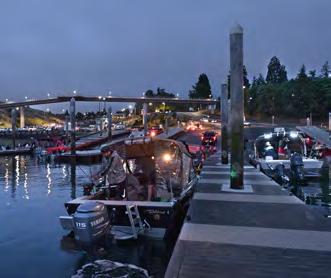
sources are prudently and strategically allocated to programs at the expected level of services. Like our basis for accounting, our basis for budgeting for all funds is modified accrual.
The District’s General Fund and Enterprise Funds 6-year financial forecast identifies revenue and expenditure expectations that extend beyond the 2023-2024 biennial budget. The District aligns forecast assumptions with policies outlined in the Board’s Long Range Strategic Financial Plan, as well as Board and Executive Director priorities emphasized during budget formulation.
The General Fund is used to account for all financial transactions and resources except those required to be accounted for in another fund. Revenues are derived primarily from property taxes. A portion of the fund’s revenues are transferred to the Internal Service Funds to help finance the purchases and debt for fleet vehicles and equipment, medical self-insurance, and property/liability claims insurance.
Metro Parks manages four enterprise funds; however, only the Zoological and Environmental Education Fund qualifies as a major fund quantitatively.
• The Zoological and Environmental Education Fund is an enterprise fund which accounts for Point Defiance Zoo & Aquarium and Northwest Trek Wildlife Park. These facilities provide a wide array of Pacific Rim and native wildlife experiences through exhibits, on- and off-site programs and events. Point Defiance Zoo & Aquarium is a year-round, 27-acre zoological facility where visitors view wildlife species native to the Pacific Rim. Northwest Trek is a 715-acre wildlife and nature preserve where visitors are provided the rare opportunity to view animals native to the Pacific Northwest in a captive yet natural setting.
Metro Parks has elected to present the other three funds separately and alongside, rather than combining them.



Running regional parks under an enterprise model by grouping earned revenue and sales tax in one work unit can promote and maintain long-term financial sustainability for a governmental agency. Among the advantages to this model are that if the fund turns a profit, its revenue can carry over to fund operations in the next fiscal year, and fees might decrease, or the additional resources can be reinvested into the enterprise. For example, the funds could be used for preventative maintenance or can be devoted to additional marketing, technology or other business support needs in order to continue to maximize the enterprise’s bottom line and not be reliant on general fund subsidies. Under the Regional Parks Enterprise Fund financing concept:
• Regional Parks and facility operations will be managed more as a business unit.
• Like ZEED, dedicated Pierce County sales tax will be directed to this regional operation—collected from park users residing outside the city limits versus only Tacoma residents.
• Earned revenue and the COT contract for service for regional parks will be allocated to this operation, freeing up Property taxes to focus more on community assets within the General Fund.
The Boathouse Marina Fund accounts for the Point Defiance Boathouse. These operations provide dry boat storage, boat and motor rentals, gas sales, tackle and gift shop sales, fishing license sales, guest moorage, parking and free fishing piers.
The Meadow Park Golf Course Fund accounts for the Meadow Park Golf Course. These operations include golf rounds, rentals and retail sales.
Additionally, Metro Parks reports three Internal Service funds to account for fleet purchasing services provided to other departments on a cost reimbursement basis, medical self-insurance and property/liability claims.
Metro Parks Tacoma places a strong emphasis on managing and maintaining a strong financial condition. Having healthy reserves allows the district to weather a downturn in the economy, without sacrificing a decline in the level of service delivery or service quality to our residents.
Metro Parks has adopted a Comprehensive Financial Management Policy which effectively manages the cost of government and financial risks through sound business practices. The three main principles of this policy include: 1) revenues will be budgeted in a conservative manner, while expenditures are budgeted to include all normally foreseeable costs; 2) revenues should be forecasted to exclude onetime available resources and to consider current market rate factors and competition, while expenditure forecasts should include inflationary factors; and 3) a fund balance of 5-10% of biennial expenditures should be maintained.
The budget development process is a tool for the District to thoughtfully plan and evaluate the programs and services which will be revisited on a quarterly basis. The process allows the District to plan and evaluate the programs and services that will be offered in the coming biennium thoughtfully and effectively. Staff will monitor and assess the budget to actuals on a quarterly basis and prepare any board amendments if adjustments are necessary. This will help us redevelop our community-driven, equity-based budget and deploy resources to areas impacted by decades of underinvestment, while identifying programs and services needed to better serve marginalized communities.
The district’s 2023-2024 Biennium Operating budget presents a balanced budget. The budget is anticipating $180.8 million in revenues and $178.6 million in expenditures, which includes contingencies and reserves. The budget will support 458 full-time equivalent employees and $74.4 million in capital spending.

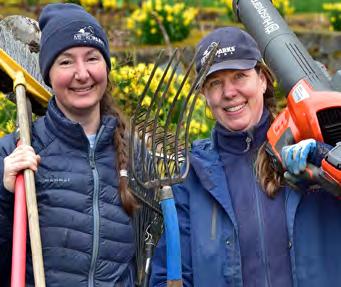


Certain assumptions were used to forecast major revenue and expense drivers. These assumptions are based on information provided by governmental entities (County Assessor, Tacoma Public Utilities, Washington State Economic & Revenue Forecast, Consumer Price Index, and the U.S. Department of Commerce, Bureau of Economic Analysis, etc.), trend analysis and pertinent data from general research. These assumptions provided a basis with which to forecast revenue and expense increases/decreases for the ensuing biennium.
Metro Parks Tacoma’s 2023-2024 Operating Budget totals $180,842,403 and provides funding for the priorities and initiatives outlined within the departmental workplans. The primary sources of funds are:
• Property tax collections - 37% of the district’s total revenue sources
• Earned Revenue - 35%
• Sales Tax - 18%
• Other (Grants, Donations, and Intergovernmental Funding) - 10%
Regular and Excess Property tax revenues are dependent on Pierce County Assessor’s Office property valuation a ssumptions, bond debt payment schedule and projections based on general real estate market conditions, including actual and projected housing statistics and sales inventory.
Regular Property Tax levies are maximum rates, authorized by state law for taxing districts to be levied without voter approval that is set by the Pierce County Assessor’s Office on an annual basis (RCW 84.52.043). Tax rate consists of the annual levy rate applied to the assessed value of taxable property by the various taxing districts. Metro Parks Tacoma has a regular tax levy rate limit that totals $0.75 per $1,000 of assessed value.

Originally, the tax levy authority was $0.50 per $1,000 until the levy lid lift occurred in April of 2010, which gave the district another $0.25 capacity. Also, in November 2007, the State Legislature approved new legislation that imposed a 1% annual property tax growth limitation. As a result, regardless of assessed valuation growth, revenues cannot grow more than the 1% limit. This limit prohibits a taxing district from levying regular property taxes in any year more than 101% of the highest amount of regular property taxes that could have been lawfully levied in that taxing district, plus taking into consideration any additional amount calculated for new construction, improvements to property and the increase in the value of state assessed property, which is calculated and adjusted by the Assessor’s Office at the end of the year.
In July 2022, the Board of Park commissioners approved Resolution RR53-22 which placed a proposition on the November 8th ballot for consideration by the voters of MPT. MPT had asked the voters to consider what is known as a “levy lid lift,” which would restore the property tax rate to the legal limit of $0.75 per $1,000 of assessed value.
On November 8, 2022, Proposition 1 passed with just over 63% of the voters approving of the levy lid lift, demonstrating the clear support and confidence from voters to contribute even more to the livability of our community.
Excess Property taxes authorizes the tax levy in the current period for collection in the ensuing year for debt service payments on the voter-approved unlimited tax general obligation bonds. Excess levies are approved or disapproved by voters at the polls to fund maintenance and operation and capital improvements. But unlike the regular tax levy, excess tax levy has no limitation, other than the maximum bond amount approved by the voters.
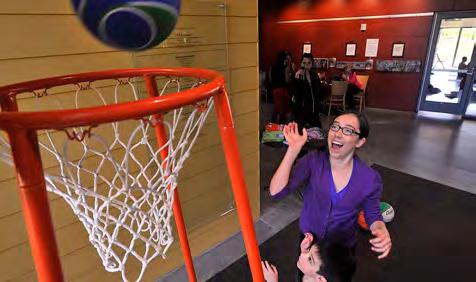

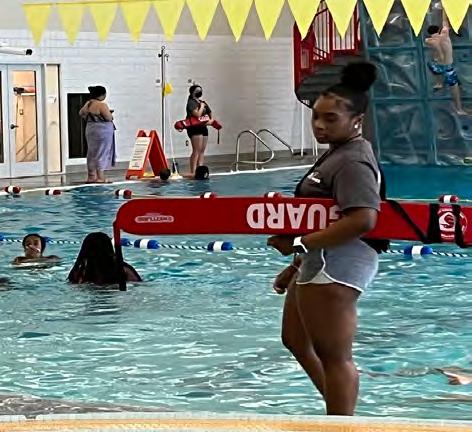
Reflecting approximately 18% of the budget, sales tax revenue is forecasted using historical and recent trends as well as up-to-date local and regional economic data, particularly as it relates to consumers’ confidence and retail sales. Sales tax actual revenue collected are recognized within the Parks & Recreation and Zoological & Education Departments according to their respective statutory allocation (RCW 82.14.400). According to the RCW, 0.1% of the total sales tax within a taxing authority is allocated toward city and municipal parks departments.
• Of the 0.1%, 50% is dedicated to Point Defiance Zoo & Aquarium (PDZA) and Northwest Trek (NWT), which is then distributed to PDZA at 67.0% and NWT at 33.0%.
• The other 50% of the 0.1% is allocated to each City or Municipal Parks Department based on their community’s percentage of the overall county population. The City of Tacoma’s current population is approximately 25% of Pierce County’s total population resulting in an estimated 25% of the 50% of the 0.1% is dedicated to the Parks & Recreation – Regional Parks Enterprise Fund.
Reflects dollars generated from a variety of sources including admission fees, activity and program registrations, rental fees, and charges, use charges, permits and event fees.
Our residents and visitors continue to enjoy the district’s parks and trails in record numbers. Visitation continues to increase, and Metro Parks anticipates annual visitation increases to continue for the foreseeable future.
Earned revenue accounts for over 35% of the total revenues for the biennium. The projections were developed using trends specific to existing programs and services, attendance, anticipated programming and fee changes, new programming and services, and other factors that may impact earned revenue. New revenue opportunities from new programs and services where there is little or no historical data, are projected conservatively using objective and available data.
Below are the assumptions/narrative that outline the 2023-2024 Biennium Operating Budget:
Earned Revenue – In the general fund, earned revenue is collected in Community Parks & Recreation and Business Administration & Planning departments. General fund earned revenue is projected at $12.5 million for the biennium. In the enterprise fund, earned revenue is collected in Regional Parks and Zoological & Environmental Education departments. Enterprise fund earned revenue is projected at $50.9 million for the biennium. Overall, earned revenue is projected to increase 24.9% when compared to the 2021-2022 Amended Operating Budget.
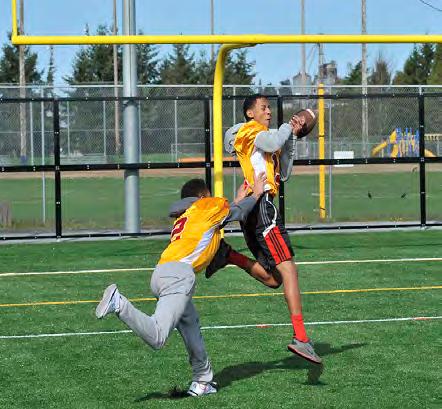
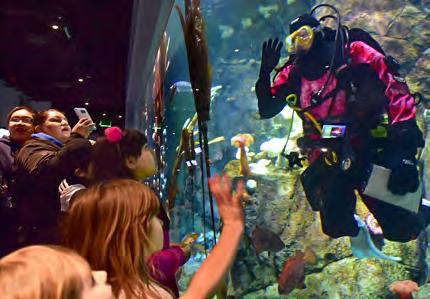
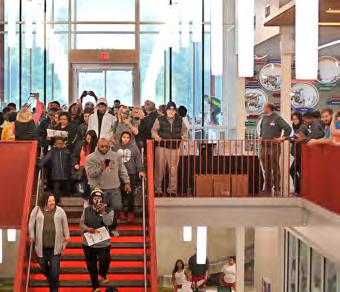

Property Tax - According to Pierce County Assessor/Treasurer, residential property values in Pierce County increased over 19% in 2022. Combined with Proposition 1 restoring the levy to $0.75/$1,000, the District’s property tax revenues will increase 17.4% when compared to prior year. In total, property tax revenues for the biennium are projected to increase $33.5 million when compared to the 2021-2022 Amended Operating Budget.
Sales Tax - Revenues are projected to increase $4.2 million (or 14.7%) when compared to 2021-2022 amended biennium budget.
Other Revenue - Grants, Donations, and Intergovernmental Funding is projected to increase $1.3 million or 8% when compared to the 2021-2022 Amended Operating Budget.
Increased visitation, combined with the high quality of service the district provides, will continue to impact the costs of operating and maintaining both parks and trails. Increased visitation requires more maintenance costs, increased cleaning costs and ultimately, additional staff to meet park user’s needs. Economic conditions have changed drastically over the last 18 months as record inflation combined with rapid wage growth and record low unemployment continues to drive operating costs substantially higher than usual.
Metro Parks staff and the services they provide play a key component in attracting and retaining park users. For that reason, the hiring and retaining of highly qualified and creative staff is an annual priority.
Salaries and benefits account for 63% of the Operating Budget. Increases in wages and benefits are influenced by internal factors (such as contracts, insurance premiums etc.) and external factors (labor market, wages offered by others, etc.) making it an annual challenge to stay competitive in the labor market. The 2023 budget was exceptionally challenging as rapid growth in seasonal wage rates and inflation driven wage growth from other employers required the district to take extraordinary steps to remain competitive. The 2023-2024 Budget contains increases in wage adjustments for all employees in lower pay grades and cost-of-living adjustments for all represented and non-represented staff.
With strong demand combined with ongoing supply issues, inflation has increased and remains high. According to the Washington State Economic & Revenue Forecast, Consumer price inflation of 9.1% outpaced national average of 8.2% in 2022. This results in increases to operational and maintenance costs which are highly uncertain given recent price inflation for fuel, construction and services.
The Washington Cities Insurance Authority (WCIA) reported an extraordinary increase in both WCIA’s reinsurance and member claim costs; therefore, its Executive Committee approved to adopt an overall rate increase of 40% for 2023. For Metro Parks, this results in a 16% increase in 2023 and 8% increase in 2024.

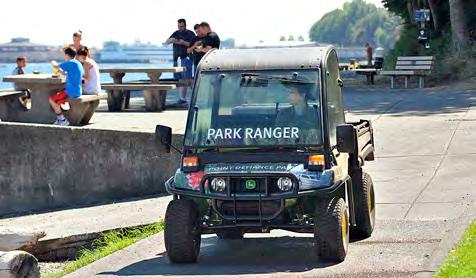

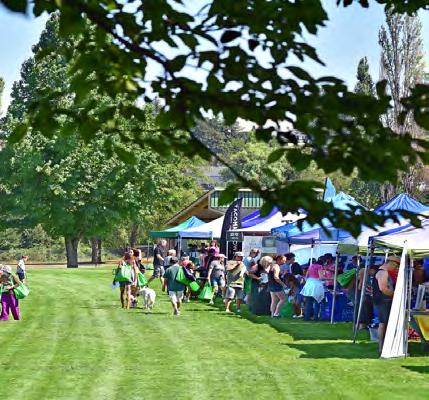
In addition to the career positions shown below, the District employs, on average, over six hundred (600) part-time workers throughout the year. While some of the part-time positions are used year-round, the majority are seasonal in nature to supplement the full-time work force during the busy seasons.
The District is adding critical positions to ensure effective implementation of the strategic and capital improvement plans, to execute value-add programming and service delivery, and to provide effective maintenance of new and existing assets. The following table illustrates the total full-time career positions for the last biennium and the upcoming biennium:
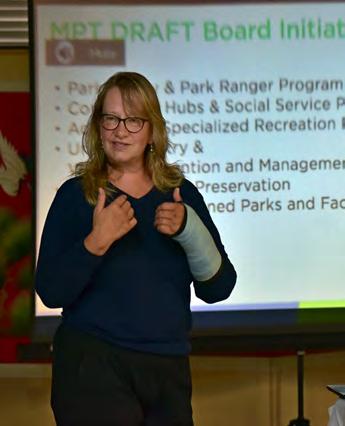

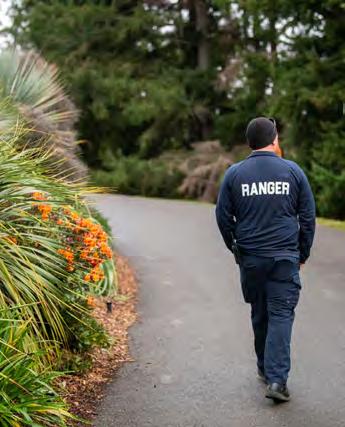

In-Person Intercept Surveys
(Swan Creek Park Reopening, Verlo Park/McKinley Hill COT/Community Event, Owen Beach Reopening, Wright Park Mosaic, People’s Park Pride Movie, STAR & People’s Center Meet & Greets with Senior programming participants)
Committee of the Whole - Budget Status
Committee of the Whole - 2023/2024 Park Board Budget Priorities
Co-Create to Recreate Center at Norpoint Eastside Community Center People’s Center Star Center
Online Survey
Latinx Community - Facilitated Budget Workshop
Asia/Pacific Islander Community- Facilitated Budget Workshop
Virtual Community Budget Workshop
Committee of the Whole - 2023/2024 District Capital Plan
Metro Parks Advisory Councils - Budget Overview/Outreach & Engagement Summary
Committee of the Whole - Budget Drivers, Assumptions and Community Feedback
Zoo Trek Authority/Board Joint Meeting - Approval of Sales Tax
Board Meeting – 2023-2024 District Budget Public Hearing #1
First Reading – Property Tax
Committee of the Whole - Department Budget Presentation
Committee of the Whole - Department Budget Presentation
Study Session - Department Budget Presentation
First Reading of Budget Resolution
Public Hearing #2 – 2023-2024 District Budget
Second Reading and Adoption - 2023-2024 District Budget
April 2022 - October 2022
August 15, 2022
August 29, 2022
September 13, 2022
September 21, 2022
September 28, 2022
September 29, 2022
September 15 - October 2, 2022
September 22, 2022
September 23, 2022
September 29, 2022
October 17, 2022
October 18, 2022
November 7, 2022
November 9, 2022
November 14, 2022
November 14, 2022
November 16, 2022
November 21, 2022
November 28 2022
November 28, 2022
December 5, 2022
December 12, 2022
The District’s cross-departmental Outreach & Engagement business unit has launched a variety of new engagement tools and approaches to proactively gather community feedback.These insights inform District decision-making and better align resources to best fulfill community interests and needs.
Led by community center and programming staff, Metro Parks has established ongoing quarterly gatherings at all four centers where the public is invited to share input that helps co-create programs, activities and events within the center and neighboring parks. Hundreds of community members have participated in the Co-Create to Recreate events since the program launched in spring of 2022.
Community input has influenced a wide range of MPT practices, including program offerings and events, greater access and expanded programs to better serve youth and teens, and reduced fees for families qualifying for free and reduced price lunch to significantly increase access to MPT programs and facilities.
Through intentional engagement with community-based organizations, Metro Parks has not only expanded the amount of programming for the community, but has also helped provide authentic and culturally relevant experiences that improve access and welcome historically underserved communities to our parks, centers and zoos. Through facilitation of a budget workshop presented in the preferred language of Spanish, participants were able to fully express their thoughts, ideas, interests and needs without a language barrier.
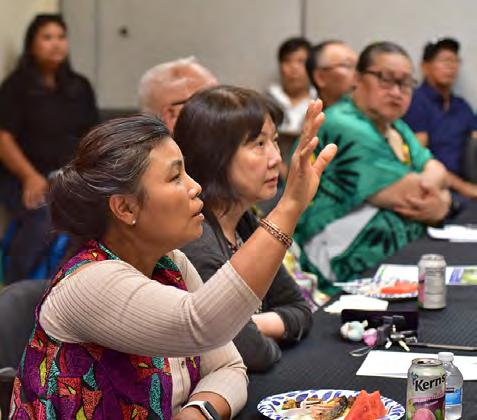
Key Themes we are hearing:
Metro Parks posed the following question to more than 2,800 past, current, and future customers: If we need to make hard decisions to shift existing dollars from one area to focus on a different area, what would they support? More than 1,400 open-ended responses were received, echoing survey responses:
• Security and safety are the most important items for respondents of Tacoma.
• Maintaining our parks is important.
• Finding solutions for individuals experiencing homelessness is a priority.
• There is a continued need to provide programming and activities for all, but specifically for youth –with intentional opportunities for children with disabilities and seniors.
Respondents expressed strong support for the Board and Executive Director’s Priorities:
• Conservation (90%)
• Health & Wellness (87%)
• Partnerships (88%)
• Access & Inclusion (85%)
• Racial Equity (76%)
Planning and positioning us for the future:
• Well-maintained & safe parks and facilities (98% important/extremely important)
• Urban forestry, wildfire prevention & management (89% important/extremely important)
• Improving Waterfront Access (71% important/extremely important)
• Strengthening Community Safety (66% important/extremely important)
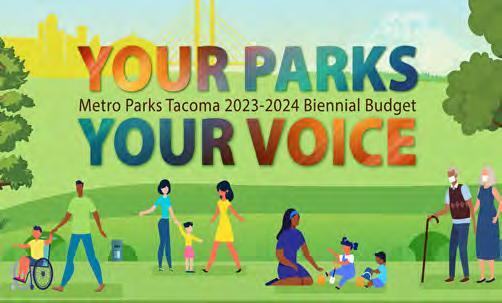
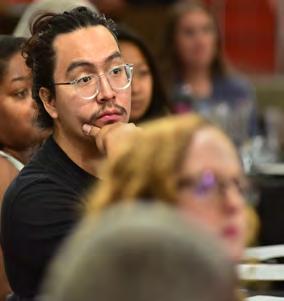

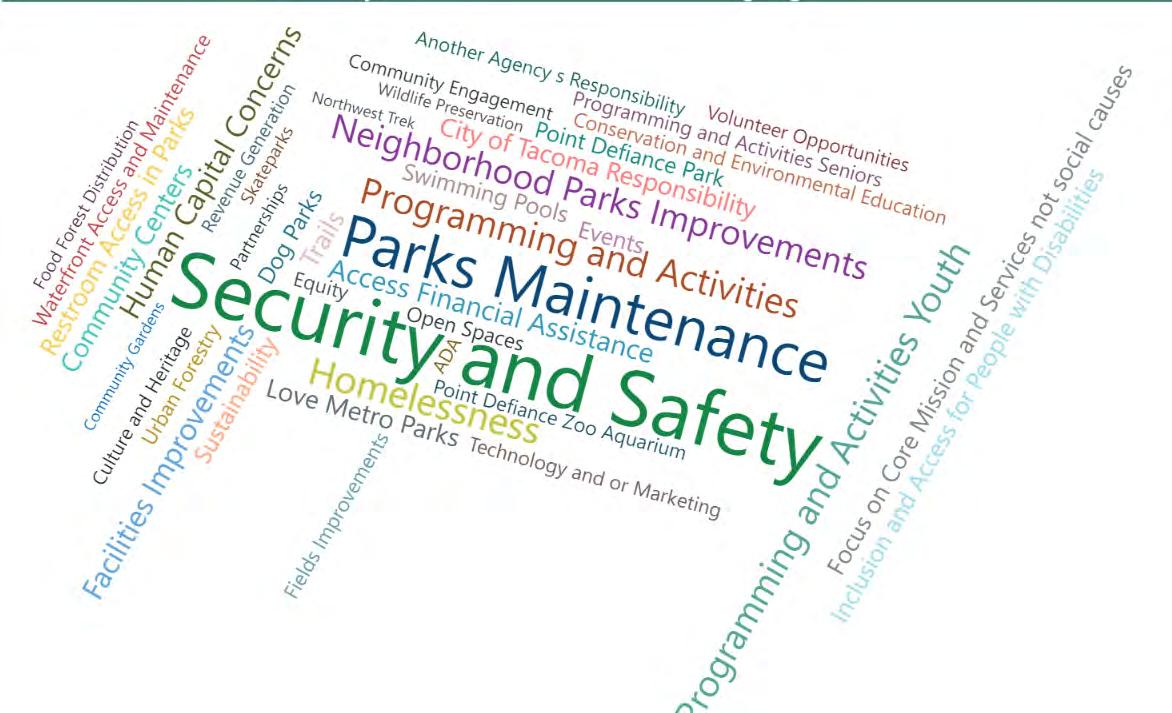
When asked to help prioritize current interests and needs:
• A significant portion (23%-34%) of respondents were neutral in their feelings about reducing mowing and hours of operation in order to provide more programming, free activities and events.
• However, more than half of all respondents agreed or strongly agreed with doing so, in order to better serve children with disabilities and to provide programs and services within areas of the community that have limited access to parks.
• Sentiments were more evenly balanced regarding prioritizing free drop-in activities in parks (38% agreeing vs. 28% disagreeing) and festivals and events (37% agreeing vs. 38% disagreeing) over mowing and hours of operation.
• Respondents commented that they didn’t want to choose one or the other – they wanted both – making it difficult to agree or disagree, which may explain why neutral was chosen more on these questions than others throughout the survey
Explore survey responses and learn by selecting our Outreach & Engagement Storymap on our website: https://www.metroparkstacoma.org/Budget
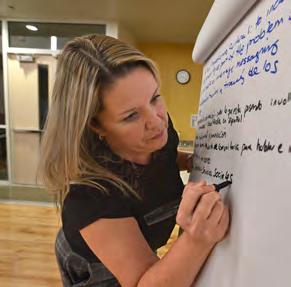
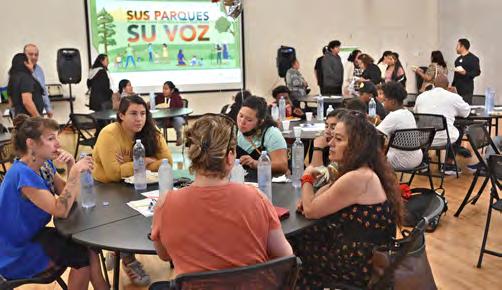

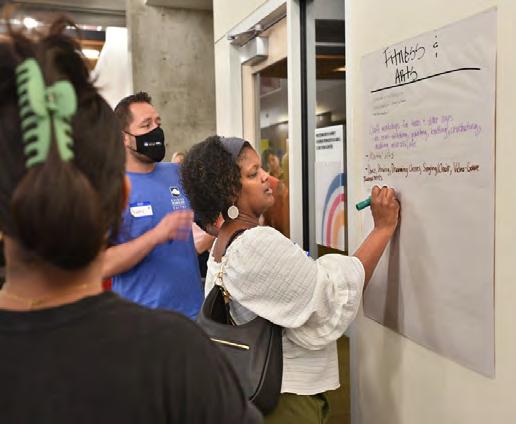





























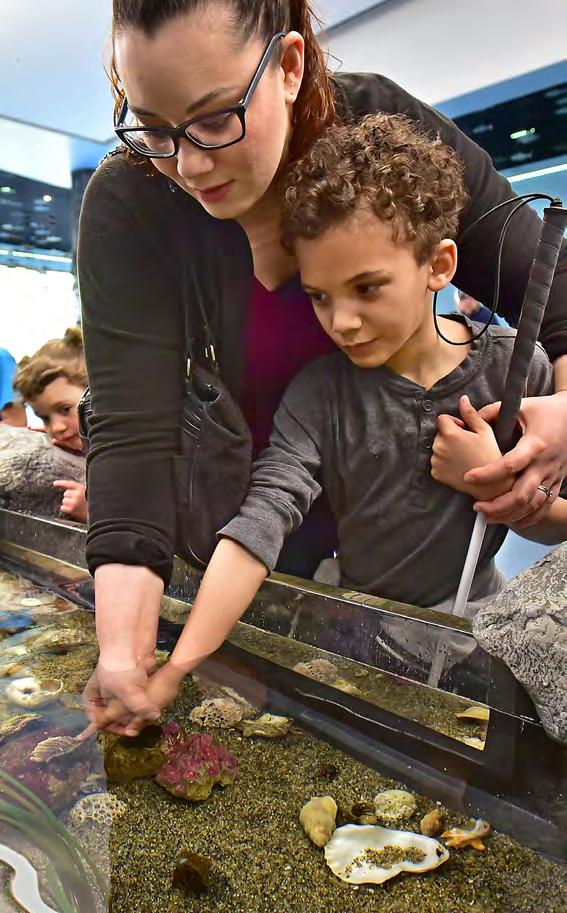
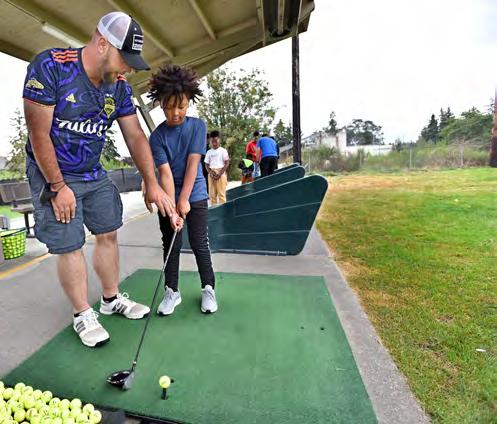
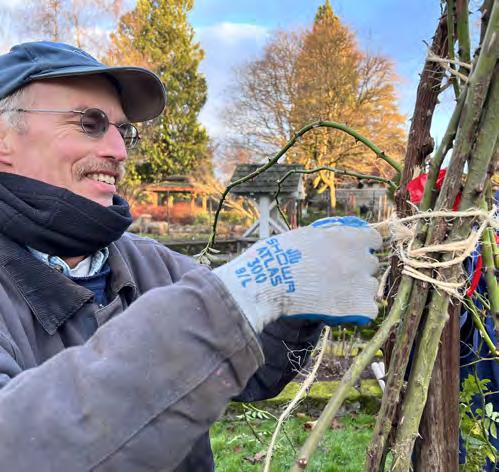


Below are charts depicting MPT’s 6-year revenue forecasts for Districtwide Enterprise and General Fund revenue projections based on a set of assumptions as noted in pages 13-15.
Fund Revenue Forecast
This table represents the operating revenue and expenditures of all operating funds (including Internal and Debt Service) and consolidates anticipated beginning fund balances and working capital as additional resources. This table does not include the Capital Improvement Plan (CIP). At Metro Parks Tacoma, the biennial budget is a twenty-four (24) month period.
67,377,364 32,682,667 1,611,013 139,986 7,181,370 467,616 6,736,425 63,356,261 1,289,701 180,842,402
112,855,019 11,852,271 42,629,862 1,043,428 1,258,449 –8,125 8,921,397 178,568,551
$3,989,991 $2,273,851 $6,263,842
On November 8, 2022, the voters approved Proposition 1 which restored the district’s regular property tax levy to fund ongoing parks, recreation, operations and programs. Restoring the levy to $0.75/$1,000 is expected to increase the district’s general fund operating revenues by $10,000,000 when compared to 2022. In total, operating revenues for the biennium are projected to be 18% higher than 2021-2022.
ZEED (Zoo & NW Trek)
48,532,597 16,767,403 26,402,441 15,960,072 7,257,000 3,185,369 91,702,441
After revenue is forecasted, operating expenditure budgets are developed with a goal of providing a balanced budget through thoughtfully planning and evaluating programs and services we intend to provide within the next two years. The expenditure budgets are developed using cost assumptions associated with staffing costs (wages, taxes and benefits) obligations; general inflationary increases for office supplies, contract for services, parts and materials, etc.; non-discretionary adjustments such as medical and dental expenses, Labor & Industries rates, retirement contribution rates, utilities rate increases; and basic needs in order to maintain critical core services. It is also an opportunity to develop alternatives and recommendations to reprioritize our existing programs and services.
ZEED (Zoo & NW Trek)
Pt. Defiance Zoo & Aquarium
Northwest Trek
Regional Parks
Parks & Attractions
Meadow Park Golf Course
Pt. Defiance Marina Complex
Total Expense
23,817,176 9,104,900 13,456,528 8,167,577 3,594,145 1,694,806 46,378,604
47,810,839 17,489,161 26,402,441 15,960,072 7,060,958 3,381,411 91,702,441
Access, Inclusion & Engagement:
Community Connections—Work with the District Outreach Team, community center supervisors and program staff to develop and deploy more inclusive outreach strategies and to identify any gaps in service for budget/CIP development, park operational and master plan updates, and remove barriers for people to participate in programs and services.
Examples of programs or projects:
•Expand partnerships to serve youth and adults with special needs
•Legislative change for childcare licensing within public agencies to remove financial barriers for parents in need of childcare services
•Adjust fees and charges and revise our fee philosophy to be consistent with the community we serve
•Locate any service gaps and develop a Level of Service Study & City Park Comprehensive Plan
Partnerships:
Public-Public Partnership—Concentrate on economic sustainability by working collaboratively with other public agencies to avoid waste, duplication and inefficiencies; in partnership with community, work together to responsibly leverage and stretch public funds.
Examples of programs or projects:
•Feasibility for a Sports Village and sport complexes in partnership with Tacoma Public Schools and City of Tacoma
•City of Tacoma and Metro Parks Tacoma - one park system/aligning our services within the master agreement
•JMAC Collaborative Community Projects & Legislative Agenda
•Joint Maintenance Campus & Skills Center with Tacoma Public Schools and City of Tacoma
Conservation, Preservation & Sustainability
Nature and the Environment—Revitalize the District’s commitment to stewardship. Update the Sustainability Plan to reflect operational gains, select new targets and incorporate data-driven decision making to address the effects of sea level rise and climate change on the park system.
Examples of programs or projects:
•Electric trams in Point Defiance Park/transition to electric vehicles for Metro Parks Tacoma fleet
•Animal collections planning; advance animal welfare and conservation policies
•Coordinate environmental education and conservation engagement activities with Zoological & Environmental Education Department (ZEED) with a focus on Tacoma Public Schools via Beyond the Bell
•Develop a Urban Forestry & Wildfire Prevention and Management Program with Tacoma Fire Department
Health, Safety & Wellness:
Active Living & Community Wellness—Our strategic direction reinforces keeping people healthy with a focus on our programs and services for youth. We provide inclusive youth programs and services equitably to a diverse community at schools, parks and facilities.
Examples of programs or projects:
•Enhance safety; develop a comprehensive ranger and ambassador program
•Develop agreements with community partners to provide social service, health/wellness and culturally relevant programs in Community Centers and parks/open spaces
•Work in partnership with community to address individuals experiencing homelessness
•Create safe spaces and programs that build a healthy and productive community; focus on underserved populations and support youth and families
Racial Equity:
Implement the Diversity, Equity and Inclusion Plan—Work toward being an anti-racist organization, focus on creating a corporate culture at MPT that is founded on the principles of equity and inclusion. Ensure that the development of Metro Parks Tacoma’s equity efforts are integrated and leveraged with external partners and constituents. Examples of programs or projects:
•In partnership with the board, review all MPT policies with a health and equity lens
•Create an Equity Advisory Council and Community of Practice with other public agencies
•Increase Outreach to MWBE Contractors and align targets with Tacoma Public Schools and other government agencies
Property Tax (100%)
Sales Tax (0)
Intergovernmental Funding (0)
Grants (0)
City of Tacoma (0)
Donations - Private (0)
Donations - Foundation (0)
Earned Revenue & Other (0)
Transfer In/Overhead Allocation (0)
Property Tax
Sales Tax
Intergovernmental Funding
Grants
City of Tacoma
Donations - Private
Donations - Foundation
Earned Revenue & Other
Transfer In/Overhead Allocation TOTAL SOURCES 7,023,205
USES
Interfund Transfer - Out
Operating Reserves
TOTAL USES
(2.1%)
(0)
Services (0) Interfund Transfer - Out (0)
(59.6%)
8,780,485 15,803,690
4,032,006 6,903,362 1,059,128 12,800 1,522,543 -
4,032,006 6,626,477 2,077,041 27,800 3,082,986 278,000-8,064,012 13,529,839

The Parks and Recreation Department provides opportunities for people to play, learn and grow through a comprehensive system of parks, facilities, natural areas, attractions, services and programs.
•Preserve, protect, and provide safe, well-maintained parks, natural areas, trails, attractions and facilities for our community.
•Promote and adhere to conservation ethics and environmentally sustainable practices.
•Promote community engagement and deliver recreational and educational programs and services supporting MPT’s mission-led areas.
•Provide recreation and community gathering opportunities through parks and natural areas, community centers and shared spaces, facilities, and attractions.
•Promote and provide equitable programs and services focused on removing barriers and providing access to underserved and marginalized community members.
• Prioritize Safe and Secure Parks, Programs and Facilities
Develop a unified system to safeguard staff, visitors and the community utilizing integrated strategies that include Park Rangers and Ambassadors, staff training, contracted professional services, and collaboration with other public agencies including law enforcement and emergency responders. Prioritize safety-related infrastructure improvements to parks and facilities.
• Expand Our Conservation Principles and Environmental Commitments
Provide programs and venues that connect people to conservation values and environmentally responsible practices. Model environmental and conservation best practices through our operations and maintenance activities. Invest in citywide efforts to rehabilitate, grow, maintain, and protect Tacoma’s urban forests and natural areas.
• Focus on Outreach, Engagement and Community Needs
Create intentional outreach platforms to build relationships. Engage with and listen to community needs and desires through diverse methods, including Co-Create to Recreate, social media, neighborhood meetings, steering committees, surveys, and other outreach events. Document and analyze community voices and utilize them to develop responsive programs and methods of delivery through a lens of safety, health, wellness, inclusion, equity, and fun. Create opportunities for ongoing community engagement and processes for sharing what we are hearing, what we are doing about it and asking for feedback.
• Focus on Youth
Deliver excellent, accessible and inclusive youth and teen programs and services equitably to a diverse community. Focus on underserved populations, remove barriers and support youth, teens and families.
• Provide Resourceful, Equitable, and Productive Employment Pathways and Volunteer Opportunities
Develop and implement programs that support a diverse, continuously improving workforce. Ensure that the organizational culture celebrates individual growth and nurtures an environment where team members can serve with significance. Provide a comprehensive process of volunteer outreach and recruitment, along with methods and opportunities for supporters to add value and advocate for our parks, programs, facilities, and natural areas.
• Develop and Maintain Collaborative Partnerships
Develop and implement strategies in collaboration with community partners, other agencies, and community organizations to provide responsive programs and community services. Concentrate on economic sustainability, working collaboratively with other public agencies to effectively leverage resources and funds, eliminate duplication and create efficiencies.
• Focus on Preventative Infrastructure Maintenance
Offer an enhanced emphasis on preventative maintenance and infrastructure improvements to ensure that the comprehensive capital assets, both large and small, are proactively managed and sustained to their maximum functional lifespan. Implement a formal asset management system that supports the execution of that goal.
• Provide Quality, Accessible and Equitable Programs and Services to the Diverse Communities We Serve
In response to community needs, provide professional Park and Recreation programs, services and facilities that are planned and presented with primary consideration for safety, quality and equity. Identify and remove potential barriers to assure that everyone can access and enjoy this community’s parks, natural areas, facilities, services and programs.
Property Tax (40.2%)
Sales Tax (8%)
Intergovernmental Funding (1.9%)
Grants (0.1%)
City of Tacoma (9.1%)
Donations - Private (0.1%)
Donations - Foundation (6.4%)
Earned Revenue & Other (34%)
Transfer In/Overhead Allocation (0.3%)
Transfer - Out (0)
8,424,802 1,491,876 2,749,732 68,060 560,000
625 161,433 13,456,528


31,661,788 6,261,932 1,467,013 91,986 7,181,370 49,875 5,062,400 26,739,162 224,177 78,739,703
54,882,511 6,978,099 14,988,931 317,019 1,242,1528,125 322,866 78,739,702

Mission
Awakening a connection to Wild Life* with everyone in the Pacific Northwest.
‘Wild Life’ includes all living creatures in an ecosystem.
• Prioritize relationships with all communities by growing our partnerships, creating meaningful connections, and actively reducing barriers to access.
• Recognize our environmental impact and the ways in which we are interdependent with the environment and our communities.
• Engage people in the care and protection of nature by taking a collaborative approach to identifying and addressing the challenges facing Wild Life and their ecosystems, both in expert human care and the wild.
• Building a strong team and positive, trusting relationships. Investing in each other by developing the team, attracting diverse talent, supporting kindness and compassion, fostering open and safe communication, and cultivating our shared values to encourage the journey and inspire hope.
• Enhance relationships
ZEED has a broad spectrum of current relations with local, regional, national, and international organizations. Most of our partnerships focus on animal-based conservation; these will continue and deepen. We will also increase our focus on establishing community-based conservation relationships, leveraging our place-based theming.
• Improve access
Accessibility and belonging are embedded within our strategic plan. ZEED will continue to refine our popular Wild Access program and other initiatives that advance financial accessibility. Our developing facility plan and future spaces will have an increased focus on physical accessibility. As we develop increased community relationships, we will expand our experiences and events to ensure that all feel welcome. In addition, we will implement initiatives to enhance ZEED career accessibility, such as offering intern/mentorship programs with a stipend.
• Build Empathy
Building empathy for animals and nature remains a key outcome of our mission. We will continue to grow our award-winning Wildlife Champions program, in partnership with Tacoma Public Schools, to teach empathy through nature-based science to students at Lister and Arlington elementary schools. We’ll evolve our Online Wildlife Academy to encourage empathy for wildlife through virtual learning. Continued evolution of our programs, such as Wildlife Champions and Online Wildlife Academy, are essential to our success. In addition, future site experiences like the Zoo’s Little Explorers Nature Play Garden and Northwest Trek’s Kids’ Trek playground, will have an increased focus on building empathy for our natural world.
• Evolve our Conservation Culture
ZEED will continue to build upon our momentum to achieve a common mission. Examples include the development of a ZEED-level conservation plan that synergizes the work of both Point Defiance Zoo and Northwest Trek and ensures that we are achieving our strategic objectives, and a facility plan that recognizes the unique site attributes and common themes of each zoo. In addition, this work will combine conservation culture with districtwideJustice, Equity, Diversity and Inclusion (JEDAI initiatives. We will continue to ensure that animal wellbeing continues to meet the highest standards, such as ensuring a consistent, professional animal care team.
• Tell the story (Guest Experience)
ZEED will continue to achieve our objectives through engaging onsite experiences. The all-new electric trams will make their debut providing an improved experience in our Free-Roaming Area, at Northwest Trek, while highlighting a message of empathy and stewardship. The South Pacific Aquarium will re-open with new stories and experiences. We will continue to develop the “features” of our stories—our plants and animals —by investing in greater population viability and adaptable animal spaces
• Embed our strategic plan
Over the past biennium we’ve developed the framework for our strategic plan. Bringing our plan to life will require a new level of co-designing with our community and partners. This collaboration will be represented in our future conservation and facility plans as well as our programs, like Wildlife Champions.
Property Tax (0)
Sales Tax (40.5%)
Intergovernmental Funding (0.2%)
Grants (0.1%)
City of Tacoma (0)
Donations - Private (0.6%)
Donations - Foundation (2.6%)
Earned Revenue & Other (56%)
Transfer In/Overhead Allocation (0)
(0.7%)
(0)
Services (0) Interfund Transfer - Out (0)
Reserves (0.8%)
857,525 18,846,13233,415,05926,420,735 144,000 48,000417,741 1,674,025 36,595,49965,300,000
22,157,175 2,176,805 8,099,903 229,334 8,347 -
250,513 32,922,076 42,768,247 4,250,345 17,282,783 447,809 16,297534,519 65,300,000



The Business, Administration and Planning Department supports MPT’s operations to holistically serve community needs through innovative and efficient processes, strategies and capital asset planning and development.
•Provide responsible stewardship of the District’s financial resources.
•Identify and mitigate physical and financial risks.
•Encourage innovation and continuous improvement among systems and personnel.
•Perform strategic long-range, and equitable level-of-service planning in response to community need at neighborhood, community-wide and regional scales.
•Deliver planning, design & construction project management and capital contract coordination services to deliver sustainable parks and facilities.
•Integrate asset management planning and implementation efforts across MPT departments.
•Develop and integrate technology to support business units and customer interactions.
•Inform, engage and inspire all areas of the community to increase awareness of surrounding programs, services, and initiatives.
•Leverage community partnerships to provide a sustainable system of parks, open space, trails, and facilities that support community needs.
• Expand Equity in Contracting
Improve access to MPT contracting opportunities through outreach and support, simplified processes, and by conducting ongoing analysis and learning from partners throughout Pierce County.
• Become a Workplace of Choice
Attract and maintain a talented workforce by providing competitive wages and training to create a supportive work environment that encourages continuous learning, and provides training/systems/tools/processes that support innovation and efficiency.
• Ensure Responsible Financial Management
Build strong business processes, effective risk management and transparent oversight to guarantee the integrity of direct payments, grants, contracts, and other financial transactions to comply with governmental accounting standards.
• Assure Safety & Emergency Preparedness
Establish policies and procedures that preserve physical & personal security and information integrity. Implement through investments in technology, threat assessments, Continuity of Operations Planning and emergency drills. Emphasize safety and security in all aspects of facility planning, design, & construction. Improve building access and security improvements through Major Maintenance.
• Refresh MPT Brand Identity
Update MPT brand to reflect current direction, reinforce district identity and inspire today’s customers. Deepen community understanding of MPT mission, values and commitment to serving the community through storytelling and brand management.
• Broaden Outreach & Engagement to Underrepresented Populations Strengthen relationships, build trust, improve language access and engage with underrepresented and underserved communities, to help inform and influence agency priorities, decision making and practices.
• Cultivate Planning Partnerships
Engage all partners in providing properties, facilities and amenities that provide a healthy park system for all community members and visitors. Work with City of Tacoma and Pierce County to plan for future growth and coordinate with the public and private partners to implement a sustainable vision for a City in a Park.
• Deliver Capital Improvement Program
Provide direction, oversight and approval for capital bond program planning & implementation, including adjustments and beneficial project partnerships. Seek efficiencies through use of contracted project management. Emphasize local improvements within neighborhood and community parks.
• Integrate Sustainability through Asset Planning & Management
Improve agency’s ability to plan, maintain and preserve District assets through an enterprise asset management system; an updated Sustainability Plan and cross-departmental coordination.
• Innovate through Robust Systems & Technology
Deliver advanced capabilities to foster collaboration, knowledge management and analytics. Broaden access to institutional knowledge and expand collaborative tools to enhance problem-solving. Prioritize and execute critical internal system upgrades/additions and optimize information technology investments to improve process efficiency and enable innovation.
Property Tax (94.8%)
Sales Tax (0)
Intergovernmental Funding (0)
Grants (0)
City of Tacoma (0)
Donations - Private (0)
Donations - Foundation (0) Earned Revenue & Other (0.1%) Transfer In/Overhead Allocation (5.1%)
Intergovernmental
City


Services & Charges (34.6%)
Intergovernmental (0)
Capital (0)
Debt Services (0)
Interfund Transfer - Out (0)
Operating Reserves (0)
9,159,467
11,100 543,120 9,713,687 19,911,886
6,921,889 181,467 3,634,403
21,600 1,065,524 20,999,010
10,738,059 13,127,221 596,027 7,275,162 600
20,999,010

Over the past two years, Metro Parks Tacoma (MPT) has adapted its priorities and business practices in direct response to the ongoing impacts of the COVID-19 pandemic. MPT has remained flexible and responsive in the midst of uncertain and evolving circumstances. The management and adjustments made to our capital improvement program are no exception. Economic instability and social unrest are widespread and inescapable in today’s world. We have seen this manifest in our park system through increased acts of vandalism and other negative behaviors. At the same time, we’ve witnessed the growing community need for Metro Parks services, programs and experiences in our parks and facilities. Throughout these changes, MPT has maintained its dedication to serving the residents of Tacoma and its commitment to provide safe, attractive and resilient parks and facilities through its planning, development and capital programs. Study after study has shown that green spaces and outdoor recreation opportunities contribute to a higher quality of life for individuals, and through the CIP Metro Parks works to grow Tacoma’s livability by enhancing the District’s current assets while planning for future improvements.
Through this year’s public outreach and engagement for budget development, MPT heard a resounding call for safe, accessible and well-maintained parks delivered to the community in a spirit of equity, collaboration and sustainability. The public dialog included specific requests for additional off-leash areas, skateboard parks, pickleball courts, trails, and sports fields. Recreation trends and specific projects to meet immediate demand inform current and future capital program planning. Input from the community through these public conversations is critical to inform funding decisions and project prioritization under the CIP.
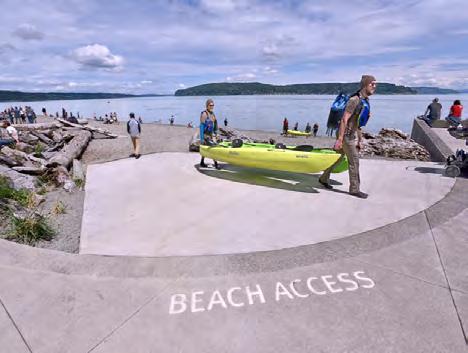
Economic uncertainty, increasing construction costs, labor and material shortages, and a volatile bidding climate have challenged our capital improvement program to be resourceful. In response, Metro Parks continues to leverage funds through partnerships, grants and new state and local infrastructure funding programs to amplify the positive impacts of our capital program.
Of the commitments made in the 2014 UTGO bond program, a large number of projects of various size and scope have been completed. The three largest projects under the bond program, Dune Peninsula, the Pacific Seas Aquarium at Point Defiance, and the Eastside Community Center, were completed early in the program while many smaller but equally important projects were completed under the 2021-2022 CIP. In the past two years MPT’s capital program brought improvements to sites throughout the district such as access enhancements and new park facilities at Swan Creek, coastal resiliency investments at Owen Beach and critical playground safety surface replacement at McCarver, Wright and South End Recreation Area (SERA). Much remains to be done, however. The 2023-2024 CIP not only recommits to focusing on neighborhood and community parks, but prioritizes completing existing projects, reinvesting in existing assets while responding to emerging trends and emphasizing projects in the Southeast, Southwest, and Central planning areas. The focus for 2023-2024 will continue to be increased equity and access across the District.
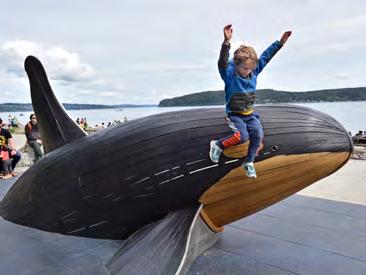
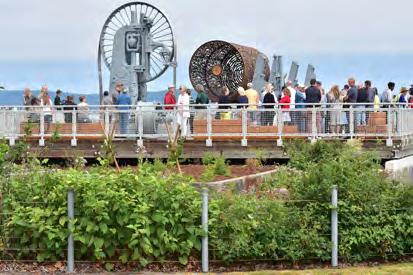


Community Parks
•Wapato Park
• Norpoint Park
• Je erson Park
• Lincoln Park
• Franklin Park
• Stewart Heights Park & Pool
$10.4 M

Sports Complexes & Athletic Field Renovations
•South End Recreation & Adventure (SERA) Campus
• Heidelberg Davis Athletic Campus
•Peck Field
• Athletic Complex Partnership Projects
$8 M

Open Space, Trails & Natural Areas
•Environmental Greenspace
• Garfield Park Natural Area
• Wapato Hills Park Natural Area
•Trails & Pedestrian System Partnerships

Regional Parks
• Point Defiance Park
• Swan Creek Park
• Northwest Trek Wildlife Park
$47.7 M

Waterfront Parks & Facilities
•Point Defiance Marina
• Ruston Way Parks
• Dune Peninsula at Point Defiance
• Titlow Park
• Dash Point Park
• Thea Foss Waterway Parks
$13 M

Historical & Cultural Landmarks
•Fort Nisqually Living History Museum
• Point Defiance Lodge (Visitor Center) & Historic Picnic Shelters
• Wright Park & Seymour Botanical Conservatory
$6.5 M
$6 M

Community Centers
•Center at Norpoint
• Eastside Community Center •Peoples Center/Tacoma Nature Center
$11 M

Neighborhood Parks & Recreation Small Capital
$14 M Land Acquisition
$3 M
System E ciencies
• Technology Improvements
• Centeralized Maintenance
• Facility Debt Retirement
$13 M

North Pacific Aquarium & Exhibits
• •Pacific Seas Aquarium
• South Pacific Aquarium
•Rocky Shores Habitat
• Critical Life-Support System Upgrades
$65.4 M
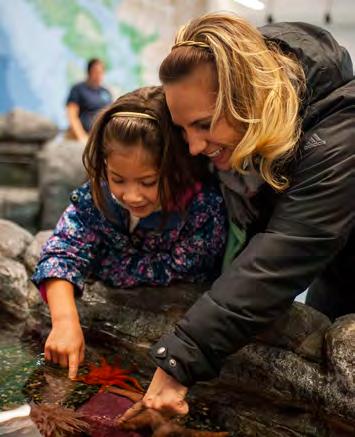
Metro Parks Tacoma (MPT) maintains a broad planning framework to provide first-class recreational programs and facilities. Agency resources such as the Mission-Led Comprehensive Program Plan, Metro Parks Tacoma’s Strategic Plan, Sustainability Plan, Master Plans and Business Plans for facilities throughout the District provide data-driven directives to meet program needs. The 2023-2024 biennium will see many of these policies and plans updated, providing a critical roadmap to long-term as well as near-term decision making. The Capital Improvement Program is intended to respond directly to community need, preferences and priorities as captured and articulated within these long-range plans.
Metro Parks Tacoma Capital Improvement Program Process
Program, Attraction & Enterprise Business Plans
Examples:
• Point Defiance Zoo & Aquarium Business Plan
• Fort Nisqually Living History Museum Business Plan
Park & Facility Master Plans
Examples:
• Point Defiance Park Master Plan
• Wright Park Master Plan
• 2017 Joint Athletic Facilities Study
Strategic Parks & Rec System Master Plan
• Outlines process to meet community needs and sustain operations, with performance indicators.
• Program driven action plan for entire District.
• Informed by statistically valid public survey.
• Reflects the use of multiple public outreach strategies to ensure community feedback, comment and validation.
• Techniques include public meetings, community steering committees, MPT Advisory Councils, statistically valid surveys, and ultimately the MPT Board of Park Commissioners.
Community engagement informs our understanding of community needs and desires, guiding Master Plans and design work. Program, Attraction and Enterprise Business Plans inform the CIP by identifying specific facility needs based upon customer demands and market conditions. These planning efforts, combined with strategic and sustainability goals along with lifecycle management considerations drive CIP content creation.The Capital Improvement Program also reflects the priority program initiatives of interagency collaborative leadership teams such as the Joint Municipal Access Committee (JMAC) whose strategic initiatives of JEDI (Justice, Equity, Access, Inclusion), Health and Safety, and Community Wealth Building are reflected in MPT’s capital program. As an example, significant strides have been made over the current biennium to grow the relationships between MPT and the community of small, local and minority owned businesses and contractors who wish to bid and perform work as provided by our capital program.
New outreach and engagement tools have been developed to broaden the knowledge, awareness and capacity of those companies to benefit from the public monies invested in our community through the CIP. The MWBE (Minority and Women-owned Business Enterprise) Annual report for the current biennium provides a detailed summary of advances made in this priority area.
In 2014, voters overwhelmingly passed the largest bond measure in MPT history ($198 million). Metro Parks honors the public’s investment by pursuing sustainable and impactful opportunities to leverage and magnify the positive impacts of its capital program though grants, partnerships and innovation.
Comprehensive criteria helps determine when and where specific facilities and/or park sites receive upgrades or where new development is needed to meet increasing demand. These criteria guide prioritization and project schedules throughout the six-year CIP period.
Projects are evaluated holistically to ensure rankings are tailored to address current community need and priorities may be adjusted according to emerging trends and conditions.
• Park Board / Executive Priorities – Achieve the priorities set forth by the Park Board and Executive Director, including those projects that have Public Safety, Equity and Sustainability outcomes.
• 2014 Bond Program – Achieve the objectives of the 2014 bond to be responsive to Tacoma voters and community members, and demonstrate accountability with public dollars.
• Continuation of Projects in Progress – Continue projects initiated under prior year CIP and as supported in adopted policy documents such as the District’s strategic, sustainability and program plans.
• Critical Needs (Safety/Aging Infrastructure) – Address infrastructure needs for immediate safety, resiliency and long-term operational efficiency.
• Partnership Projects – Fulfil commitments to partners, funding agencies, contracted service providers and stakeholder expectations.
• Planning Projects (Future Infrastructure) – Invest in early feasibility analysis and planning for future capital programs while seeking funding for completion under various state and federal infrastructure and economic development grant programs.
• Capital Facilities Plans – Implement projects that have been identified in departmental long-range facility such as PDZA’s recently completed Capital Facilities Plan for PDZA and NW Trek.
• Neighborhood & Community Parks on Priority Areas* – Continue the shift in project emphasis toward neighborhood and community parks now that the larger regional parks and facilities projects have been delivered under the current bond program.
Plans for the next two years include investments of over $7 million for Neighborhood and Community Parks, nearly $2 million for Heritage and Landmark assets, and over $16 million for Regional Parks.
MAJOR CATEGORY
Point Defiance Zoo & Aquarium
Regional Parks
Waterfront Parks & Facilities
Historical & Cultural Landmarks
Community Parks
Neighborhood Parks & Small Caps
Community Centers
Sports Complexes & Athletic Fields
Open Space, Trails & Natural Areas
Land Acquisition
System Efficiencies
TOTAL
% Distribution of Planned Funding
3,767,087
2,699,835
988,869
Partnerships Donation, Grants & Other
4,786,790
12,765,883
12,293,761
928,603
1,320,033
728,492
1,818,849
1,355,485
2,574,037
6,251,891
9,812,670
8,369,002
1,190,466
1,758,260
3,497,144
373,291
1,743,464
1,189,000
1,524,500
5,187,644
3,392,782
6,720,300
6,624,594 $ 727,006 $ 2,743,097 $ 4,043,413 $ 86,464 $ 1,800,754 $ 382,750 –$ 7,008,645 $ 33,529,805 $ 74,427,137
The 2023-2024 CIP seeks to balance the vision and commitment of the 2014 Bond program with increased emphasis in the areas of public safety and the principles of JEDAI (Justice, Equity, Access, Inclusion); funds leveraging for recovery through state and federal infrastructure programs, and an emphasis upon sustainability and stewardship underlying the full breadth of decision-making. Metro Parks Tacoma continues to respond to impacts brought by the COVID-19 pandemic which has emphasized the critical role that MPT’s places and programs play in community health and wellness. Through the community outreach and engagement conducted by MPT as part of the budget process, concerns for safe, accessible and well-maintained parks were predominant themes.
Capital projects proposed within the 2023-2024 work plan are prioritized in direct response to these concerns. The CIP funding is applied to critical infrastructure needs; to preserve and enhance existing assets; to complete work at Community and Neighborhood Parks in priority planning areas; and to leverage partnerships and collaborations in order to capitalize upon funding opportunities. Together, these priorities represent a collective effort to increase the health, safety and wellness of our park system, creating a more livable community for all Tacoma residents.
• Safe Routes to Parks: Through collaboration with the City of Tacoma, its current Streets Initiative, Safe Routes and Vision Zero programs, MPT works to integrate bicycle and pedestrian access improvements into active transportation projects to provide safe access for park users of all ages and mobilities. The 2023-2024 CIP includes:
n A “Safe Routes” project providing a funding resource for sidewalk and accessibility improvements districtwide; Sidewalk, crosswalk and pedestrian entry improvements at Peck Field in partnership with City of Tacoma;
n Sidewalk improvements at Roosevelt Park for safety and connectivity to nearby Roosevelt Elementary and Grandview Park;

• Swan Creek Park Bicycle and Pedestrian Bridge: Engineering begins in 2023 for a new bicycle and pedestrian bridge connecting the Salishan neighborhood and First Creek Middle School and Eastside Community Center Campus via Pipeline Trail to Swan Creek Park. Funding for the design phase for this project is provided through a Washington State Commerce Grant.
• Titlow Park North Hidden Beach Bridge: With funding provided through a Washington State Commerce Grant engineering is underway for the complete replacement of the aging timber bridge that provides access to the shoreline of Titlow Park at Hidden Beach. The new bridge once completed will serve pedestrians and provide emergency and service vehicle access to this natural shoreline. The bridge is a critical component of the park’s extensive network of nature trails.
• Point Defiance Park Loop Trail: Phases One and Two of this project will be constructed in 2023 and 2024 to bring much needed bicycle and pedestrian connections within Point Defiance Park. The new bike and pedestrian trails, separated from vehicle lanes, will provide safe access from the front of the park to many of the primary destinations within Point Defiance Park such as the Pagoda, Lodge, Zoo & Aquarium, Environmental Learning Center and Owen Beach.
• Water Flume Trail: Through its capital program MPT will contribute funding to the City of Tacoma’s Water Flume Trail to better connect South Park and other south end destinations with downtown, via a shared use trail along the South Tacoma Way corridor.
• Building Access and Security Improvements: Through its Major Maintenance Program managed under the capital program, continues building and site safety programs with the in Parks Maintenance and Operations stallation of building entry controls, locks, security cameras and alarm systems districtwide.
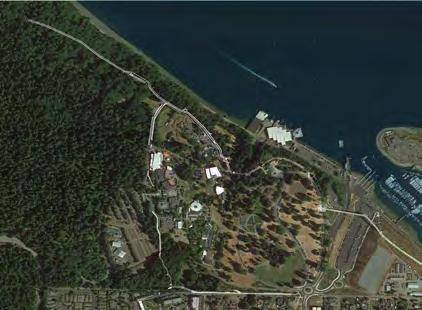
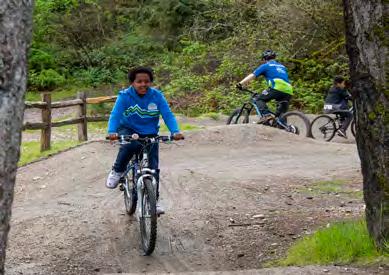


• Portland Ave Park: Master Planning for upcoming improvements to Portland Avenue Park commenced in 2022 and will continue into 2023 and 2024 with the design and construction of Phase 1 improvements as informed by community conversations. A new sprayground remains a high priority for this park along with support facilities such as new restrooms and accessibility enhancements. The Eastside community has expressed specific interest in safe access to the park, connectivity to surrounding neighborhoods and trails, playfield renovation, and a reactivation of the former community building.
• Gas Station Park: This bond-funded project will transform an existing southeast Tacoma pocket park with a toxic history into a tree-filled community play space – complete with trike track. Construction began in 2022 and will be complete in 2023. This small park plays an important role in serving the neighborhood, as measured by MPT’s 10-minute walk standard for park accessibility and community feedback.
• Franklin Park: Improvements to this Community Park are slated for the 2023-2024 biennium to help fulfill the vision of this park’s adopted Master Plan. Franklin Park has been the subject of community interest regarding designated off-leash areas and a new skatepark, both of these amenity types being requested with greater frequency, especially by central Tacoma park users.
• Community and Neighborhood Parks in Priority Areas: Park improvements are scheduled for the following sites to address aging infrastructure, access, and recreation needs of the community as expressed in the 2014 bond program. Work at each location will be informed through neighborhood dialogue as plans are developed.
n Community Parks, including but not limited to: Lincoln, Stewart Heights, Jefferson, Norpoint, and Wapato;
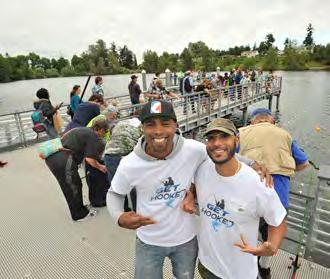
n Neighborhood Parks, including but not limited to: Ryan’s, Oakland-Madrona, Cloverdale, People’s, Stanley, and Baltimore;
• 1% for Art Program: Metro Parks’ Public Art Program, administered in collaboration with the City of Tacoma, lists upcoming projects in the 2023-2024 District Art Work plan. These projects include continuing the Public Art Reaching Community (PARC) project and working with the Puyallup Tribe of Indians for integrated artwork at Melanie Jan LePlant Dressel Park.
• MWBE Contractor Outreach and Engagement: As part of MPT’s commitment to anti-racism and equity actions, significant strides were made in 2021-2022 to engage with small, local, minority and women-owned businesses for work under the capital program. Through enhanced, pre-project relationship building and communications, projects included in the 2023-2024 CIP will be advertised and launched in a manner to expand contracting opportunities to MWBE firms in previously underrepresented areas of our community, thereby contributing positively to community wealth building.
• Enterprise Asset Management System: After years of business process review, analysis and planning, MPT will be acquiring and implementing an Enterprise Asset Management System for districtwide asset inventory, condition assessment, work order coordination, and implementing corrective and routine maintenance programs and capital replacement scheduling.
• Climate Resiliency: Capital planning and project implementation at multiple shoreline parks takes into account coastal resiliency and shoreline restoration. Titlow Park Lagoon and North Hidden Beach, Dash Point Park and Pier and other waterfront parks will continue to work toward resiliency through the planning, design and permitting steps. This work anticipates future construction and advances efforts to secure additional state and federal funding for implementation.


(Cont)
• PDZA Capital Improvements: The Point Defiance Zoo & Aquarium will be implementing a host of infrastructure and visitor experience improvement projects to improve operations, increase resiliency and system redundancy and reliability. This work will be informed by ZEED’s recently completed long range Capital Facilities Plan.
• Joint Maintenance Facility: Work continues on the scoping, feasibility analysis, site search and future funding plan for a Joint Maintenance and Skilled Trades Facility in partnership with the Tacoma Public School District to provide interagency operational efficiencies and job skills training to students who represent Tacoma’s future workforce.
• Northwest Trek Electric Trams and Tram Station: Operations are scheduled to begin in 2023 for the new all-electric trams and visitor station under this clean-energy initiative to better serve visitors, the animal populations and overall environmental quality at NW Trek.
• Point Defiance Park Major Utilities: Continuation of inventory, analysis and upgrades to the major utilities serving Point Defiance Park in collaboration with the City of Tacoma and Tacoma Public Utilities with an eye toward future transfer of operations and maintenance to City of Tacoma for cost and operational efficiencies.
• Major Maintenance Program: The 2-Year CIP increases program funding for Major Maintenance, an interdepartmental program designed to implement small capital improvements as necessary to increase safety and correct for deferred maintenance. The program also seeks to build long-term resiliency for buildings and grounds districtwide.
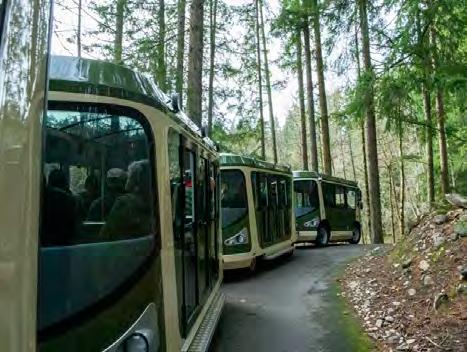
• Melanie’s Park (Melanie Jan LaPlant Dressel Park): Construction of a new waterfront park on the Foss Waterway with a significant amount of private donations generated through the efforts of the former Foss Waterway Development Authority. Funds were provided by individuals, companies, grants, and partner agencies.
• Stewart Heights Skate Park: Design and construction of skate elements as called for in Phase 2 of the skate park plan will use funds provided through an RCO grant, and will be developed in collaboration with our local skateboard community.
• Washington State Legislative Funding: Planning, design and permitting will advance on multiple projects with funds provided by the State of Washington through MPT’s Legislative Agenda and the support of our local state elected representatives:
Swan Creek Park Bicycle and Pedestrian Bridge Design/Permitting
$400k Washington State Commerce Funds
Dash Point Pier Renovation Engineering
$400k WA State RCO Funds
Titlow Park North Hidden Beach Bridge Design/Permitting
$400k Washington State Commerce Funds
• 1% for Public Art Program: As part of the CIP the District collaborates with the City of Tacoma in administering the District’s 1% for Public Art program. The 2023-2024 Public Art Work Plan is located in the Appendix, beginning on page 88.
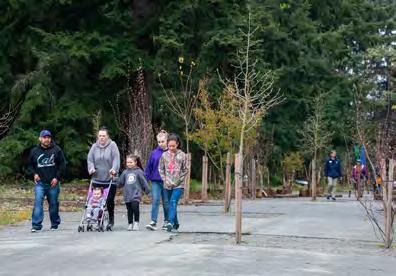
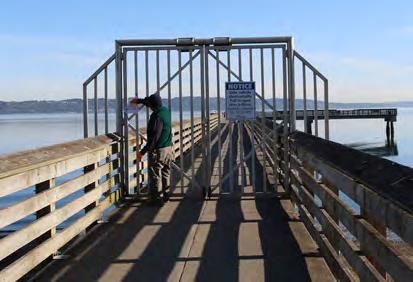

In 2023-2024 and beyond, MPT continues in its partnership with the Trust for Public Land (TPL) and Tacoma Public Schools (TPS) to complete Community School Yard Projects at Helen B. Stafford and Jennie Reed Elementary Schools. These two schools will be the first of five Eastside elementary schools whose play yards will be transformed to serve as neighborhood parks when school is out of session. Designs for each school are developed in partnership with students, families and neighbors to create a warm and welcoming space to play and commune with nature.

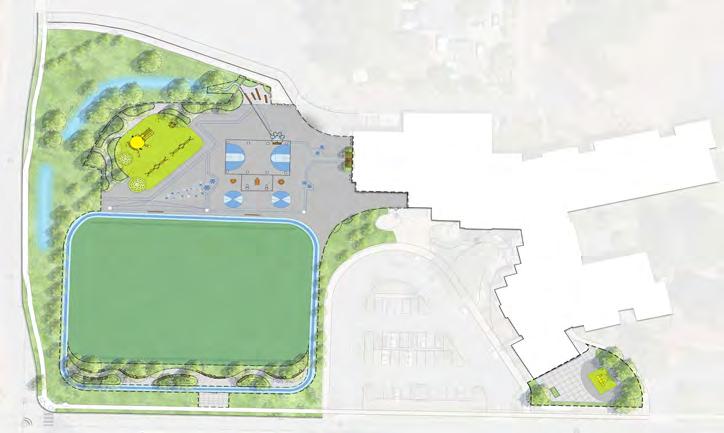
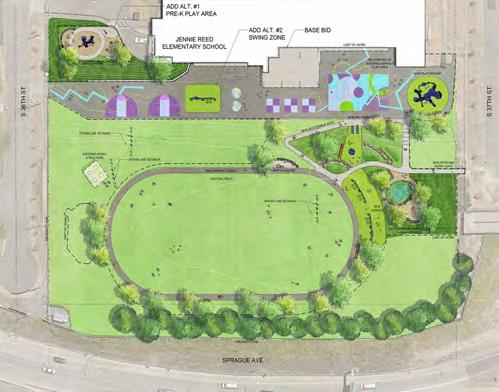
Trust for Public Land shares Metro Parks’ belief that everyone deserves to live within a 10-minute walk from a great park. They are converting schoolyards across America, in partnership with communities like ours, to help improve livability in historically underserved areas. Construction is anticipated to get underway at Stafford and Reed in 2023 and TPL has begun design work with the students at Larchmont, Whitman and Mann, the other three schoolyards that they are committed to transforming.
These projects are supported in part with an overall commitment of $1.5 M 2014 Bond funding and a contribution from Trust for Public Land averaging $820,000 per location in addition to facilitation of the design development and oversight of the Community Schoolyards program. Tacoma Public Schools provides further support of these projects through project management services, site surveying and long-term operations and maintenance.

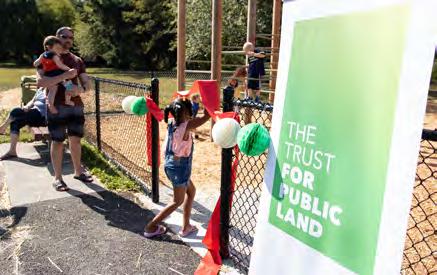
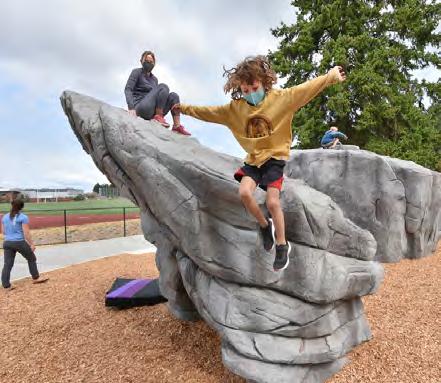
POINT DEFIANCE ZOO & AQUARIUM
Point Defiance Zoo & Aquarium
TOTAL: POINT DEFIANCE ZOO & AQUARIUM
REGIONAL PARKS & ATTRACTIONS SPENDING
HISTORICAL & CULTURAL LANDMARKS
Fort Nisqually Living History Museum
Historical & Cultural Landmark Small Cap Projects
Historical & Cultural Assets Conservancy
Lincoln Park Shelters
REGIONAL PARKS
Northwest Trek Wildlife Park
Point Defiance Park
Swan Creek Park
WATERFRONT PARKS & FACILITIES
Dash Point Pier
Point Defiance Park - Marina & Herring Pen Ruston Way
Thea Foss Waterway Parks
Titlow Park
TOTAL: REGIONAL PARKS & ATTRACTIONS
NEIGHBORHOOD PARKS, NATURAL AREAS & RECREATIONAL FACILITIES
COMMUNITY CENTERS
Center at Norpoint
Eastside Community Center &
Tacoma Nature Center (Closeout)
Portland Avenue Community Center
COMMUNITY PARKS
Franklin Park
Jefferson Park
Lincoln Eldridge
Norpoint Park
Portland Avenue Park
Stewart Heights Park
Wapato Park
Wright Park
$6,251,891
$6,251,891
$1,190,466
$1,050,733
$10,000
$48,733
$81,000
$9,812,670
$3,305,102
$6,019,568
$488,000
$8,369,002
$617,688
$1,382,733
$284,501
$4,269,756
$1,814,324
$19,372,138 $373,291
$9,644,673 $9,644,673 $1,917,472 $1,605,739 $20,000 $48,733 $243,000 $16,532,970 $4,187,602 $8,304,568 $4,040,800 $14,993,596 $4,617,688 $1,382,733 $334,501 $4,269,756 $4,388,918 $33,444,038 $459,755 $86,464 $105,968 $267,323 $4,501,357 $106,256 $1,031,069 $1,085,296 $333,502 $634,383 $929,754 $331,097 $50,000
NEIGHBORHOOD PARKS, NATURAL AREAS & RECREATIONAL FACILITIES
LAND ACQUISITION
NEIGHBORHOOD PARKS & SMALL CAPITAL PROJECTS
Districtwide Projects
Neighborhood Parks - Central
Neighborhood Parks - NE
Neighborhood Parks - NW
Neighborhood Parks - SE
Neighborhood Parks - SW
OPEN SPACE, TRAILS & NATURAL AREAS
Partnership Sidewalks
Delong Park
Ryans Park
Safe Routes
Tacoma Water Flume Line Trail
Urban Forestry Support
SPORT COMPLEXES & ATHLETIC FIELDS
Heidelberg-Davis Athletic Complex
Multi-Field Siting Study
Meadow Park Golf Course
Peck Fields
SYSTEM EFFICIENCIES
Districtwide
Maintenance Facilities Technology
TOTAL: NEIGHBORHOOD PARKS NATURAL AREAS & RECREATIONAL FACILITIES
22-YEAR CIP GRAND TOTAL
$1,524,500
$3,497,144
$2,129,307
$142,650
$95,956
$194,000
$935,231 $0
$1,189,000
$205,000
$24,250
$397,750
$300,000
$252,000 $10,000
$1,743,464
$486,024 $0
$1,257,440 $0
$5,187,644
$3,762,141
$627,548
$797,955
$15,273,303
$40,897,332
$2,225,000 $506,580 $195,000 $246,083 $420,250 $450,500 $382,750 $0 $72,750 $0 $300,000 $0 $10,000
$1,800,754 $972,049 $60,154 $500,000 $268,551
$7,008,645 $3,113,956 $3,894,689 $0
$16,065,123 $33,529,805
Total
$1,524,500 $7,540,557 $4,354,307 $649,230 $290,956 $440,083 $1,355,481 $450,500 $1,571,750 $205,000 $97,000 $397,750 $600,000 $252,000 $20,000 $3,544,218 $1,458,073 $60,154 $1,757,440 $268,551 $12,196,289 $6,876,097 $4,522,237 $797,955 $31,338,426 $74,427,137
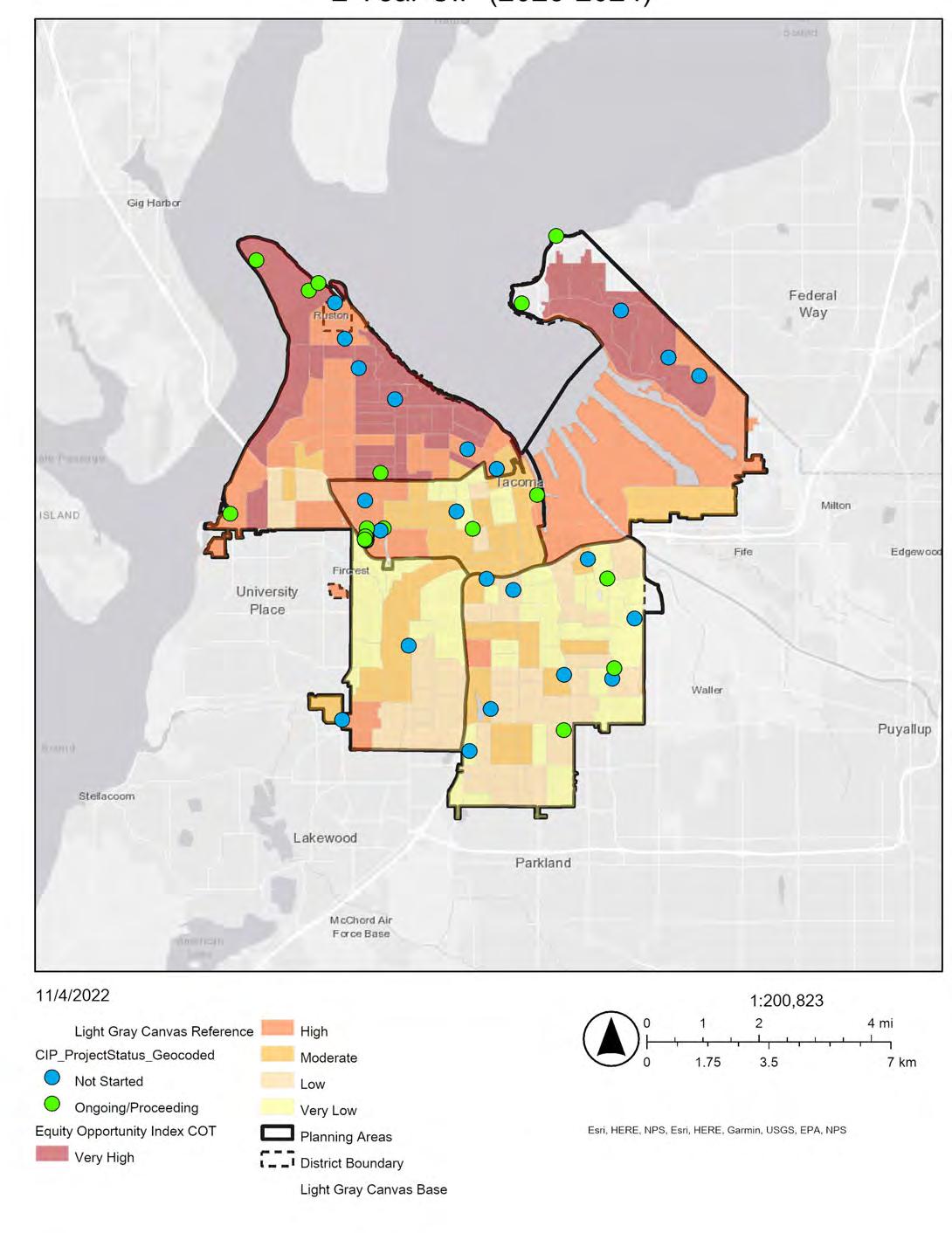
Metro Parks policy calls for the adoption of a 6-Year CIP every biennium, and the 2023-2028 CIP outlines in general terms the capital program as currently understood. In addition to the drivers noted in the section above, for 2023-2028 the overall goal is to complete the 2014 bond program and expend the balance of that fund. The 6-Year CIP also illustrates a significant investment of Parks and ZEED Operating Funds for small capital projects through their various Enterprise and Major Maintenance budgets.
The current 6-Year plan illustrates the continued focus on neighborhood and community parks in underserved areas, primarily the Southeast, Southwest and Central planning areas while preserving flexibility to fulfill commitments to partners and respond to community needs as they arise. The priority is to continue to make progress on equity investment projects and to work to improve park sites in historically underserved neighborhoods. Over $18.9 million across six years of the plan is budgeted for neighborhood and community parks.
While the 2014 bond program winds down over the next two to three years, work has begun on the planning of a future bond program to bring the next generation of park improvements to the Tacoma community. Though the details of that program are in preliminary planning stages, the projects will follow the course set through the District’s long-range and strategic planning and informed by ongoing dialog with the community to envision the park system of the future.
Total $11,344,673 $18,681,570 $35,323,436 $3,665,672 $6,818,722 $12,135,278 $459,755 $11,125,667 $2,518,896 $1,524,500 $15,249,641 $118,847,810
The table above the 2023-2028 CIP with
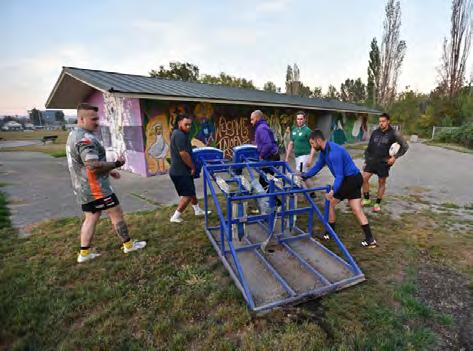
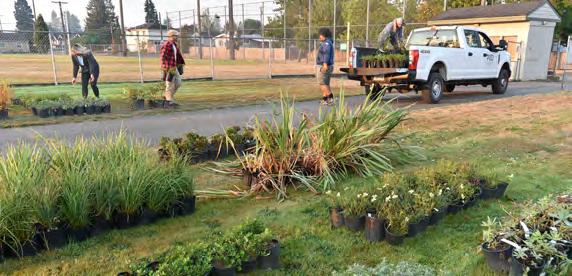
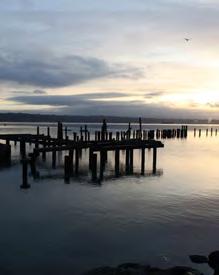

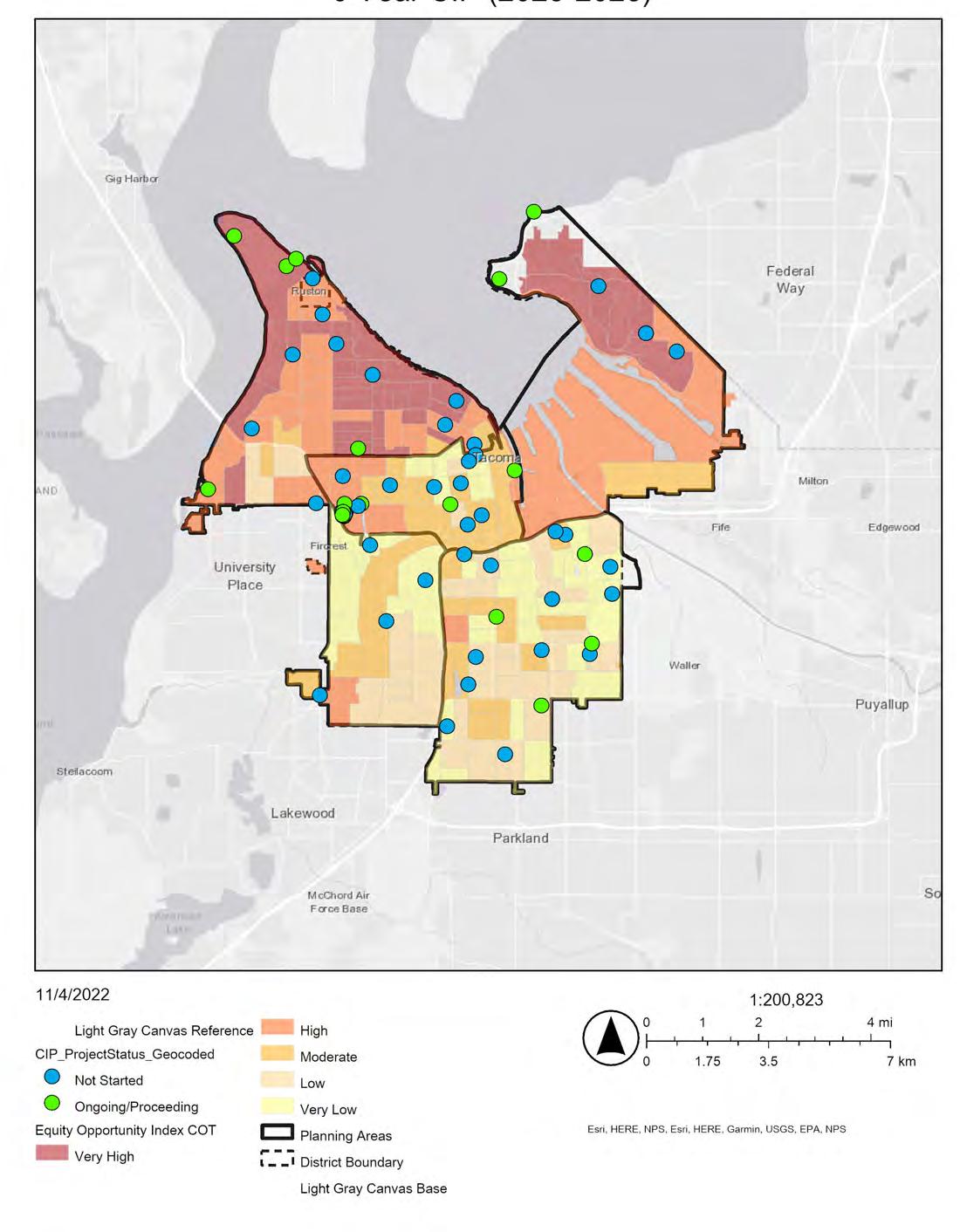
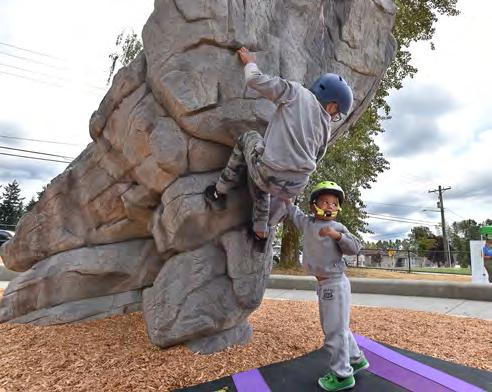
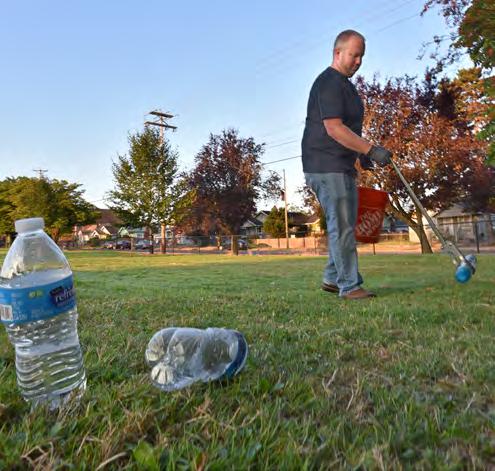


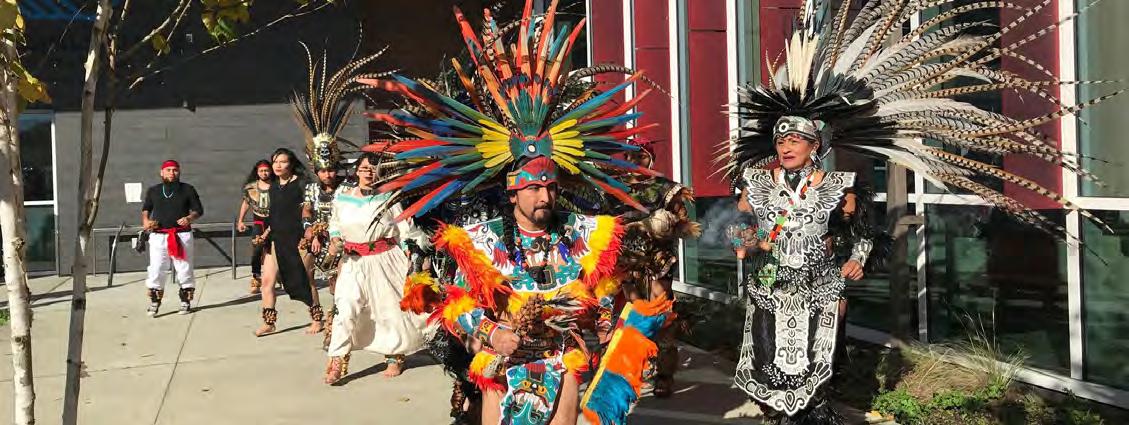
Metro Parks is governed by a Board of Park Commissioners whose members are elected by the people to six-year terms. The Board meets regularly on the 2nd and 4th Monday of each month at 6:00 p.m. The Board appoints a Chief Executive Officer (Executive Director) to administer the programs of Metro Parks Tacoma.
Board of Park Commissioners
Andrea Smith
Aaron Pointer
Rosie Ayala
Michael Liang
Tim Reid
Executive Leadership
Shon Sylvia
Jennifer Bowman
Norinda Rosario Yancy
Hunter George
Mark Knowlden
Hollie Rogge
Joe Brady
Alan Varsik
Rick Dietz
Sarah Oliver
Deborah Russell
Tania Wink
Marty Stump
Sandra Eliason
Legal Services
Roberts, Johns & Hemphill, PLLC
President Clerk Commissioner Commissioner Commissioner
Expiration of Term
December 31, 2023
December 31, 2025
December 31, 2028
December 31, 2023
December 31, 2025
Executive Director
Executive & Board Administrative Assistant
Chief Equity Officer
Governmental Relations Officer
Interim, Director of Parks & Recreation
Deputy Director, Community Parks & Programs
Deputy Director, Regional Parks & Attractions
Director of Zoological & Environmental Education
Deputy Director, Northwest Trek Wildlife Park
Deputy Director, Point Defiance Zoo & Aquarium
Director of Business Administration & Planning
Chief Finance & Administration Officer
Chief Planning Officer
Chief Marketing & Communications Officer
General Counsel, Contracts, Environmental Law
Summit Law Group, PLLC Personnel and Labor Relations Pacifica Law Group
Bond Counsel
Park Board Appointed Advisory Councils
Arts & Heritage Nature & Environment
Other Support Groups/Foundations
Zoo/Trek Authority
The Zoo Society
Tacoma Parks Foundation
Active Lifestyles & Community Wellness Business & Responsive Agency
Fort Nisqually Foundation
Northwest Trek Foundation
W.W. Seymour Botanical Conservatory Foundation
The following provides a history of property tax levy rates and levy amounts and also provides an illustration of county-wide property tax distribution.
$35,000,000
$30,000,000
$25,000,000
$20,000,000
$15,000,000
$10,000,000
$5,000,000 $–
29,869,743
37,430,399
37,040,987
18,928,000
44,385,615,187 $ 37,804,920,641 $ 33,024,517,373 $ 30,330,574,762 $ 27,079,667,861 $ 23,662,776,999 $ 21,207,605,958 $ 19,407,365,221 $ 18,256,338,159 $ 16,913,735,225
Source: (Pierce County Assessor-Treasure’s Office)
Source: (Pierce County Assessor-Treasure’s Office)
$18,000,000
$16,000,000
$14,000,000
$12,000,000
$10,000,000
$8,000,000
$6,000,000
$4,000,000
$2,000,000
$–
Source: (State Department of Revenue)
6.5%
1.4%
1.0%
0.6%
0.1%
0.1%
0.1%
0,1%
0.1%
0.1%
0.1%
0.1%
The following illustrates the population history for Tacoma, WA for a 10-year period. This information was obtained from the United States Census Bureau.
2,250,000 2,200,000 2,150,000 2,100,000 2,050,000 2,000,000 1,950,000
Source: (Pierce County Assessor-Treasure’s Office)




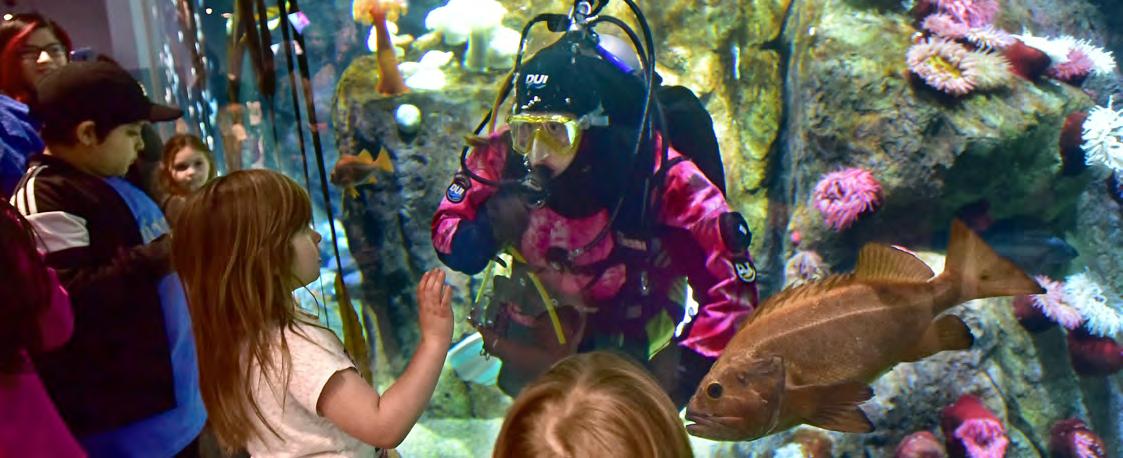
Debt Service funds are used to manage bond principal and interest payment obligations for governmental funds. This excludes Metro Parks bonded debt issued for enterprise funds, which are accounted for within those funds.
For 2023-2024 there are seven (7) Unlimited Tax General Obligation (UTGO) bonds. These are bonds that are paid for with an excess property tax levy approved by the voters.
The following table shows the combined 2023-2024 activities for each of the bond issues:
2023-2024:
UTGO
2012 UTGO
UTGO
UTGO
UTGO
2027-2028: 2014A UTGO
UTGO
UTGO
2029-2030: 2014A UTGO
UTGO
2031-2032: 2014A UTGO
2033-2034: 2014A UTGO
UTGO
2035-2036: 2016 UTGO
2037-2038: 2018 UTGO
998,200 447,325 3,012,750 2,396,500 4,527,400 3,221,900 914,800 15,518,875 –283,325 ––5,443,500 4,099,650 4,374,800 14,201,275 283,325 5,994,050 739,650 5,397,400 12,414,425 1,219,375 5,148,050 739,650 5,740,800 12,847,875 3,486,650 5,332,650 651,250 9,470,550 972,900 4,212,250 2,362,250 7,547,400 4,278,750 2,775,250 7,054,000 ––
Biennium Total 2,236,300 894,650 5,873,250 4,408,000 8,529,550 6,280,500 1,829,600 30,051,850 1,030,000 4,010,650 3,181,500 2,478,000 9,514,500 7,241,050 5,289,600 32,745,300 566,650 14,691,300 1,479,300 10,148,800 26,886,050 2,472,700 9,925,900 1,479,300 11,302,000 25,179,900 4,667,075 10,320,500 3,600,900 18,588,475 1,983,875 8,854,500 4,693,500 15,531,875 5,532,500 5,297,750 10,830,250 5,360,250 5,360,250
Biennial principal and interest due for each issue through maturity 2021-38
Biennial principal and interest due for each issue through maturity 2027-38
3,870,000
4,205,000 $ 4,000,000
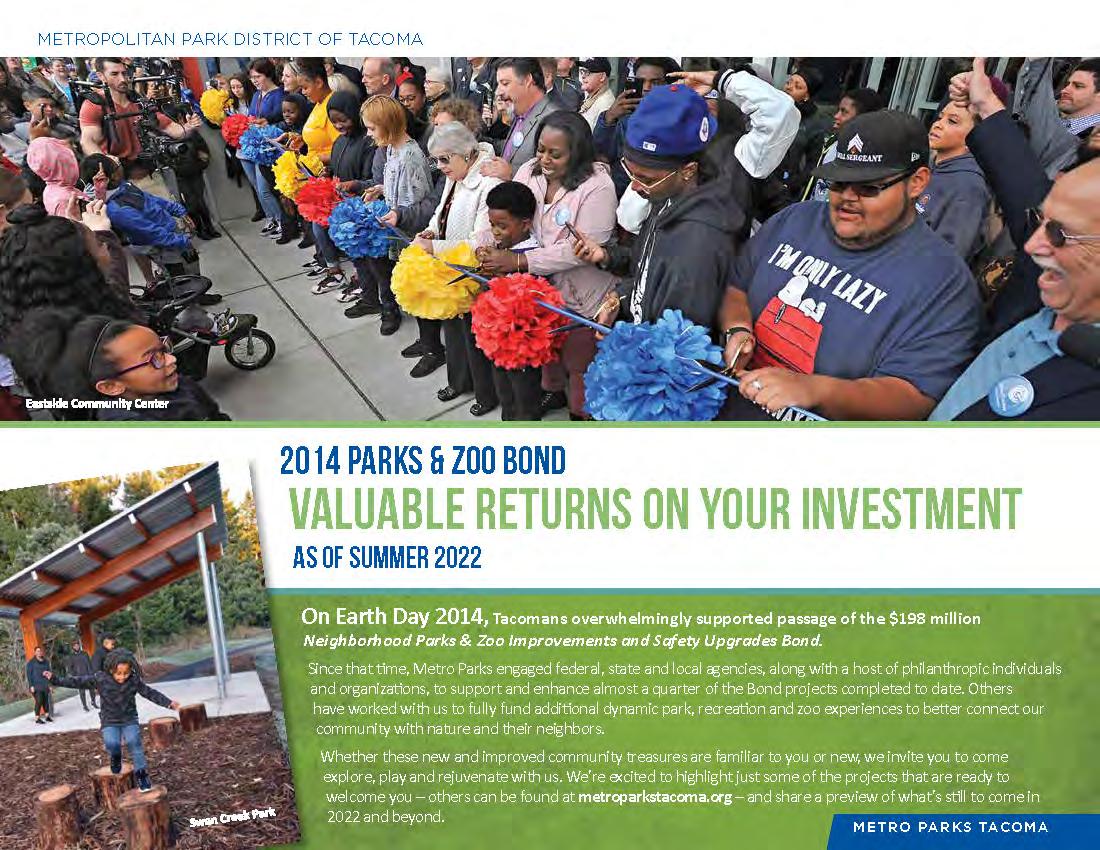
$ 19,335,000 A comprehensive 2014 Bond Update featuring capital projects completed through August 31, 2022 and is available to download on our website: www.metroparkstacoma.org/2014-bond-update/
In 2005, voter approval authorized Metro Parks Tacoma to issue general obligation bonds payable out of an “excess property tax levy” in an amount of $84,300,000 to make park improvements and refinance existing LTGO bonds.
• 2005 Unlimited Tax General Obligation Bonds: On December 15, 2005, Metro Parks Tacoma issued bonds of $29,280,000. $7,500,000 of these proceeds were used for park improvements and $7,500,000 of the proceeds were used to refund the 1996A and 2002 Limited Tax General Obligation bonds. The remaining $14,280,000 of these proceeds were used to refund the 2012 to 2021 maturities of the 2001 UTGO bonds.
• 2006 Unlimited Tax General Obligation Bonds: In October 2006, Metro Parks Tacoma issued $25,000,000 in the second series of the 2005 voter approved bonds for park improvements.
• 2008 Unlimited Tax General Obligation Bonds: In December 2008, Metro Parks Tacoma issued $19,210,000 in the third series of the 2005 voter approved bonds for park improvements
• 2010 Unlimited Tax General Obligation Bonds: In December 2010, Metro Parks Tacoma issued $25,090,000 in the fourth and final series for the 2005 voter approved bonds for park improvements.
• 2012 Unlimited Tax General Obligation Bonds: In 2012, the Park Board authorized a bond issue in the amount of $9,995,000 to take advantage of low interest rates and refund portions of two prior issues, thereby saving taxpayers approximately $1,000,000 over the life of the bonds. These proceeds are being used to partially refund the 2003A and 2005 UTGO bonds.
In 2014, voter approval authorized Metro Parks Tacoma to issue general obligation bonds payable out of an “excess property tax levy” in an amount of $198,000,000 to make park improvements and refinance existing debt.
• 2014 Unlimited Tax General Obligation Bonds: In December 2014, Metro Parks issued $33,400,000 as the first series of the 2014 voter approved bonds to be used for park improvements and debt refinancing. Metro Parks additionally issued $18,040,000 to take advantage of low interest rates and refund the 2006 UTGO bonds.
• 2016 Unlimited Tax General Obligation Bonds: In October 2016, the Park Board authorized a bond issue of up to $80,000,000 as the second series of the 2014 voter approved bonds to be used for park improvements and debt refinancing. The final bond issue amount is $70,000,000. The Board additionally authorized refunding the 2008 UTGO bonds. The final bond issue amount is $6,290,000.
• 2018 Unlimited Tax General Obligation Bonds: This fund accounts for the proceeds and expenditures of the $50,000,000 Park Board approved bond issued in April 2018 as part of the $198,000,000 voter-approved park bonds. Interest earnings and project management expenditures will be accounted for in this fund.
• 2019 Unlimited Tax General Obligation Bonds: In April 2019, the Board approved the refunding of the $25,000,000 Build America Bonds originally issued in 2010, which generated an estimated savings of $2 million in debt payments over the remaining life of the bond.
The Equipment Rental Fund manages debt service using a line of credit financing plan for the purchase of vehicles. This fund uses the service charge the departments pay in order to accumulate resources enough to purchase replacement vehicles in the future. It also manages scheduled vehicle replacement as needed.
In 2000 and 2002, bank loans in the form of lines of credit were initiated to purchase equipment. Starting in 2007, the program established vehicle replacement schedule utilizing the State LOCAL borrowing program to fund equipment purchases. The fund became self-sustaining in 2014.
Departments pay back the loans monthly, some with a surcharge. The repayment is identified as revenue in this fund. Vehicle purchases as well as repayment of any principal and interest to the lenders are identified as expenses.
Leases
Proceeds – Sale of Capital Assets Total Operating Revenues
EXPENSES Machinery & Equipment Purchase Bond Principal Payments External Debt Interest Expense
Total Operating Expenses Operating Income (Loss)
The Medical Insurance Fund was established in January 2014 to account for revenue (premiums) and expense (claims and administrative costs) related to the Metro Parks self-insured medical program. The working capital (reserve) amount must meet benchmarks agreed to with the State at the end of the first and second years.
1,225,000 1,225,000 9,250,000 $ 11,750,000 ($ 181,000) 4,939,523 4,758,523
The Property & Liability Insurance Fund was established in January 2014 to provide a dedicated reserve fund for insurance claims the district is obligated to pay that are subject to the insurance policy deductible amounts. Revenue goes into the fund from department premium charges, while deductible expense claims are paid out of the fund.
The capital projects identified above are included in the accounting system in one or more accounting funds, depending on the source of revenue and other legal requirements. For informational purposes, the following capital project funds are used by Metro Parks for capital project accounting.
Open Space Fees Fund (302) This fund was established to account for receipts that accumulate as resources received from open space fees.
Capital Planning and Project Renovation Fund (315) The majority of capital projects in this fund have the General Fund as a revenue source. They include strategic planning and deferred capital maintenance projects.
Parks & Planning Projects Fund (331) The majority of capital projects in this fund have the General Fund and other non-bond as a revenue source. They include strategic planning and deferred capital maintenance projects.
2018 UTGO Bond Fund (342) This fund accounts for the proceeds and expenditures of the $44,500,000 bond issued in May 2018 as part of the $198,000,000 voter approved park bonds. 2014 UTGO Capital Projects, interest earnings and project management expenditures will be accounted for in this fund.
UTGO Bond Local Fund (349) Some of the 2014 voter approved park bond projects are expanded due to receipt of grants, donations or other matching funds. The revenues and expenditures of the project expansions are accounted for in the local fund.
ZEED Capital Projects Fund (374) The majority of capital projects in this fund have Point Defiance Zoo & Aquarium and Northwest Trek Operations funding and other non-bond funds as a revenue source. They include ZEED strategic planning and deferred capital maintenance projects.
MPGC Capital Projects Fund (375) The majority of capital projects in this fund have Meadow Park Golf Courses Operations funding and other non-bond funds as a revenue source. They include strategic planning and deferred capital maintenance projects.

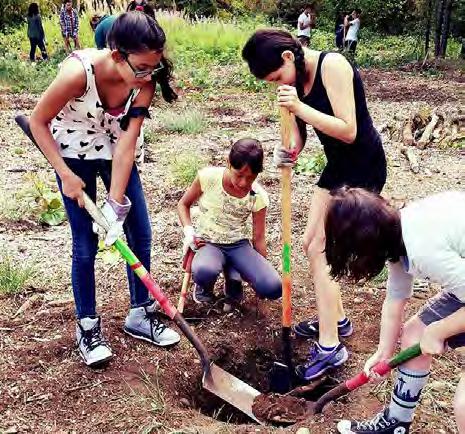
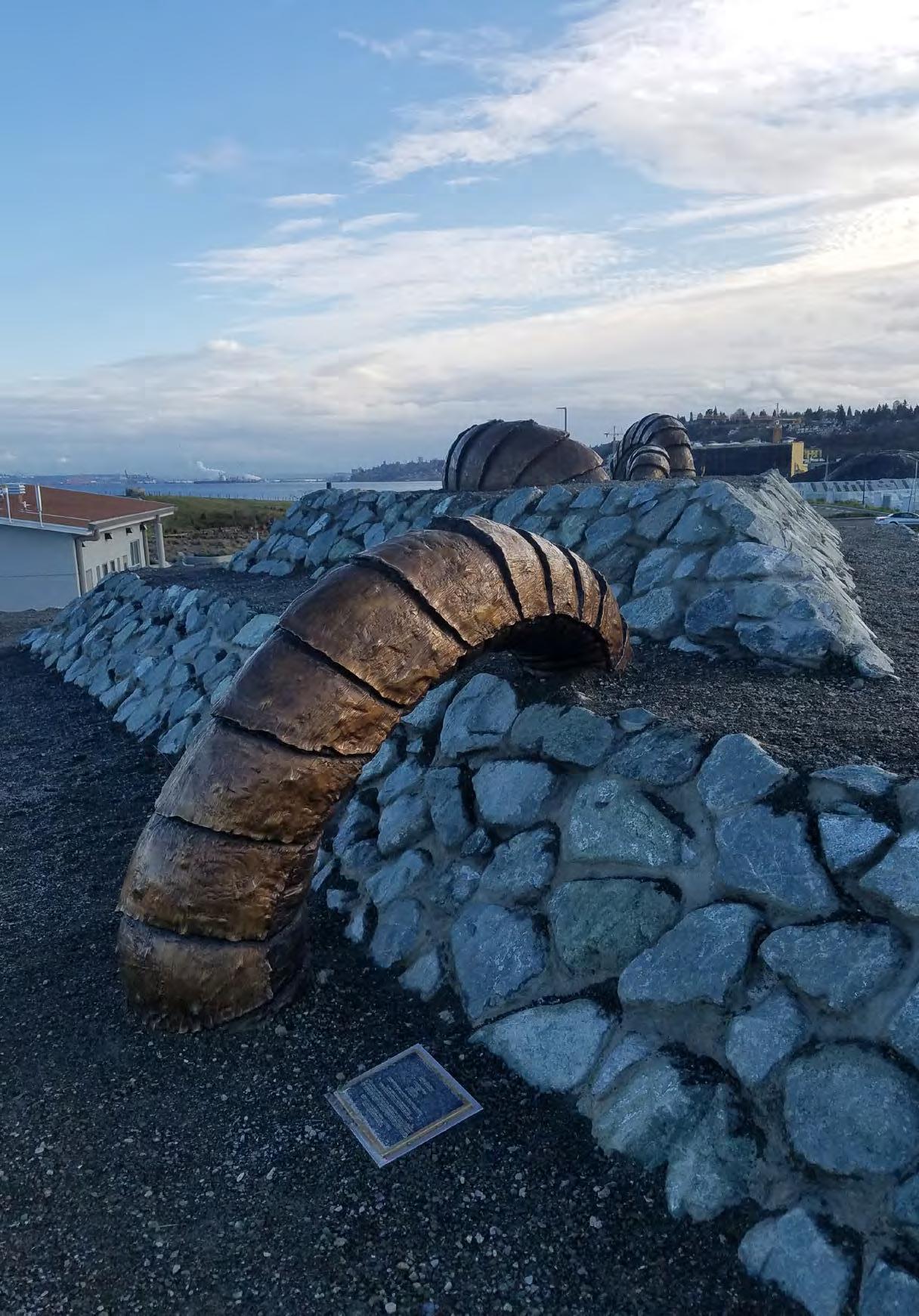

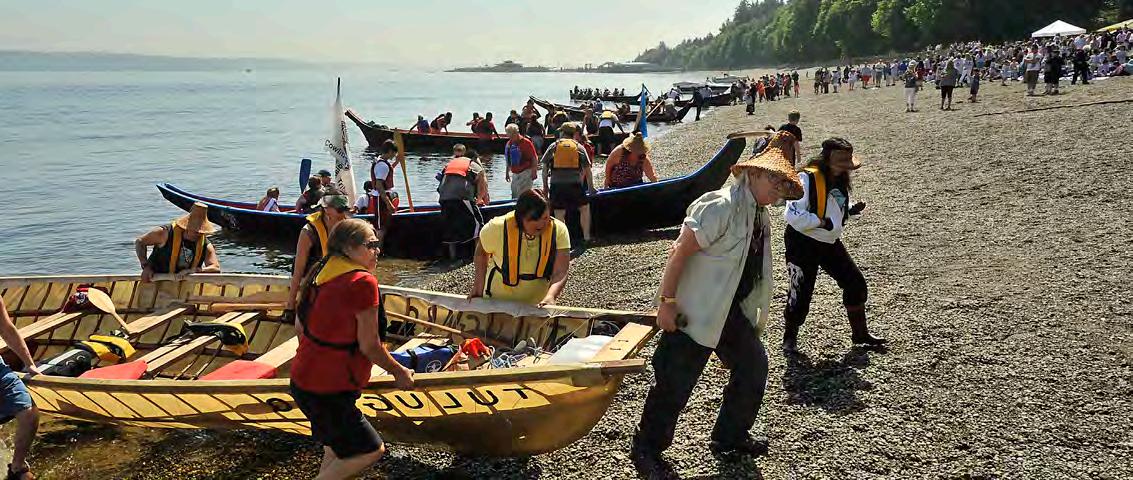
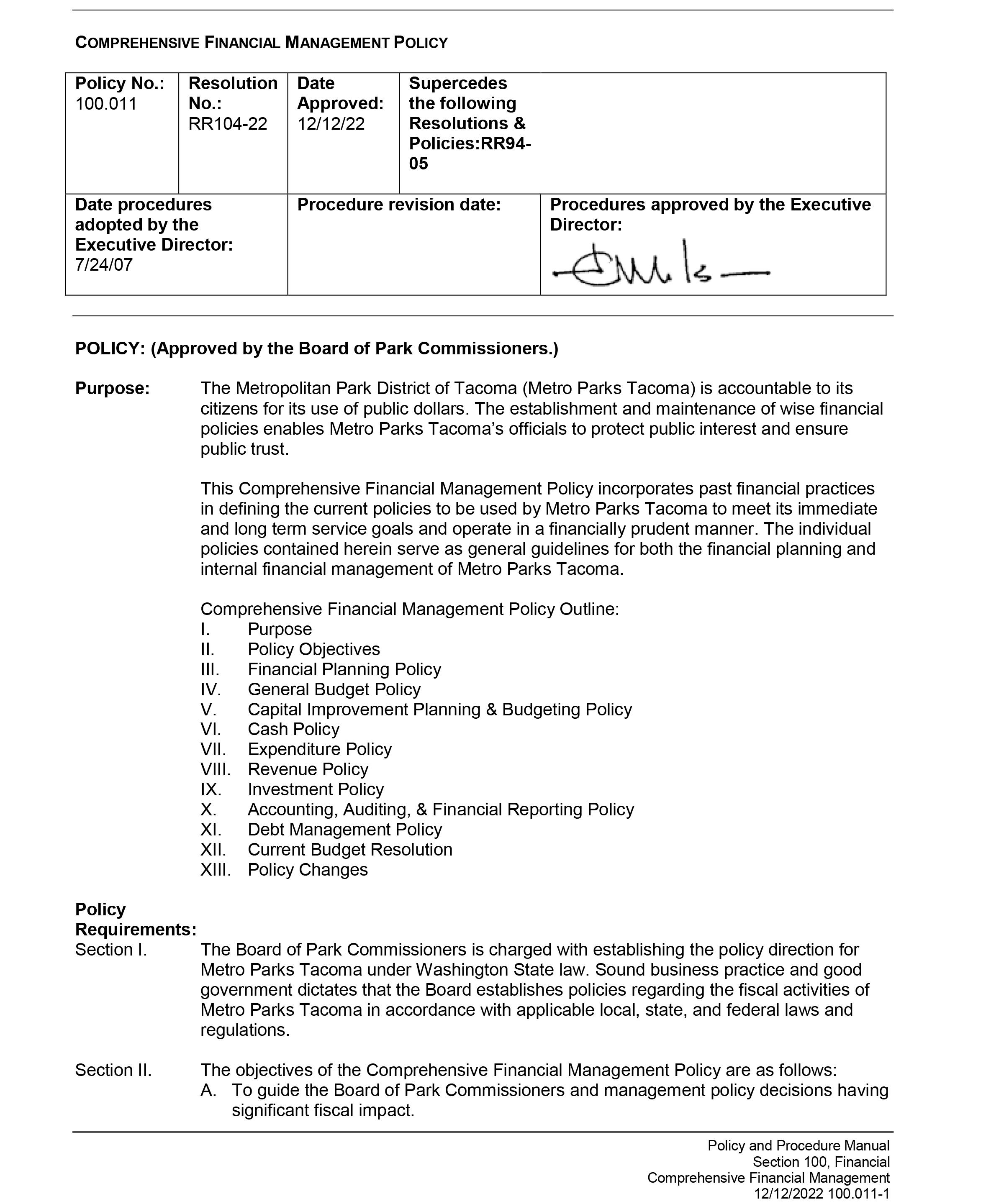
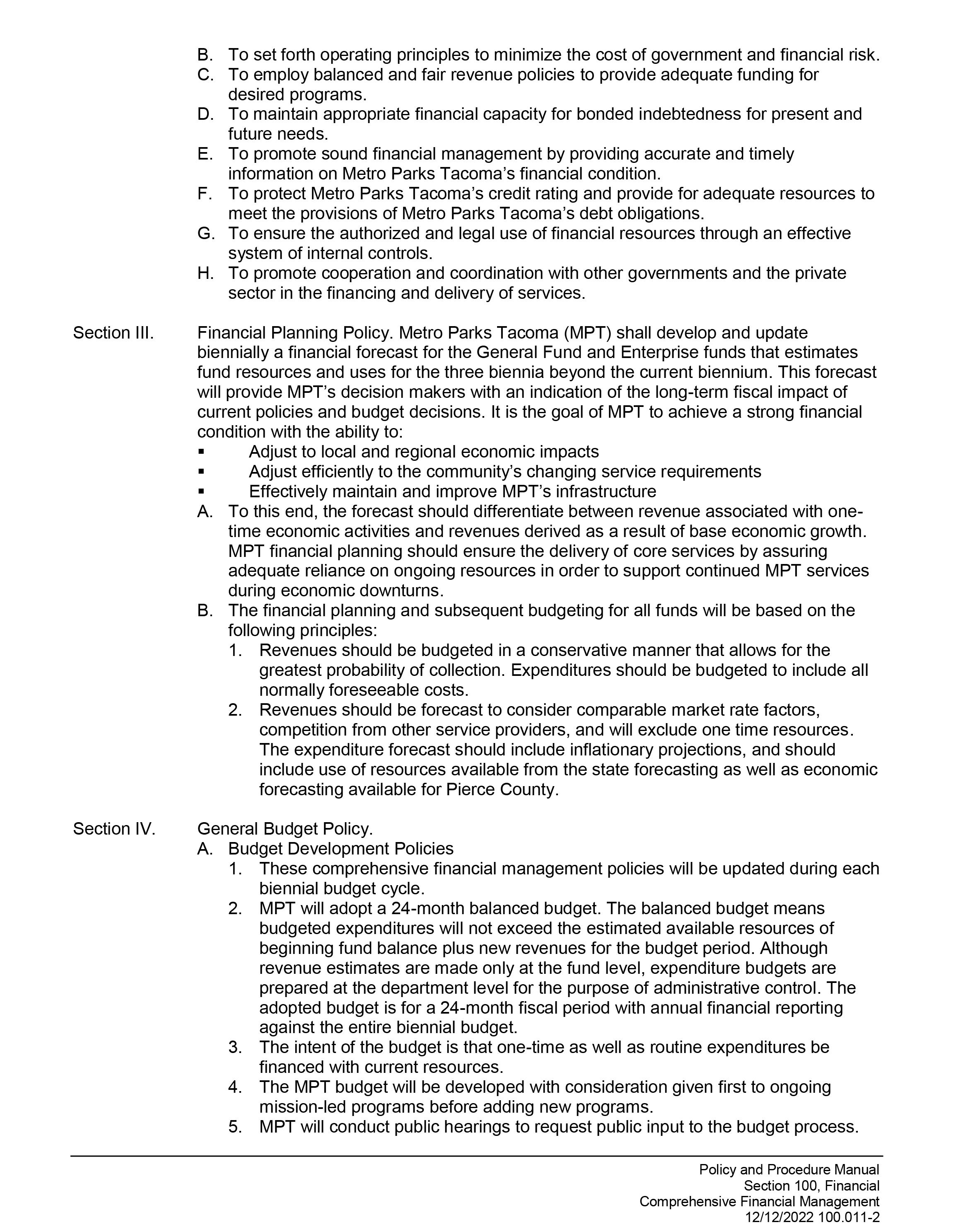
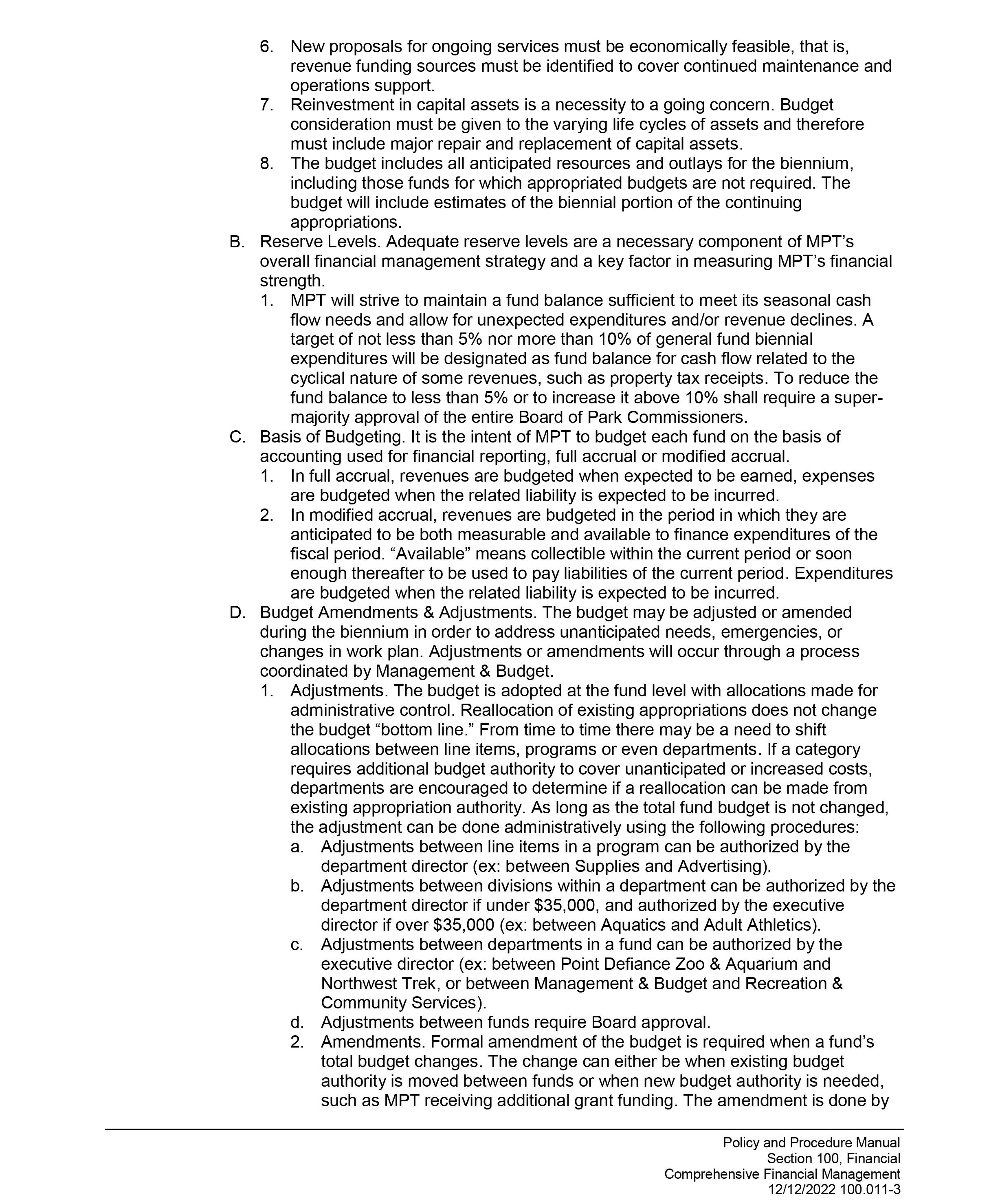
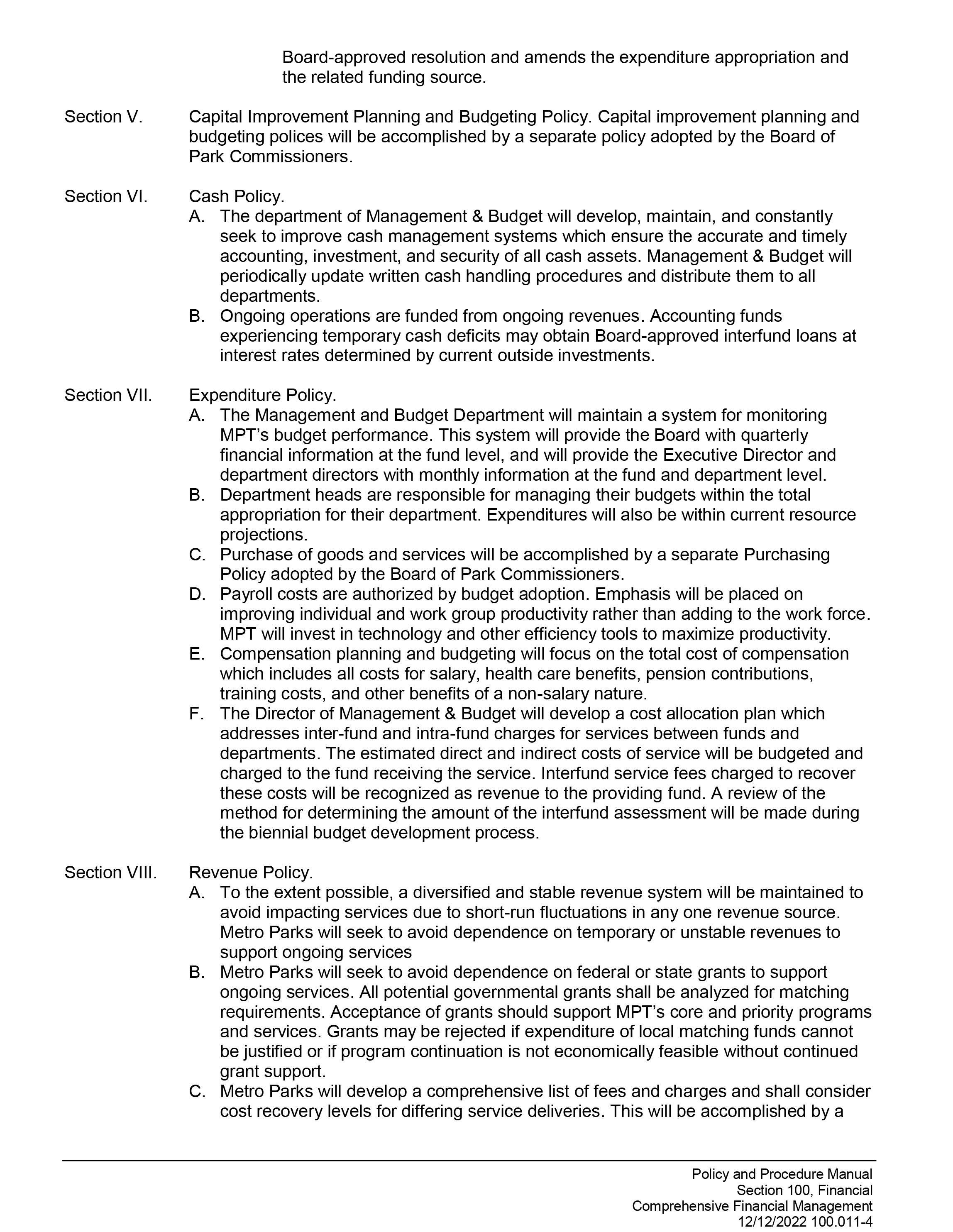
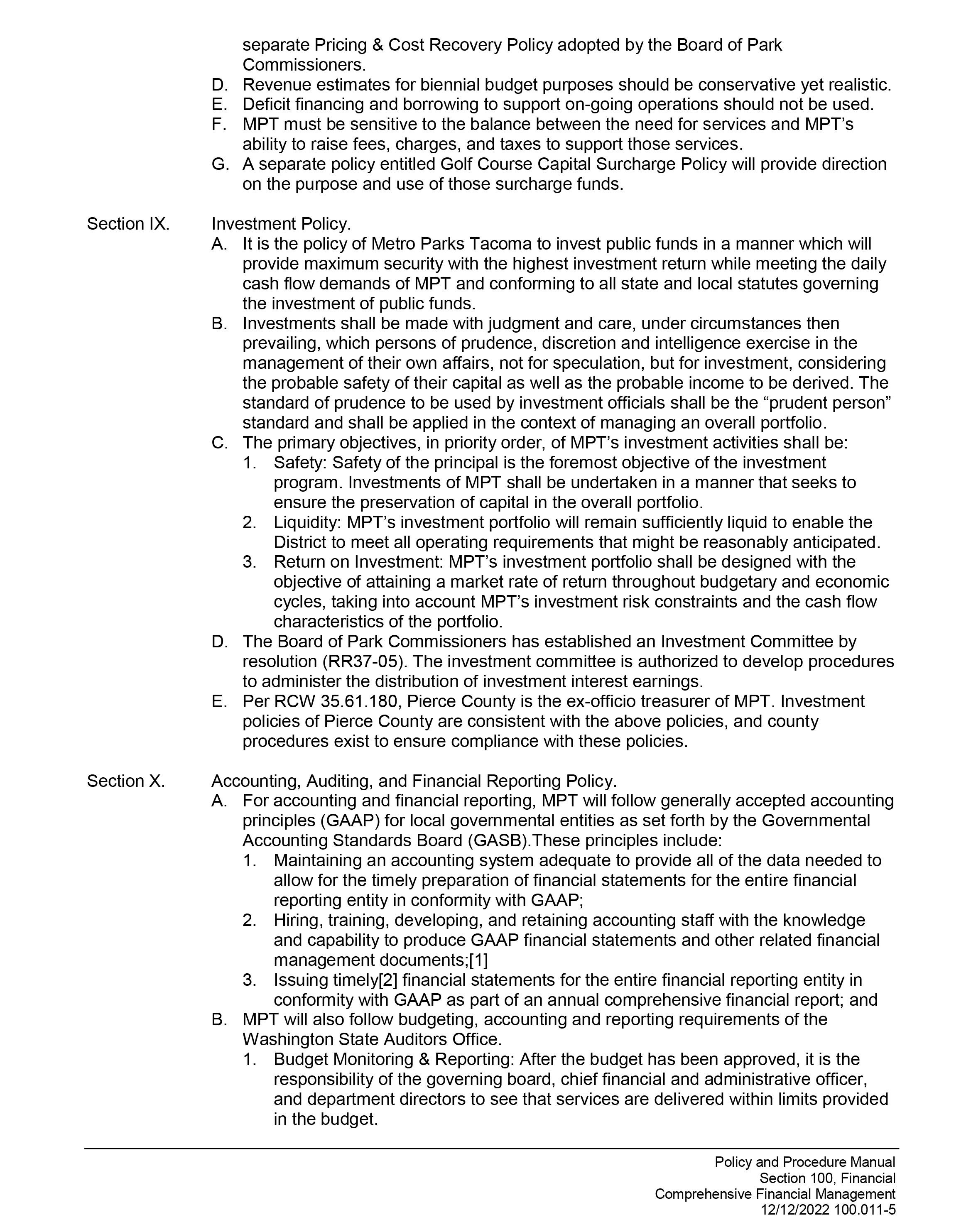
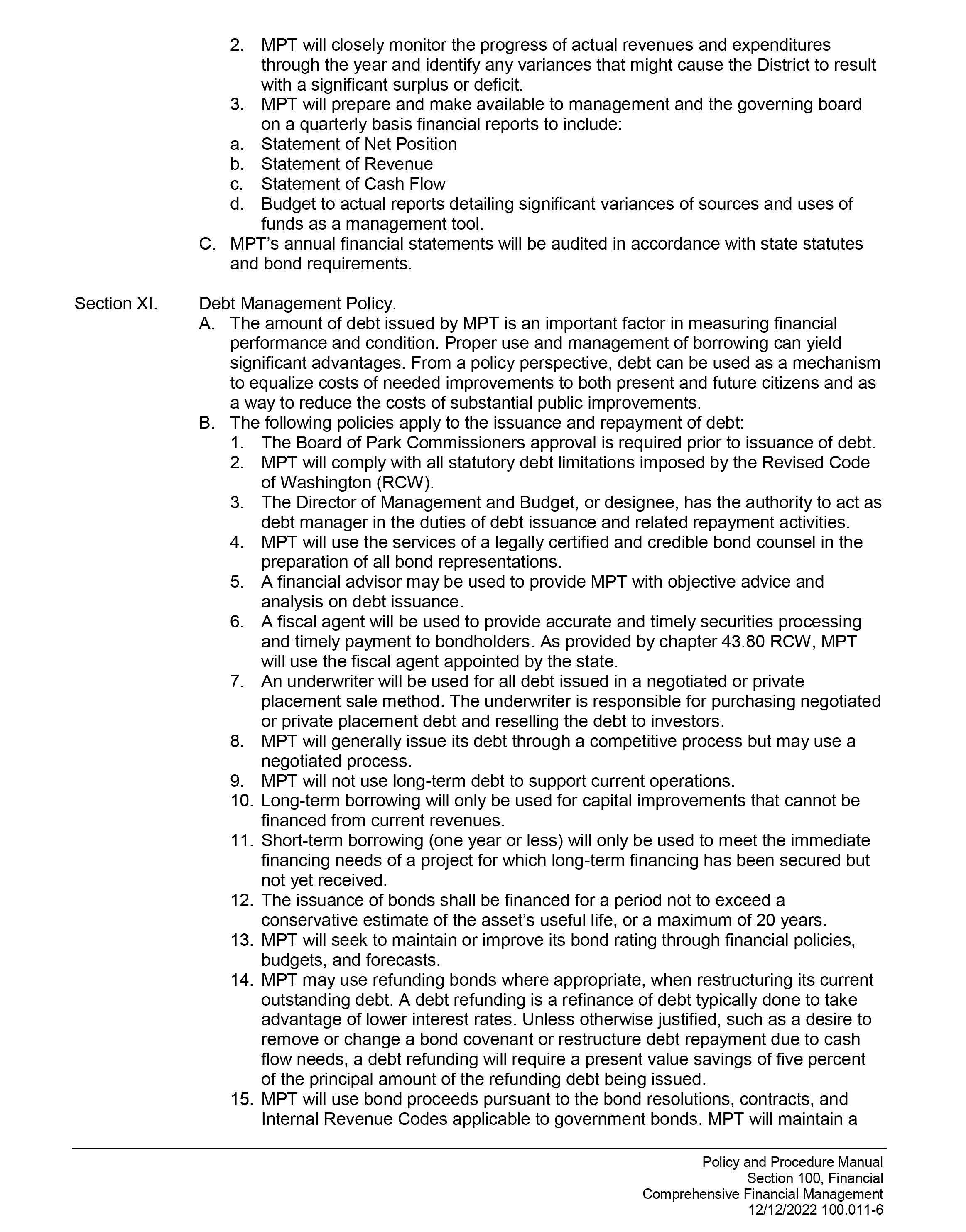
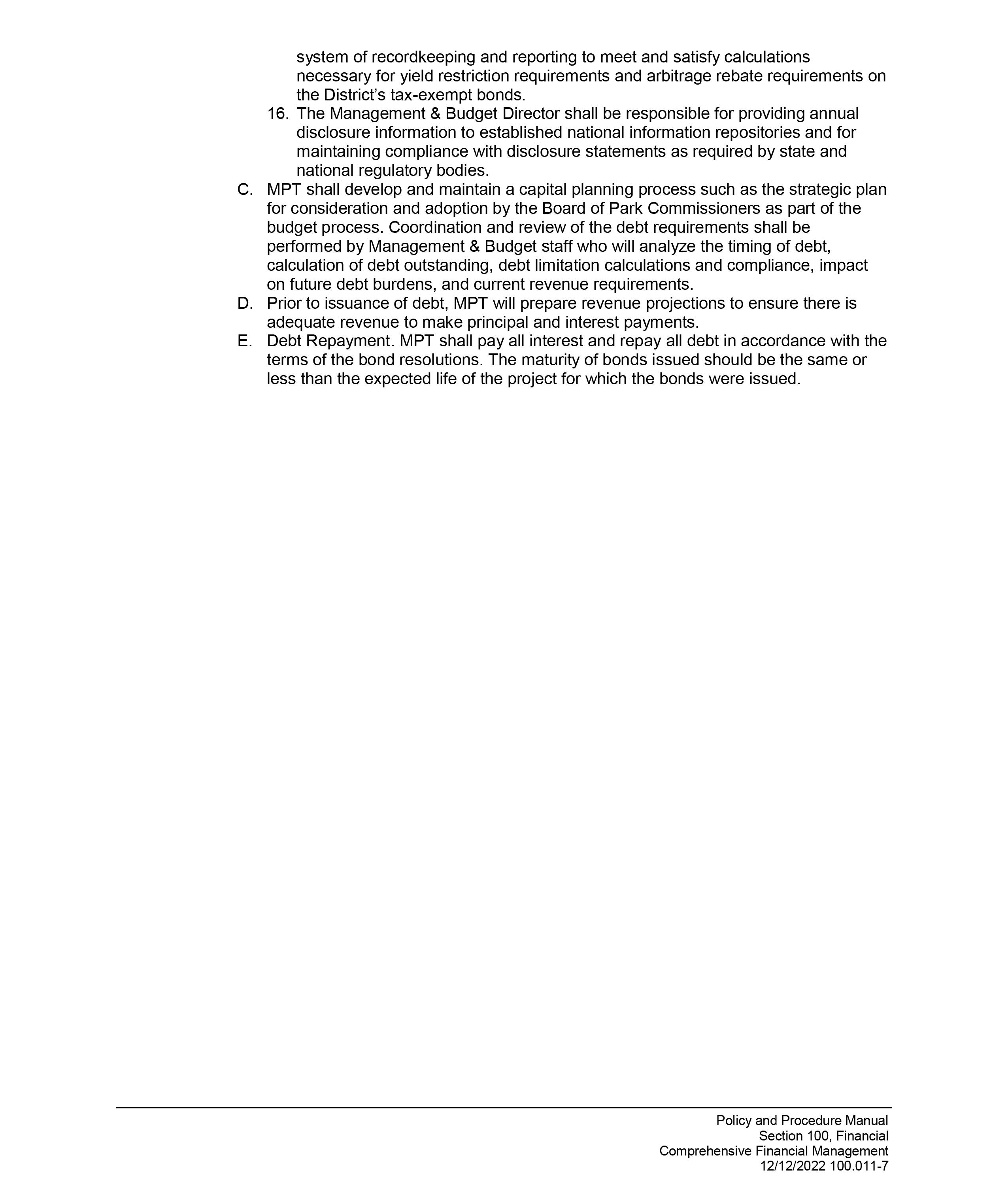
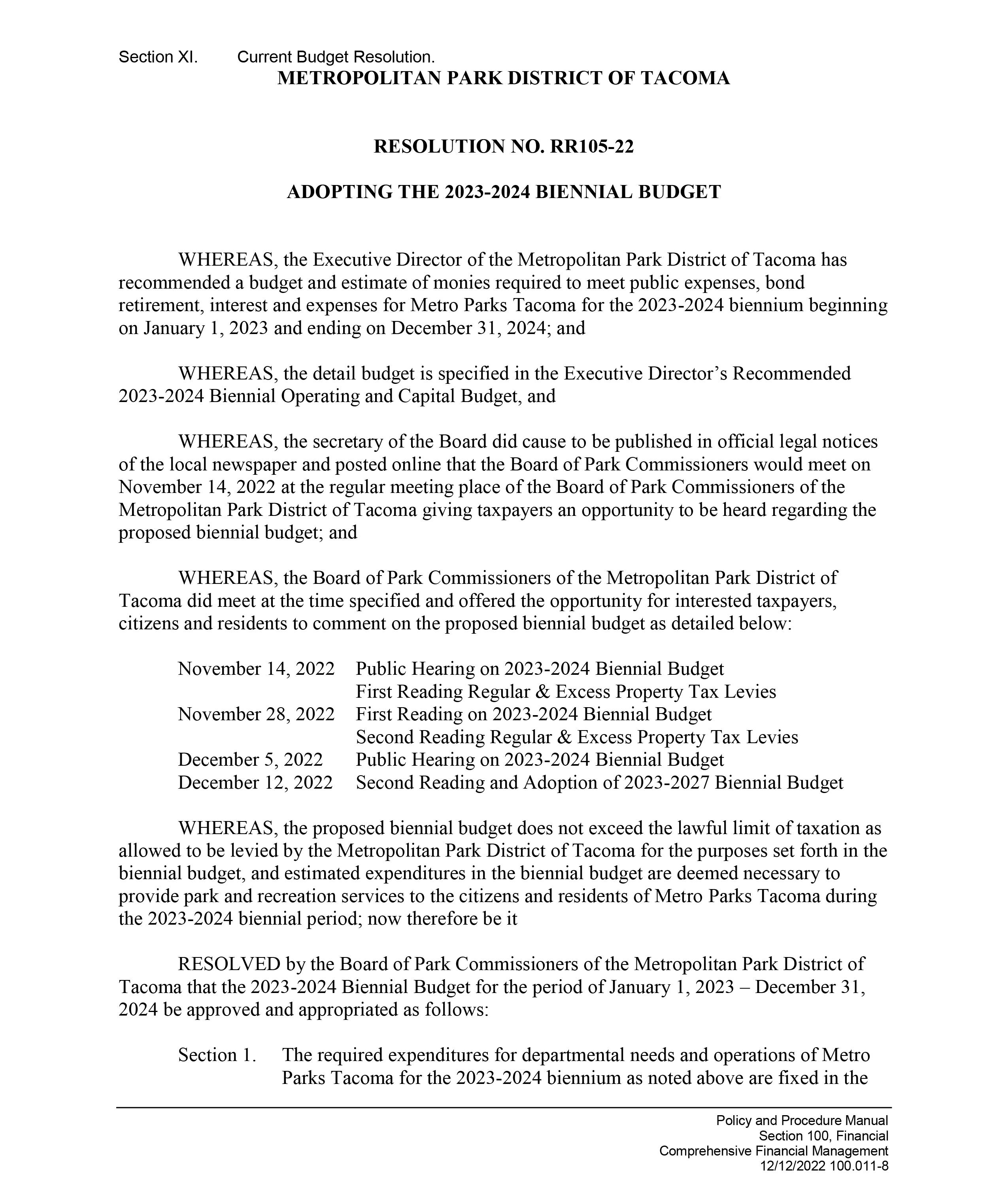
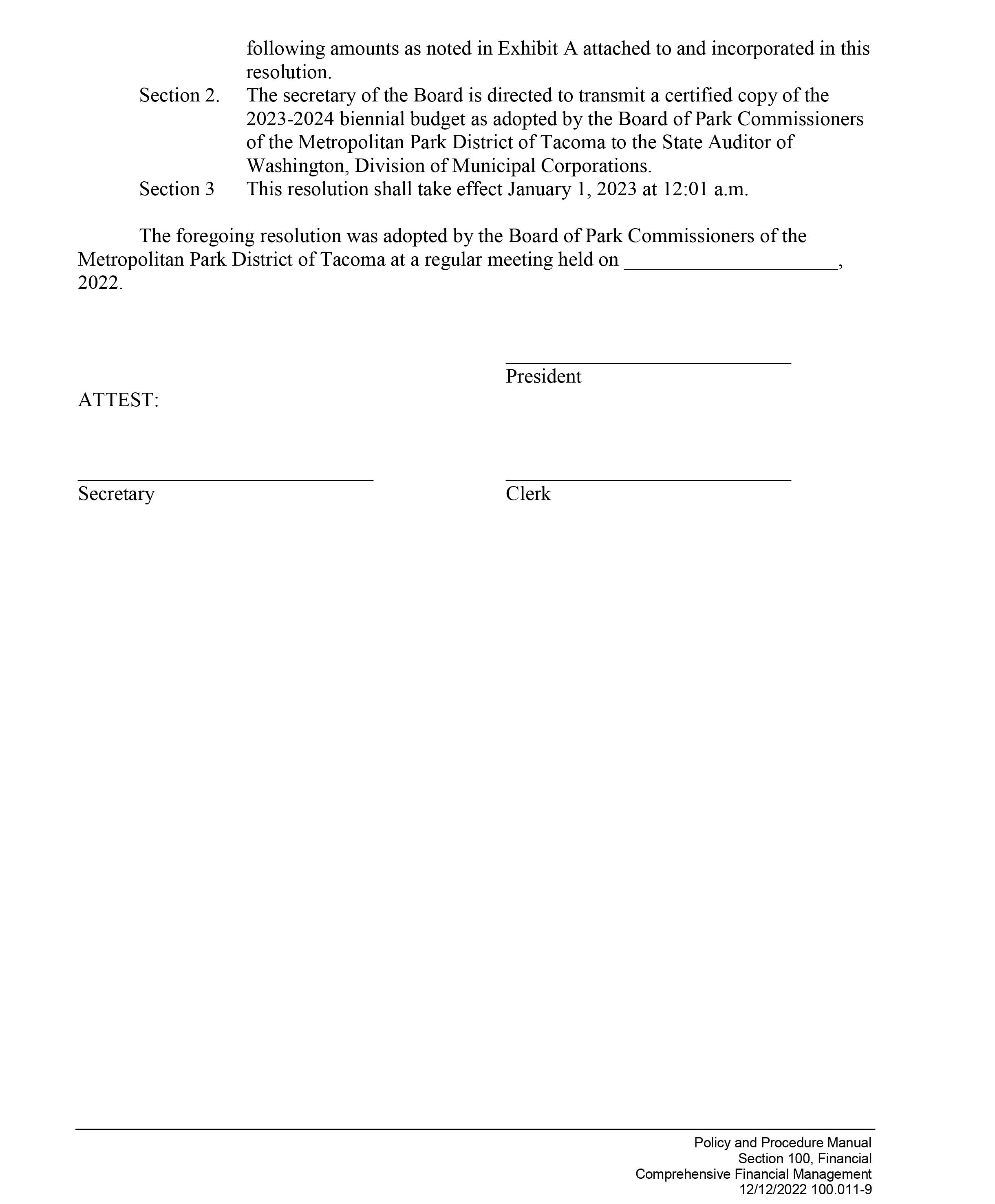
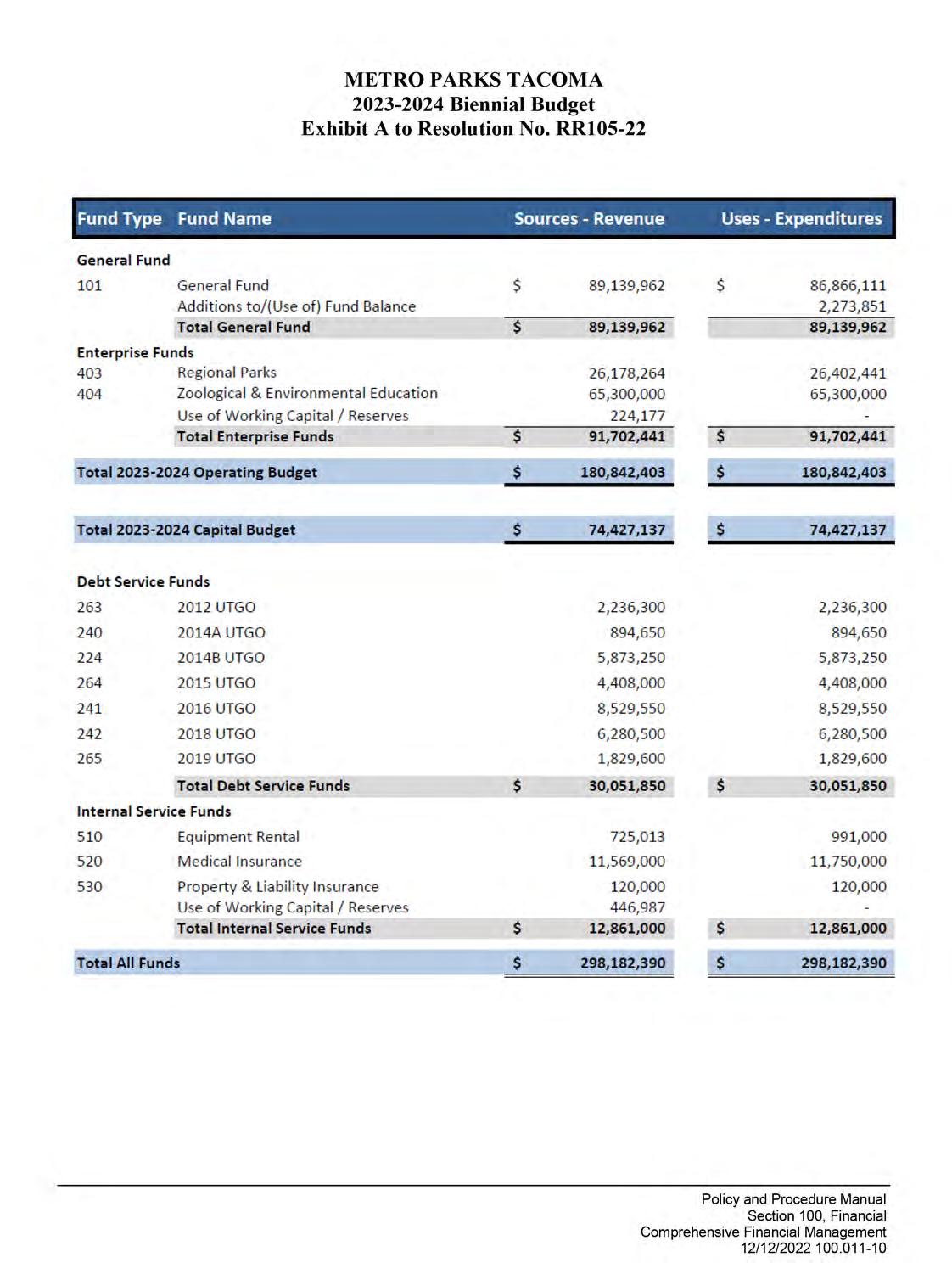
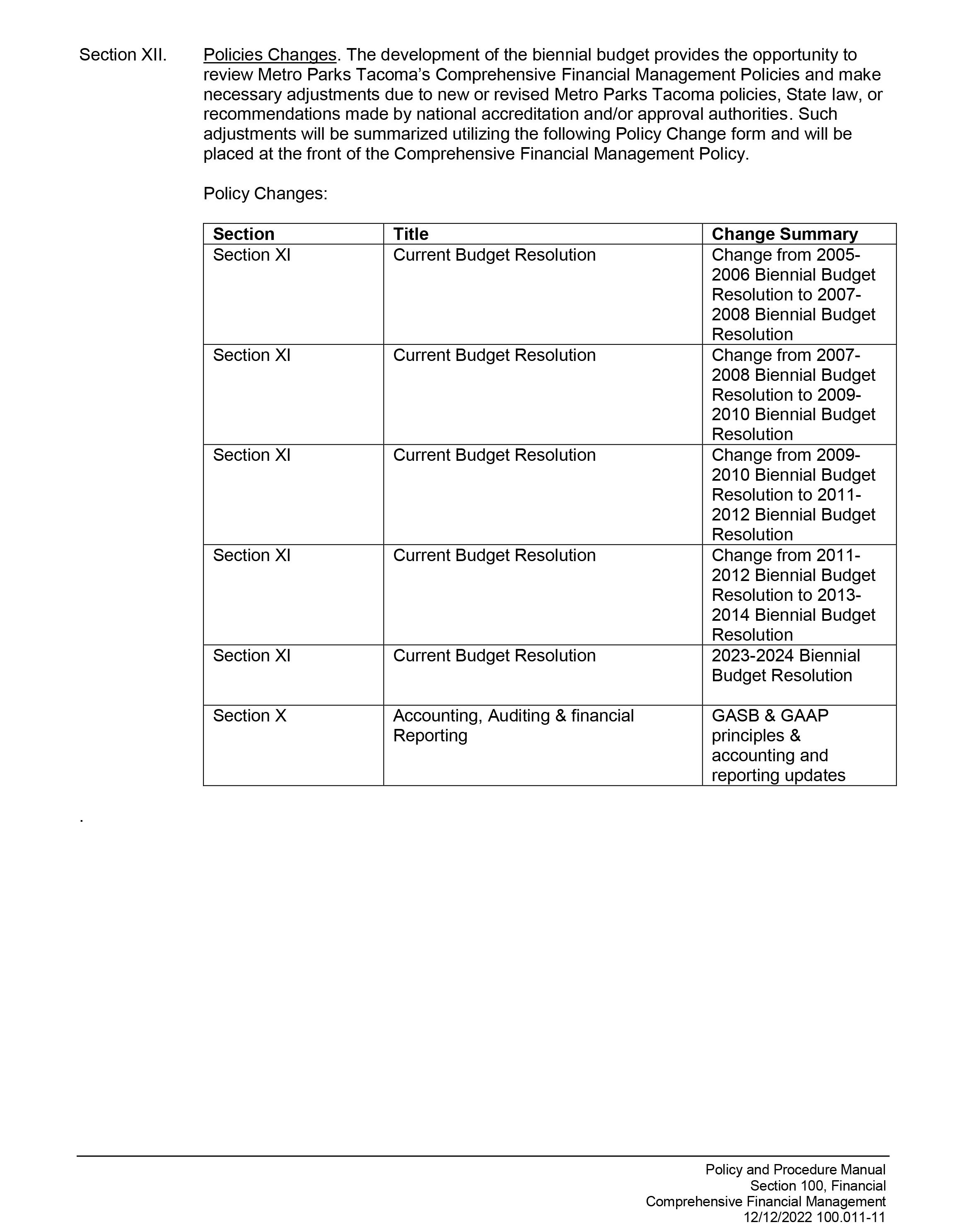
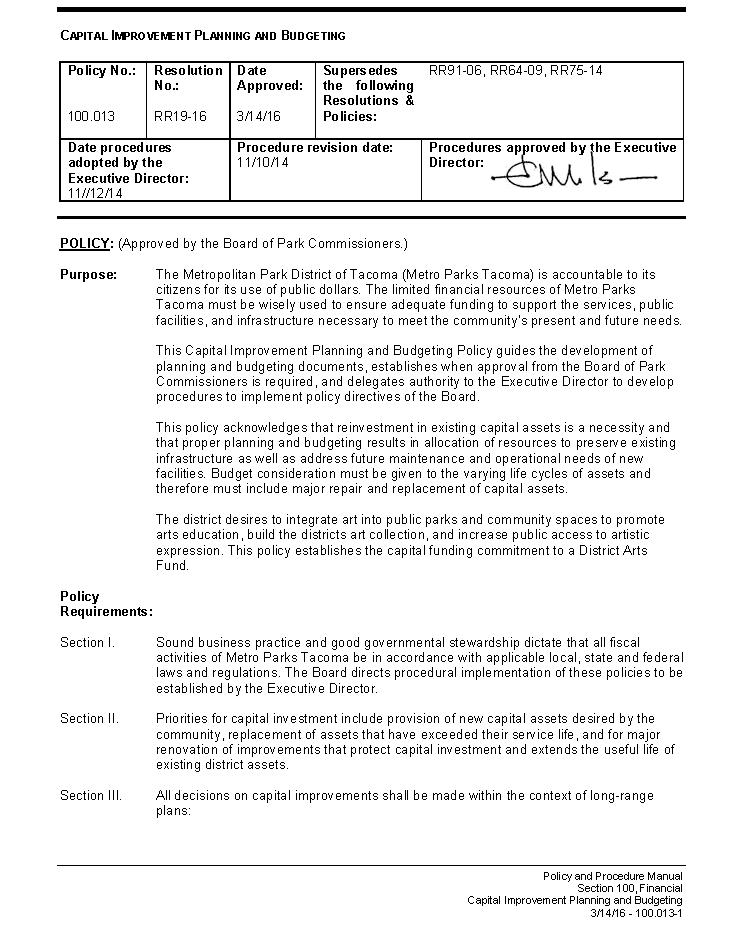
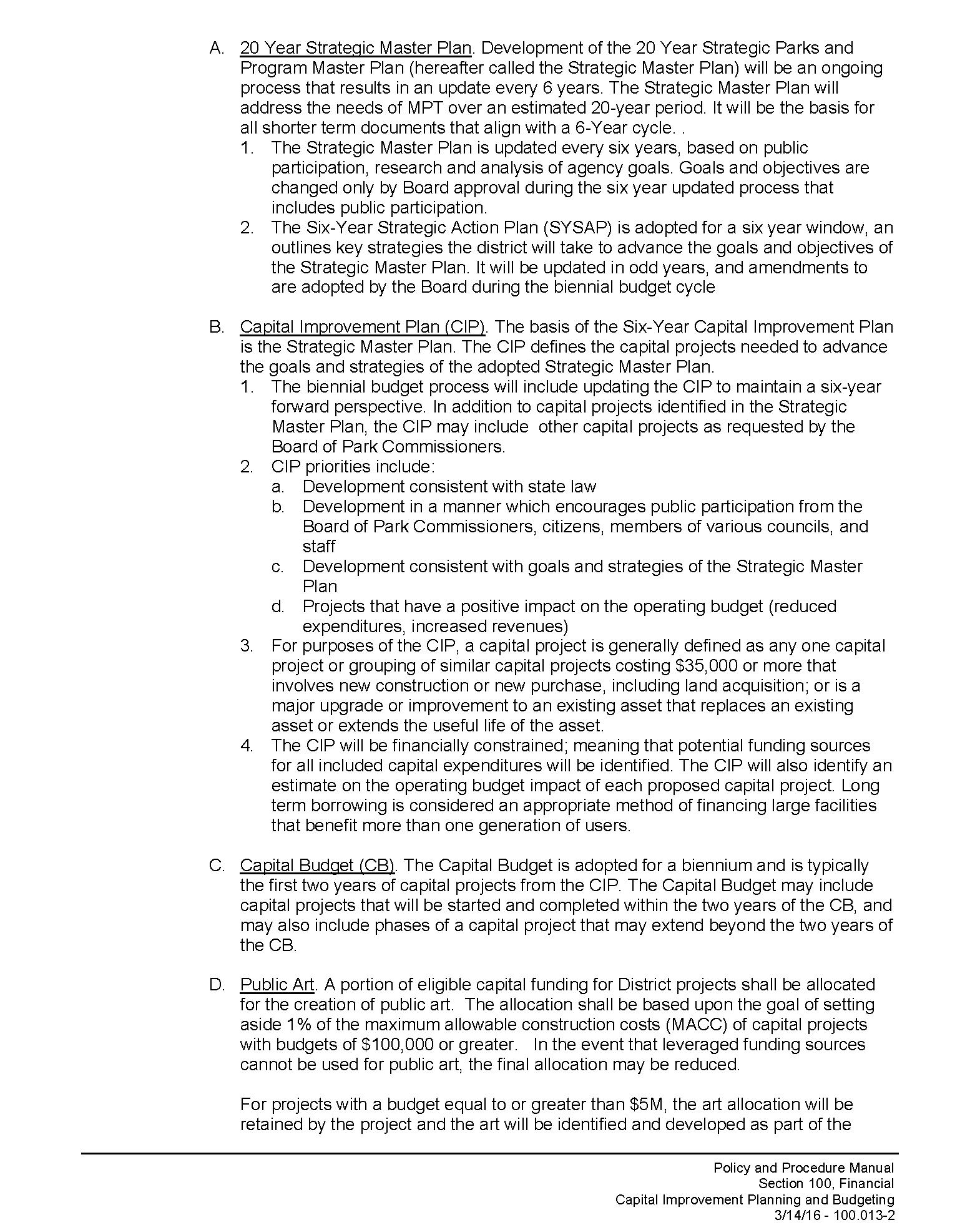
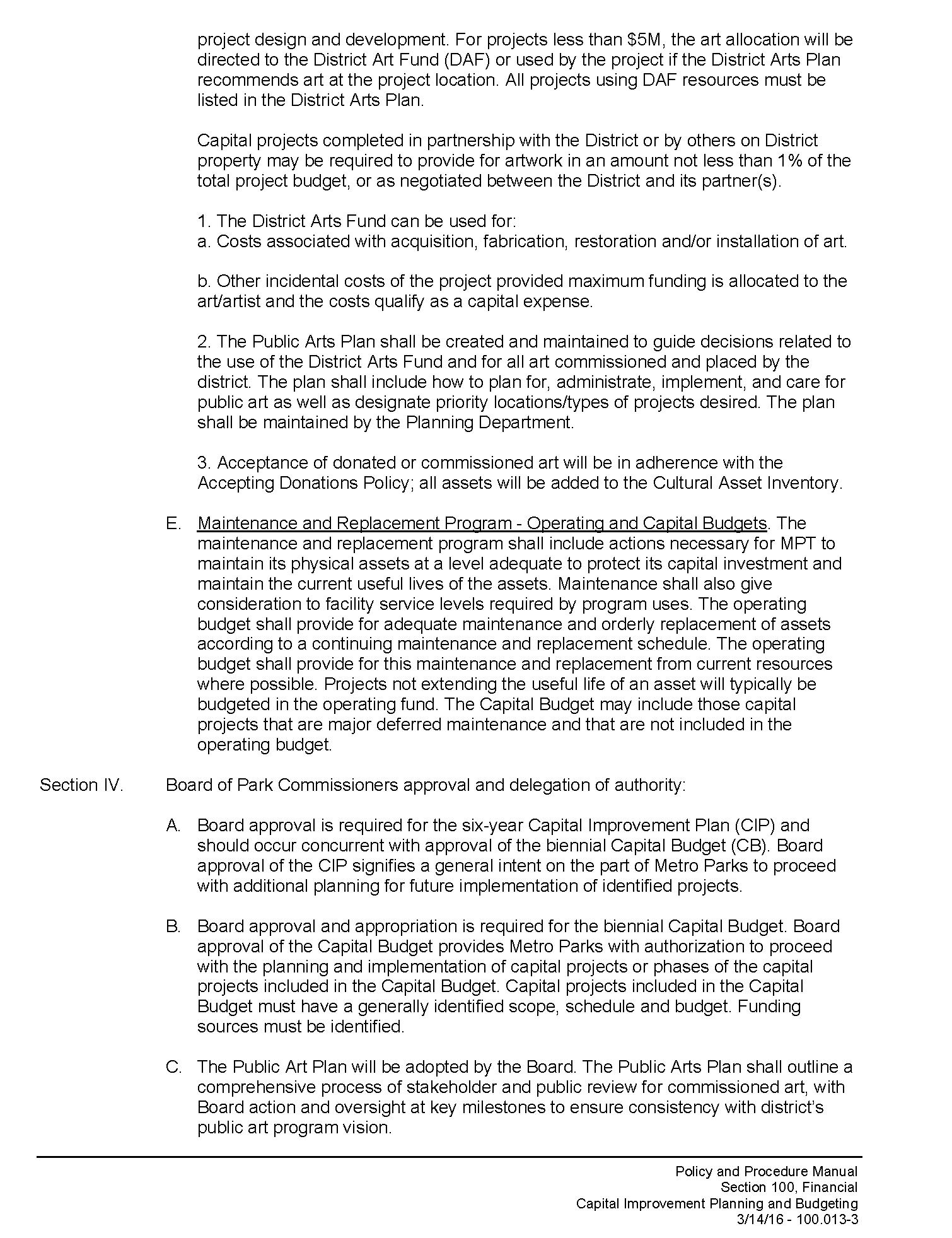
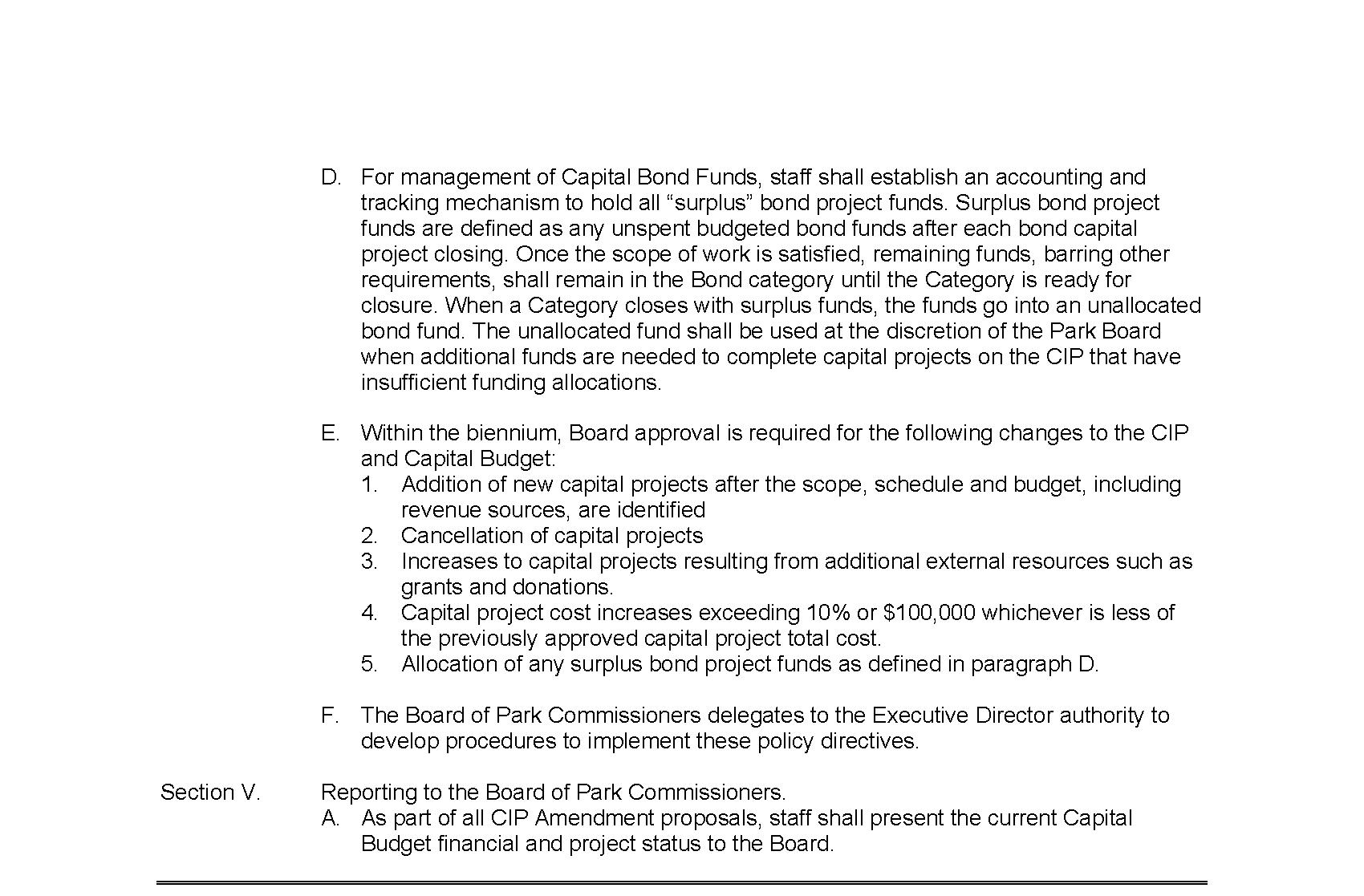

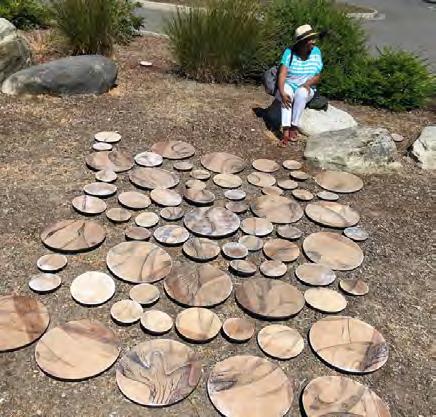
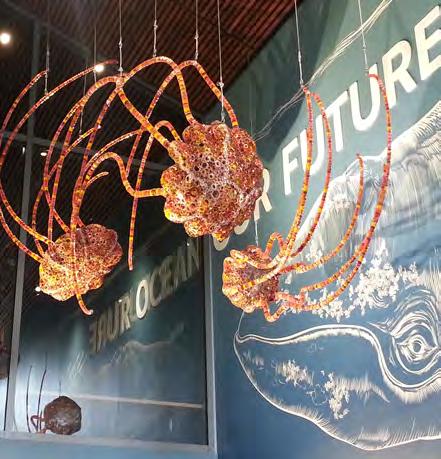
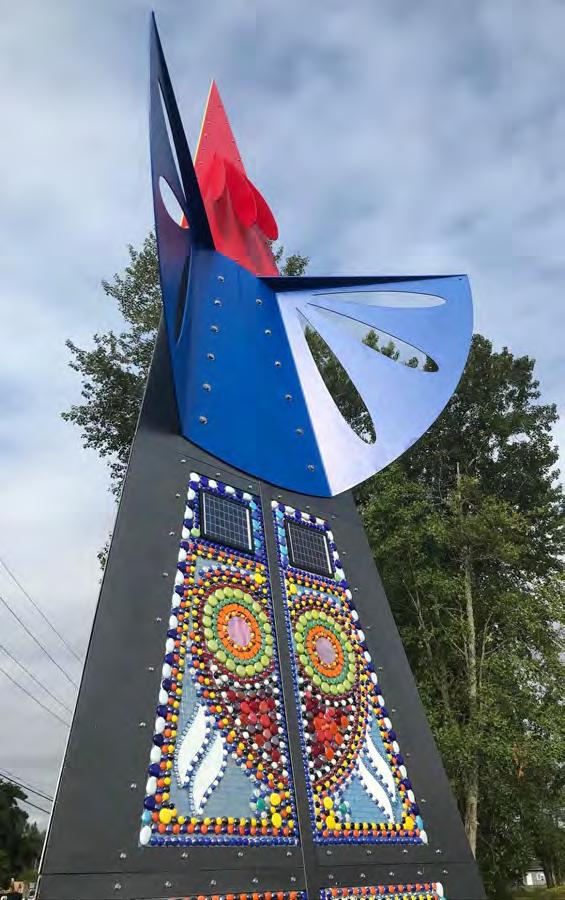
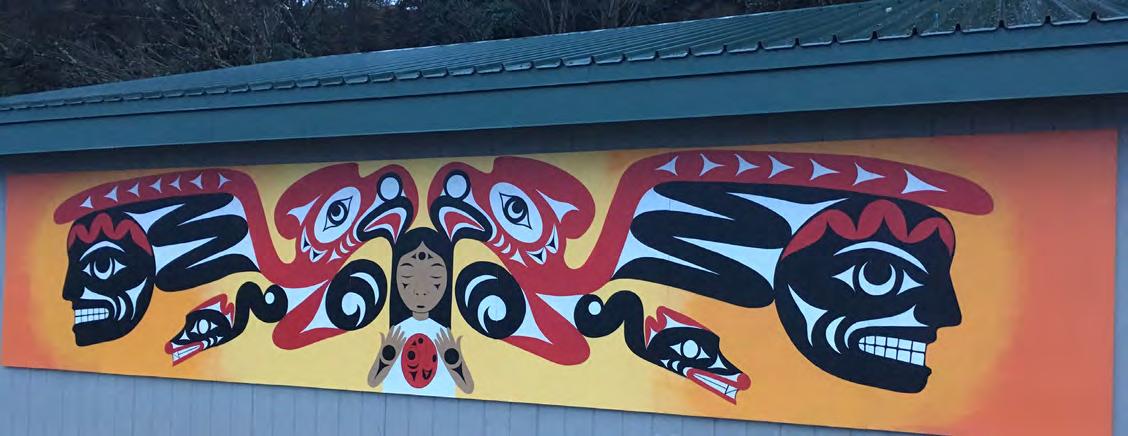
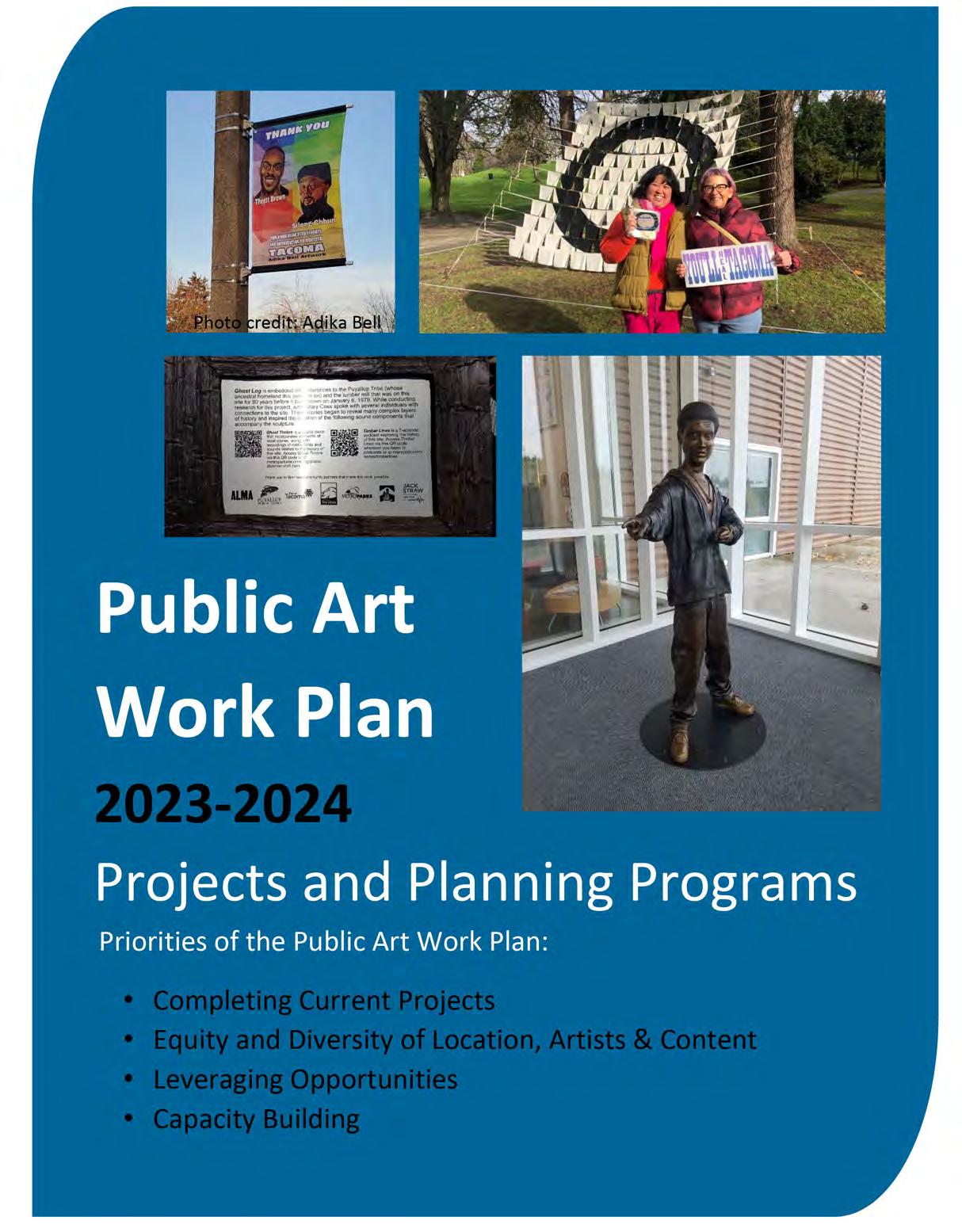
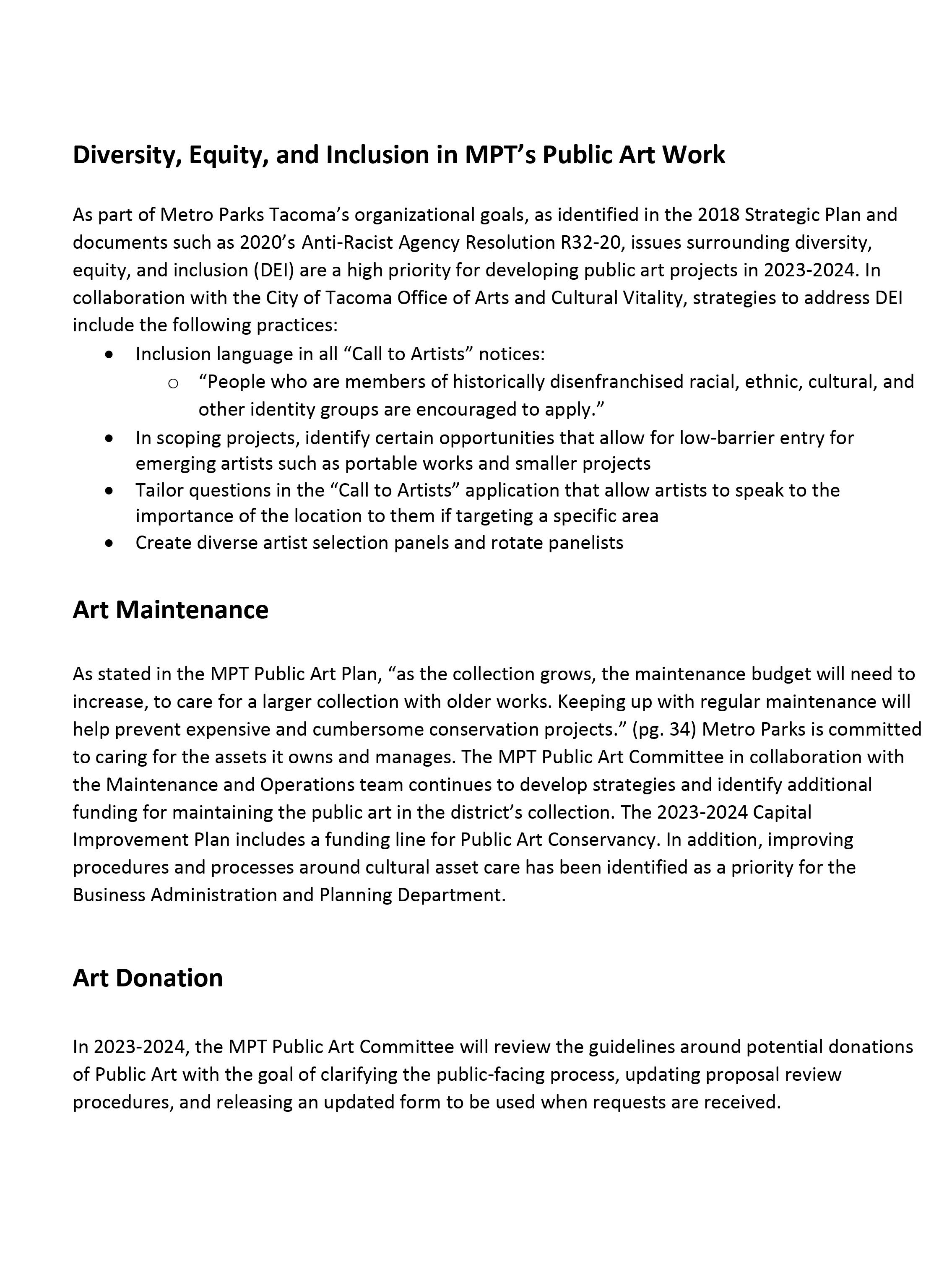
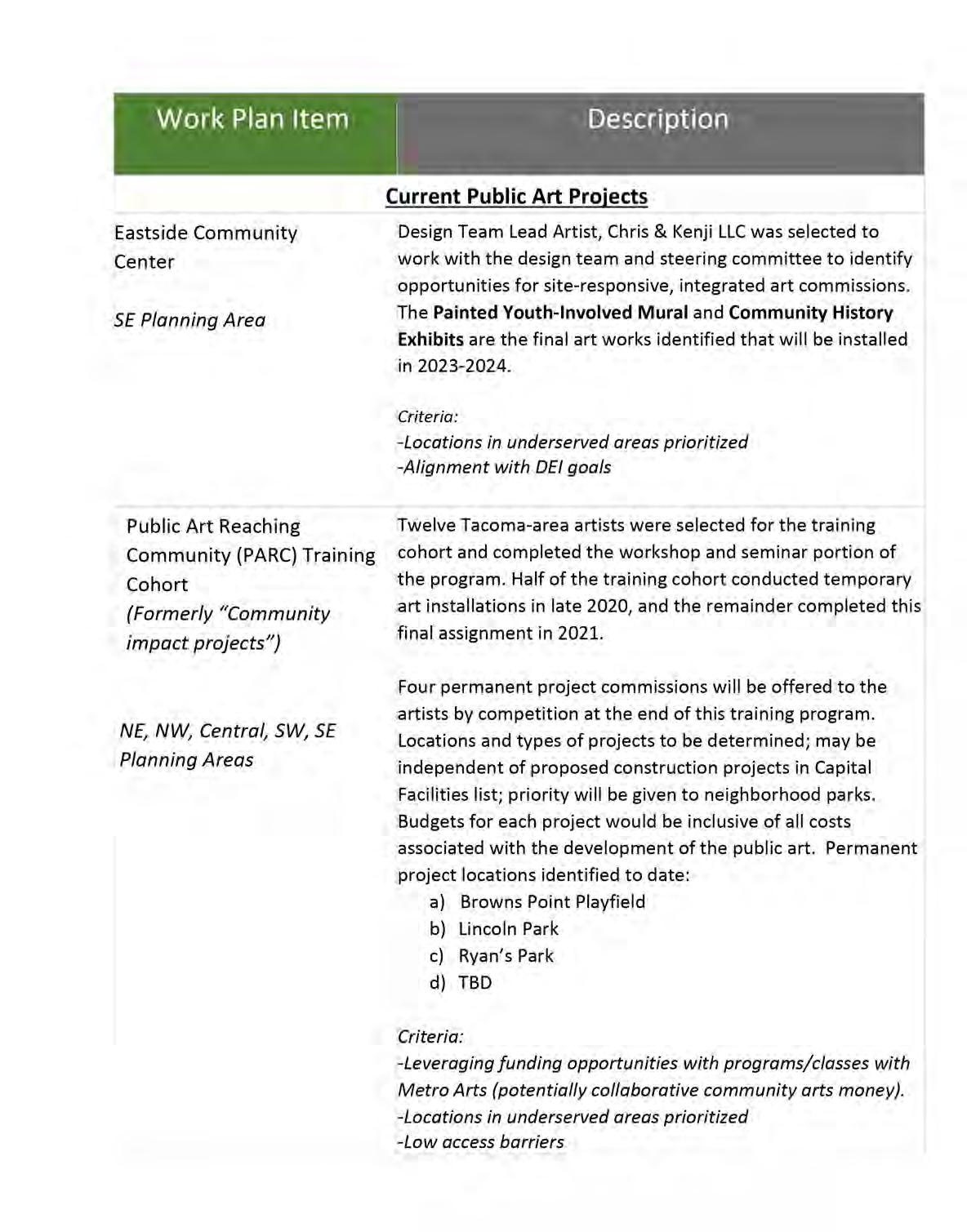
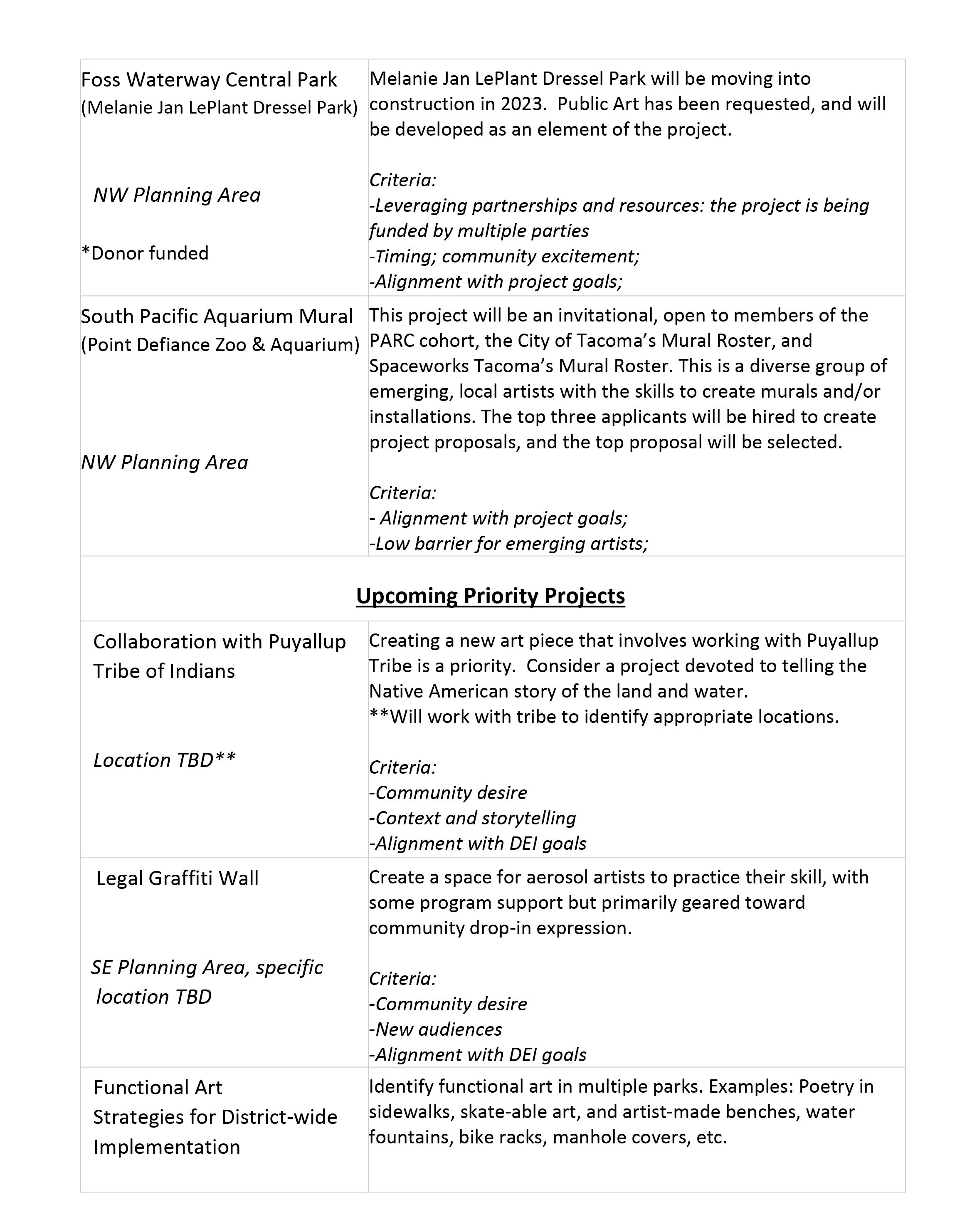
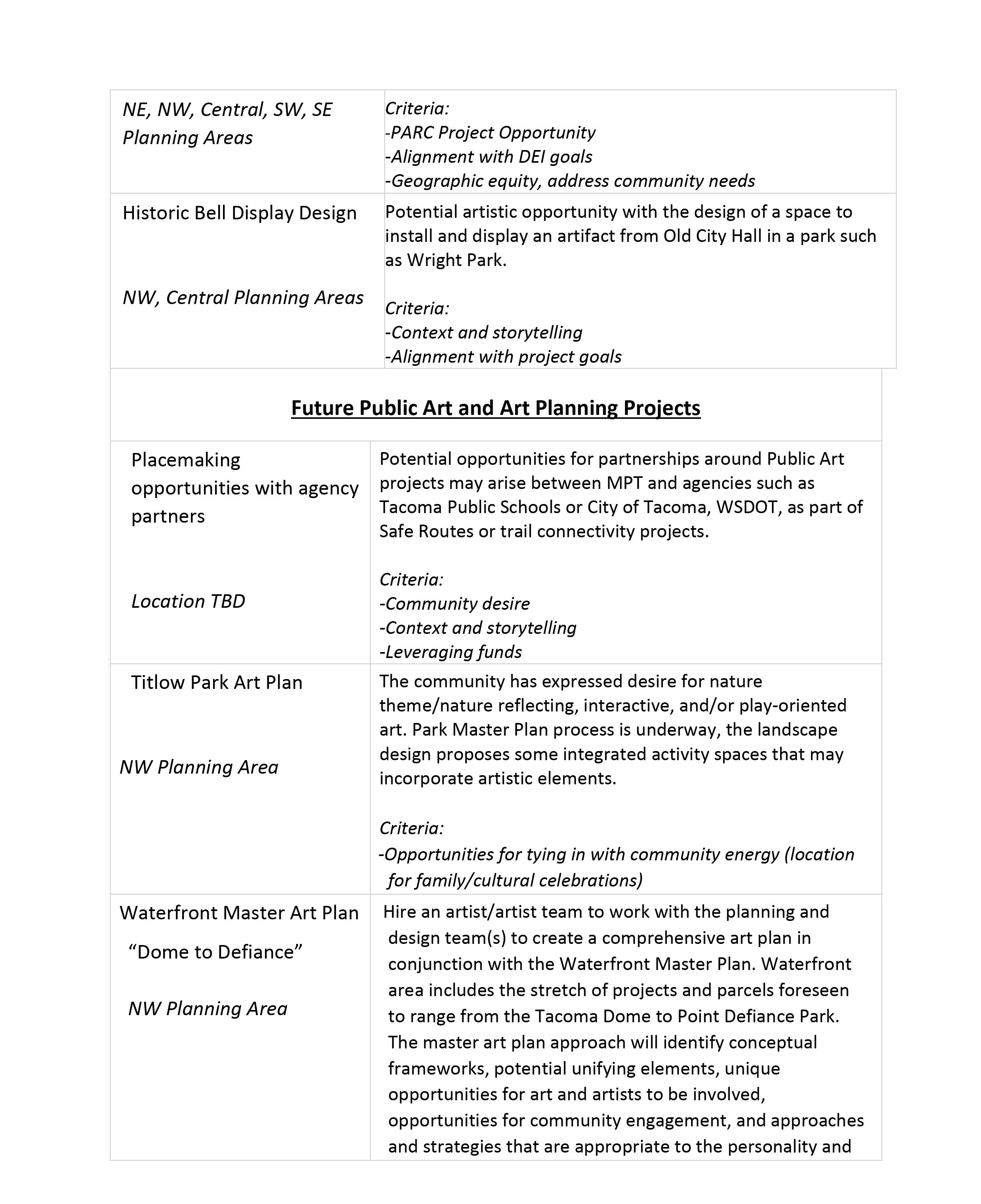
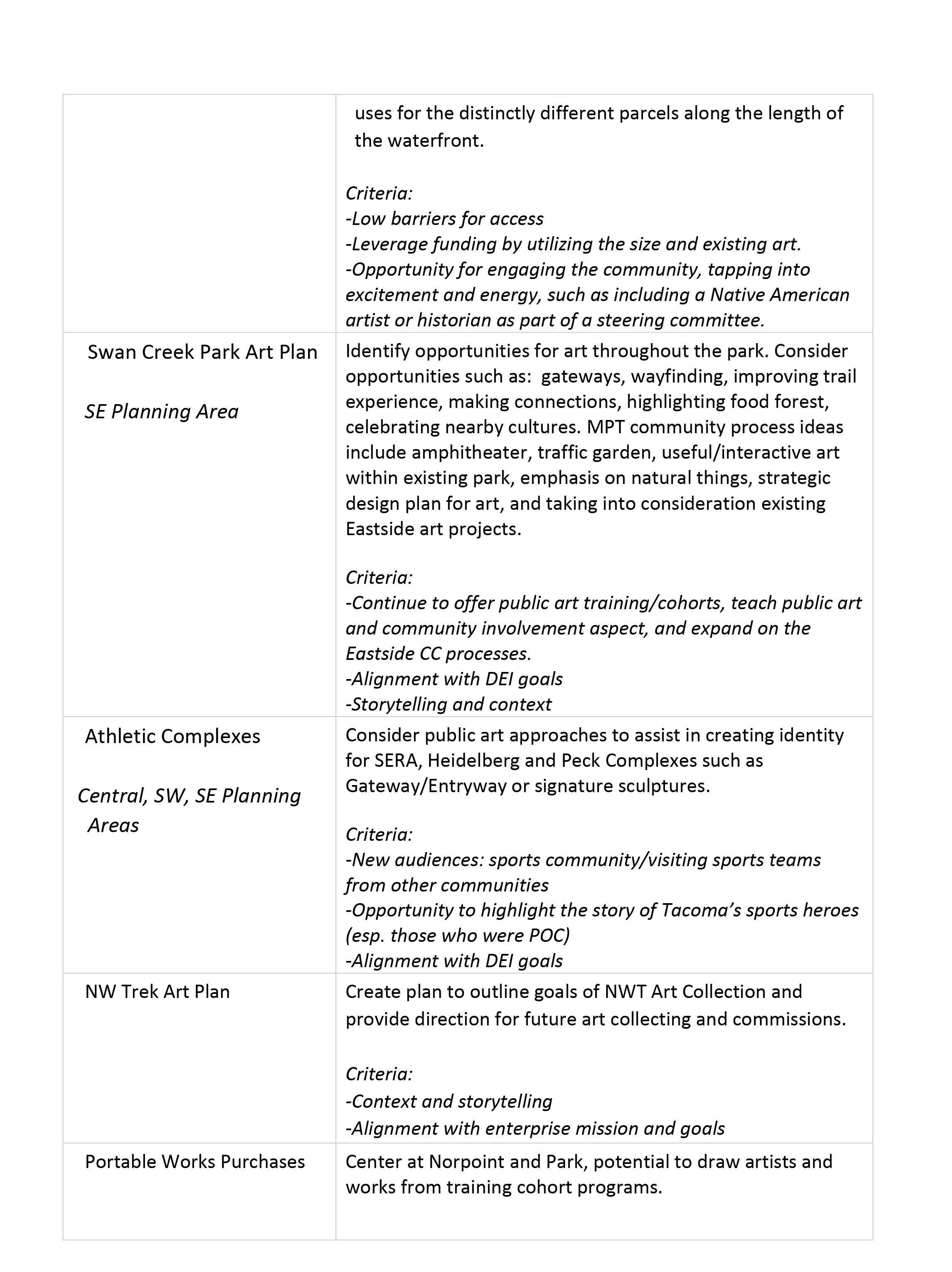
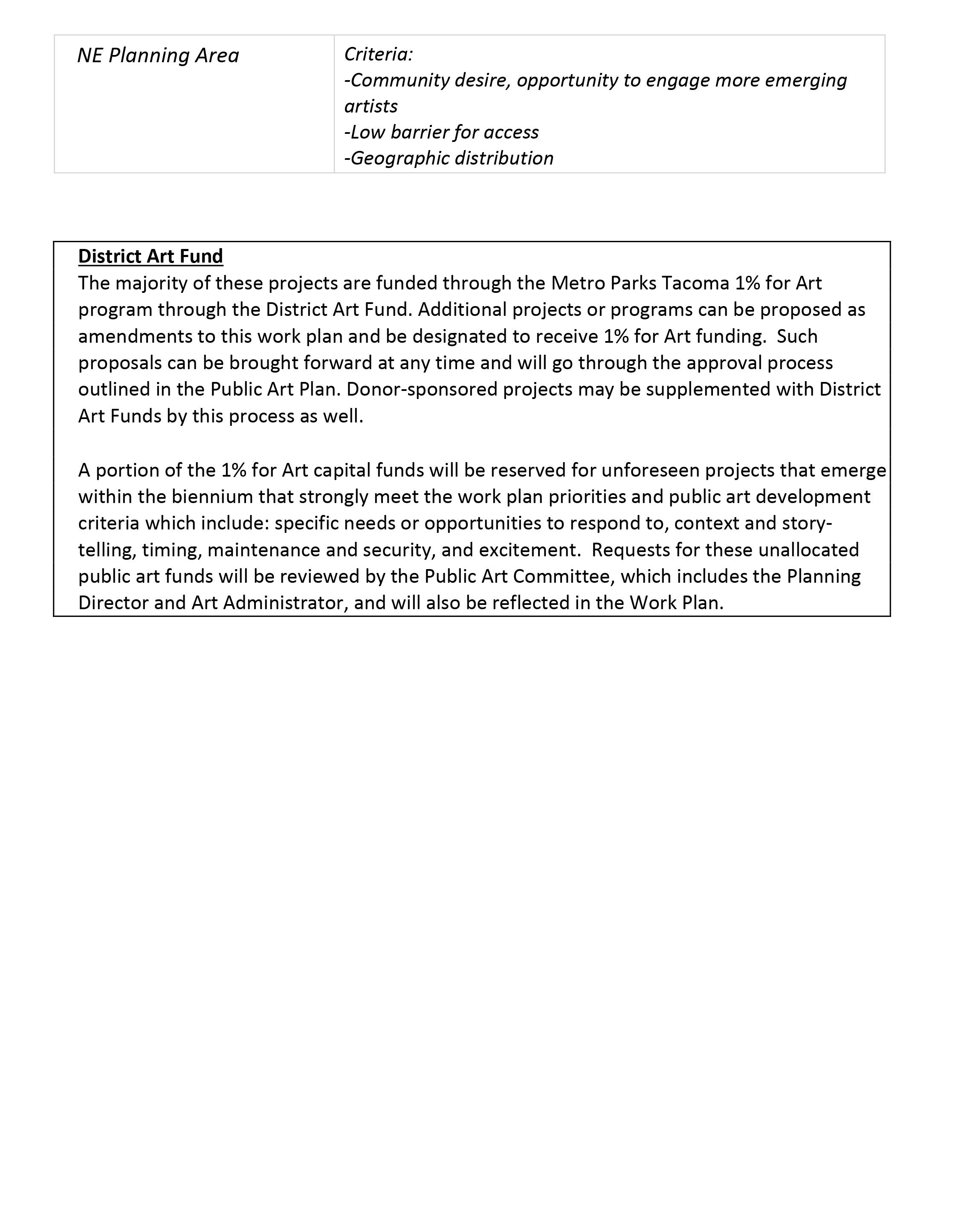

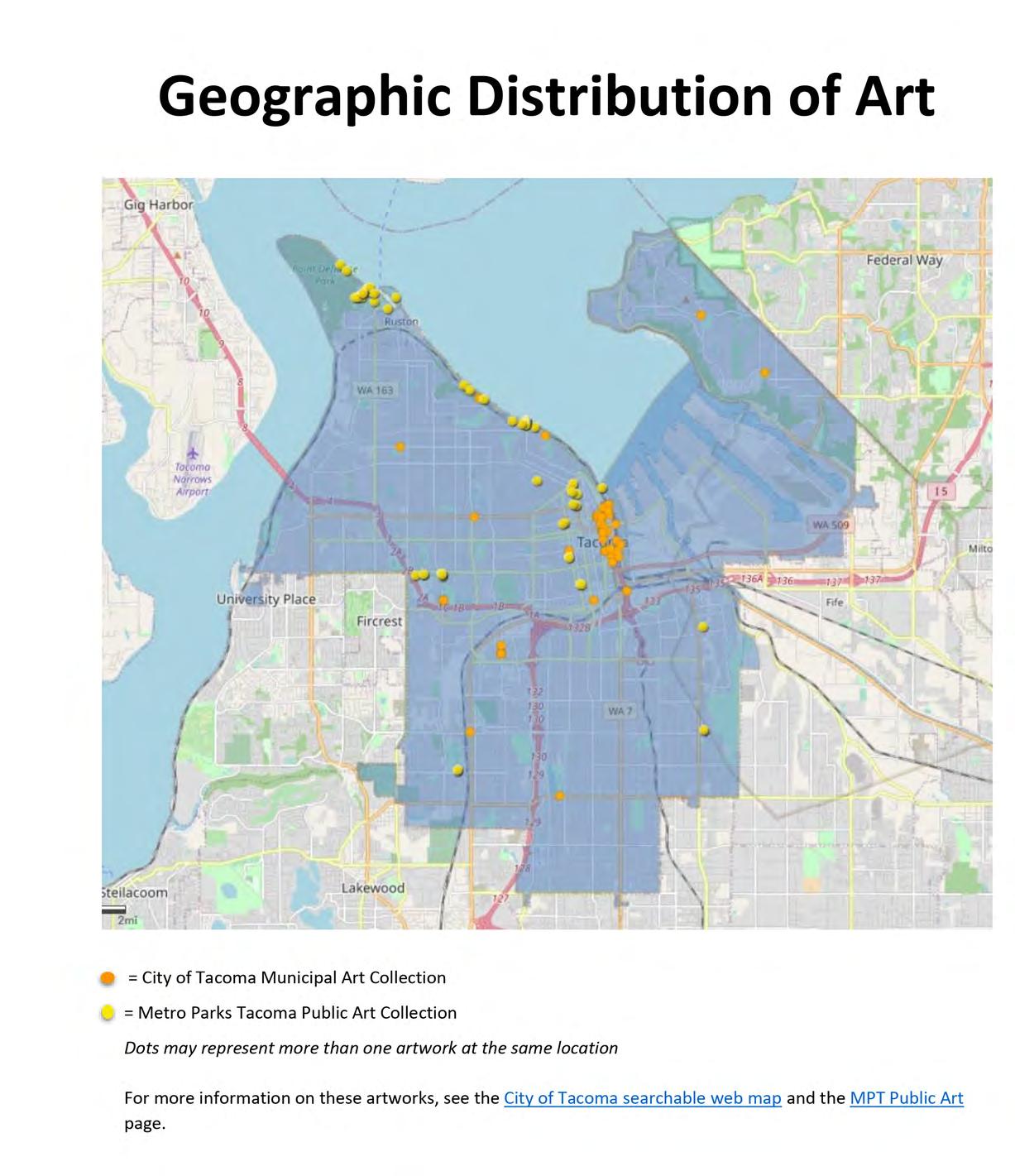



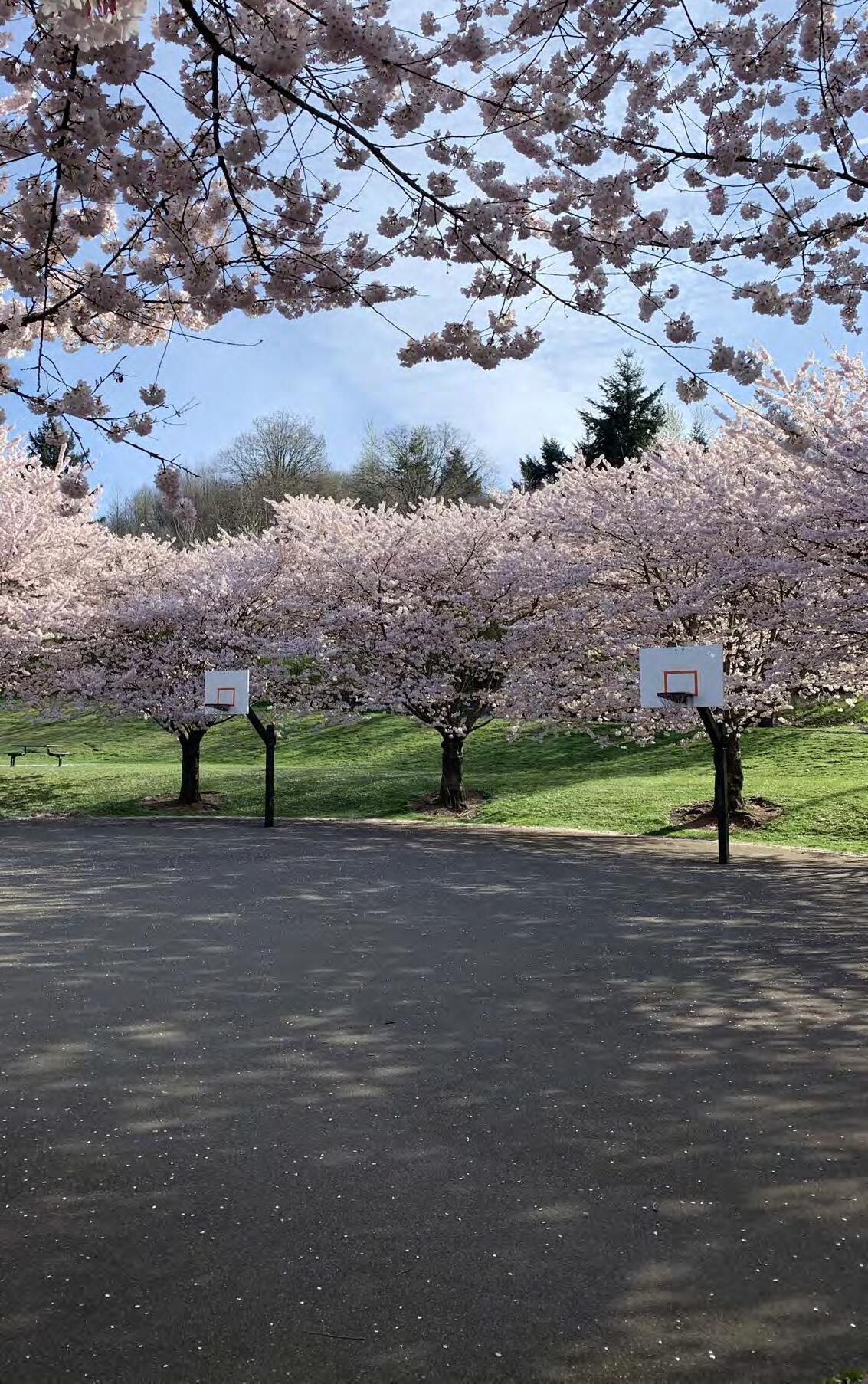
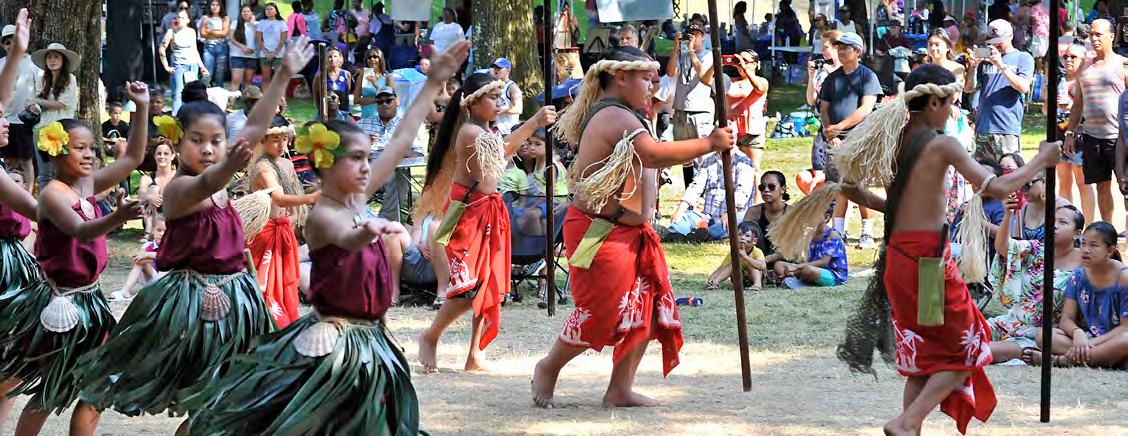
Access procures and promotes creation of safe spaces in parks and indoor facilities, information, and resources, without barriers for those with disabilities, making inclusion possible and creating opportunity for every person. Inclusion refers to a state to being valued, respected, and supported as an individual and ensuring the right conditions to achieve full potential as a person.
A system of numbering that represents a revenue, expenditure, or balance sheet item. In MUNIS, this is called an “object.”
The Board authorization to make expenditures and incur obligations from a particular account. Appropriations typically limit expenditures to a specific amount and purpose within a fiscal year or biennial timeframe.
Conversion of a partially funded position, project or program within the 2021-2022 budget that continues in the ensuring biennium to a fully funded biennial budget, and for deletion of costs that were considered as non-recurring or one-time.
A two-year fiscal period. Metro Parks’ current budget biennium runs from January 1, 2021 – December 31, 2022.
Economic or other factors that have a significant effect on the budget. Examples: inflation rate changes, property and sales tax trends, population in certain age or demographic groups, various MPT surveys.
A stand-alone document for individual MPT operations that provides guidance and recommendations on suggested activities that could be undertaken to maximize net income for the operation, given a certain set of assumptions. It reports and projects revenues that would be generated and expenses that would be incurred.
Capital expenditures must be more than $5,000 and include: (1) major improvements or upgrade to existing capital assets (adding on, remodeling, major repairs)
(2) reconstruction designed to gradually and systematically replace an existing system
(3) replacement (including demolition and disposal) of a major component of an existing facility or system
(4) new construction (buildings) and new capital equipment
(5) acquisition of land or structures, and (6) must have a life expectancy of greater than one year OR extend the life of an existing capital asset for more than one year. This type of improvement is not ordinary maintenance.
One project or a group of similar projects that meet the capital definition, costs at least $35,000 and is included in the Capital Improvement Plan or the Capital Budget.
Accounts Engagement Enterprise Fund Entitlement
Fiscal Year
Full-Time Employee
General Obligation Bonds
Capital Improvement Plan. This is a plan for capital expenditures to be incurred over a fixed period of time, typically six years, and the projected resources to finance the expenditures. It is a long-range plan that looks beyond the traditional biennial budget. It includes projects estimated more than $35,000 and identified in the Strategic Parks and Program Services Plan. The Capital Budget is the first two years (current biennium) of the CIP.
Based on total revenue, the extent to which a program or activity covers its assigned costs. Usually expressed in percentage terms based on the ratio of revenue to expense. (Current recovery model on page 102.)
Conservation is the act of protecting natural resources and ecosystems, while preservation is the act of protecting buildings, objects, and landscapes. There are three core pillars of sustainability: economic development, social development, and environmental protection. Sustainability is the obligation of agencies to balance all three pillars to fully serve the community.
The periodic principal and interest payments that result from the issuance of bonds, loans, or other borrowings.
Accounts set up by law to receive revenue from a specific source and to be spent for a specific purpose.
Engagement is a marketing and public affairs term that refers to the level of mutual commitment generated between an entity or agency and a person part of the community that is served.
Effective organizational strategy emphasizes Community Engagement in which the organization creates collaborative environments and processes for groups, organizations or people who share geographic areas, special interests, cultures or issues to influence design, development and decision-making that may affect the well-being of people, thus achieving mutual benefit through the co-development process.
A fund in the accounting system that may be used to report any activity for which a fee is charged to external users. Enterprise Funds are typically used for operations that function as a business and recover at least 100% of its costs.
A service or grant that, under state or federal law, must be provided to all applicants.
A one-year fiscal period. MPT’s fiscal year is January 1 to December 31.
An employee paid hourly or exempt status (annual salary) scheduled for 40 hours per week and qualifying for full benefits.
Bonds whose repayment is guaranteed by the “full faith and credit” of MPT. Unlimited Tax General Obligation (UTGO) bonds are voted on by the taxpayers in the MPT district. Limited Tax General Obligation (LTGO) bonds are issued upon approval by the Board of Park Commissioners and are included in the tatutory debt limit for the district.
The general fund represents all financial resources and transactions for “general operations” not accounted for in other designated funds, such as enterprise or capital project funds. Refers to the fund that receives revenue from sales, property, and other general taxes, rental income, program charges, and grants and donations, and is spent for parks maintenance, recreation programming, and administrative operations.
Holistically defining strategies and actions in cities and neighborhoods to positively impact the overall health and well-being of a community and its members, physical, psychological, social, environmental and economic well-being.
For example, well-maintained green spaces create environments that inspire active lifestyles contributing to the physical, social and psychological well-being of those who use them. Additionally, these spaces contribute to overall community well-being through the purification of our air and water.
The combined value of these benefits contributes greatly to the overall health, as well as economic well-being of the community, by helping mitigate risks associated with health epidemics ranging from hypertension and obesity, to depression – while protecting our life-sustaining water and air quality.
A measure established to report on results achieved. They could combine objective and subjective data and tell MPT how well a result outcome has been accomplished.
A fund that is separate from the General fund that is used to capture revenue and expense for a specific purpose, such as self-insurance or fleet funding. Typically used when there is a need to establish a reserve that can be carried over multiple bienniums.
Abbreviation for Meadow Park Golf Course.
Abbreviation for Northwest Trek.
An operationalized goal that can usually be measured.
Abbreviation for Office of the Executive Director
At MPT, the MUNIS general ledger system is structured such that each department is considered an Organization. The Org code identifies individual departments, divisions, and locations.
A biennial plan for the revenues and expenditures necessary to support the ongoing administrative and service functions of MPT.
The outcome or result is a description of what is expected to be achieved through the work plan actions of MPT.
Performance Measure PDMC
PDZA
Reserve or Fund Balance
Resource Management Plan
Special Revenue Fund
Work Plan
Working Capital Budgeting
Abbreviation for Parks & Recreation Department (inclusive of General Fund and Enterprise Funds)
Associations that involve shared objectives, distinct accountabilities, and reciprocal obligations. Part of a development strategy that is expected to add value beyond what either individual partner could achieve alone. The agreement wants to build on the strengths and capabilities of each entity to produce larger and more sustainable impacts.
A quantitative indicator of how programs or services are directly contributing to the achievement of an agency’s objectives. These indicators may include measures of inputs, outputs, outcomes, productivity, and/or quality.
Abbreviation for Point Defiance Marina Complex.
Abbreviation for Point Defiance Zoo & Aquarium.
In budget terminology, the difference between budgeted resources and expenditures.
Policies and procedures guiding the district on the cataloging, recordkeeping, maintenance, and appropriate use of specialized assets, such as green space or historic assets.
This is a fund in the accounting system that is used to account for the proceeds of specific revenue sources (other than trusts for individuals, private organizations, or other governments, or for major capital projects) that are legally restricted to expenditure for specified purposes. For example, a tax levied for a specified purpose could be the basis for establishing a Special Revenue fund.
This is a schedule of agreed-upon tasks to be performed over a given period. For the biennium, a work plan could be different one year to the next depending on completion of tasks or emerging tasks.
A combination of flexible and fixed budget elements in one document for proprietary (enterprise and internal service) funds. Current operations are flexibly budgeted based on the estimated level of services to be provided, and long-range resources and uses of assets are controlled by biennial appropriations.
Abbreviation for Zoological & Environmental Education Department, comprised of Point Defiance Zoo & Aquarium and Northwest Trek Wildlife Park.
The Board of Park Commissioners adopts the philosophy that programs and services with a higher individual benefit will have higher cost recovery rates, and programs or services with a higher community benefit will have lower cost recovery rates.
Public agencies offer three kinds of services. The type of service will directly determine the cost recovery strategy to be used in pricing programs/services.
PUBLIC SERVICES (COMMUNITY BENEFIT) representing the base of the cost recovery pyramid, normally have little or no user fee associated with their consumption. The cost for providing these services is typically funded by the general fund tax base or through targeted grants and/or donations. Public Services are those services that provide all community members the same equitable opportunity to access the program or service. Subsequently, the level of benefit to all consumers is the same. Examples of Public Services include: open public access to use a park, a playground, a nature trail, or a non-reserved picnic area.
MERIT SERVICES (COMMUNITY/INDIVIDUAL) representing the middle section of the cost recovery pyramid, are services where a fee is charged to recover or pay for a portion of the direct and indirect costs of the particular service being offered. The portion of costs not covered by the fee represents the program or service subsidy. Merit Services are usually services whereby the individual consumer receives a higher level of benefit than the community in general; and yet the community benefits as a whole because the service provides a public good and contributes to the community’s quality of life. Examples of Merit Services include environmental education classes/programs, swim lessons, youth sports, teenage programs, adult programs, and admission to zoological and historical facilities.
PRIVATE USE SERVICES (HIGHLY INDIVIDUAL) representing the top of the cost recovery pyramid, where only the individual consumer benefits and doesn’t provide a community-wide benefit. This requires a full cost recovery strategy with no subsidy available. The price of this particular service is intended to recover all direct and indirect costs associated with the program or service. Examples of private use services are facility rentals, private lessons and boathouse locker storage.
DELIVERY METHODS
Private Lessons & Behind Scene Tours
Reserved Use – For Profit/Private Merchandise/Vending Concessions/Long Term Leases
Adult Leagues
Adult Classes – Advance/Competitive
Adult Trips
Reserved Use – Non-Profit
Youth/Family Camps & Trips
Adult Classes – Beginning/Intermediate
Youth Classes – Advanced/Competitive
Youth Leagues – Recreational/Competitive
Drop-in/Staffed (gated admission)
Youth Classes – Beginning/Intermediate
Reserved Use – Inter-governmental
Drop-in/Unstaffed
Central Administration
Parks & Building Support
PREPARED BY
Tania Wink
Don Higgins
Chief Financial & Administrative Officer
Finance & Budget Manager
John Robinson Budget & Payroll Supervisor
Shon Sylvia
Office of Executive DIrector
Jennifer Bowman Office of Executive DIrector
Deborah Russell
Mark Knowlden
Alan Varsik
Business Administration & Planning
Parks & Recreation
Zoological & Environmental Education
Tania Wink
Marty Stump
Sandra Eliason
Don Higgins
John Robinson
Marci Kriebel
Mary Kay Henley
Claire Keller-Scholz
Rick Dietz
Sarah Oliver
Donna Powell
Jesse Schossow
Joe Brady
Hollie Rogge
Libbi Lovshin
Louise Tieman
Business Administration & Planning
Business Administration & Planning
Business Administration & Planning
Business Administration & Planning
Business Administration & Planning
Business Administration & Planning
Business Administration & Planning
Business Administration & Planning
Zoological & Environmental Education
Zoological & Environmental Education
Zoological & Environmental Education
Zoological & Environmental Education
Parks & Recreation
Parks & Recreation
Parks & Recreation
Parks & Recreation
Sandra Eliason
Delia Flores
Jorge Villamil
Amy Johnson
Nancy Johnson
Rosemary Ponnekanti
Anne Winters
Business Administration & Planning
Business Administration & Planning
Business Administration & Planning
Business Administration & Planning
Business Administration & Planning
Business Administration & Planning
Parks & Recreation
